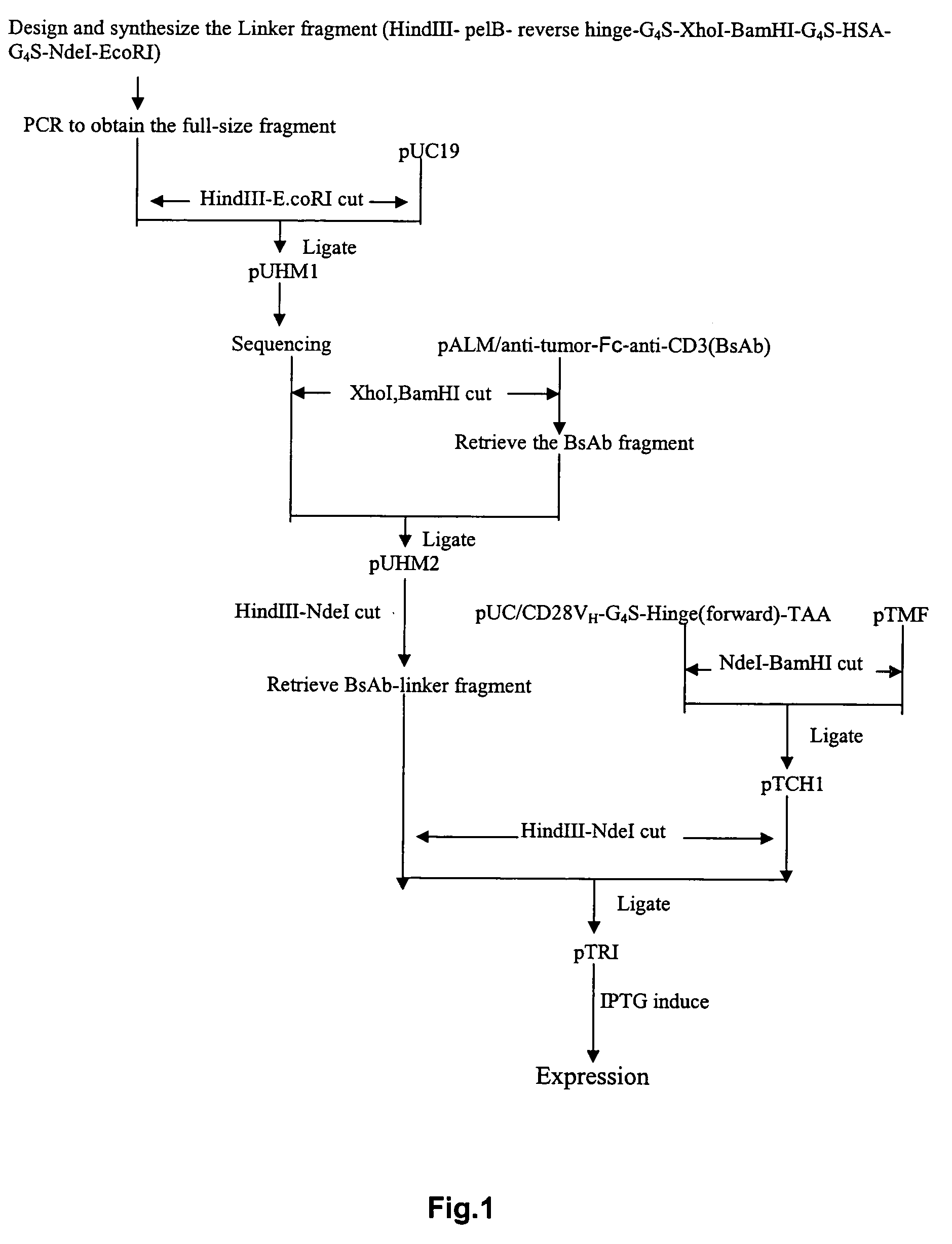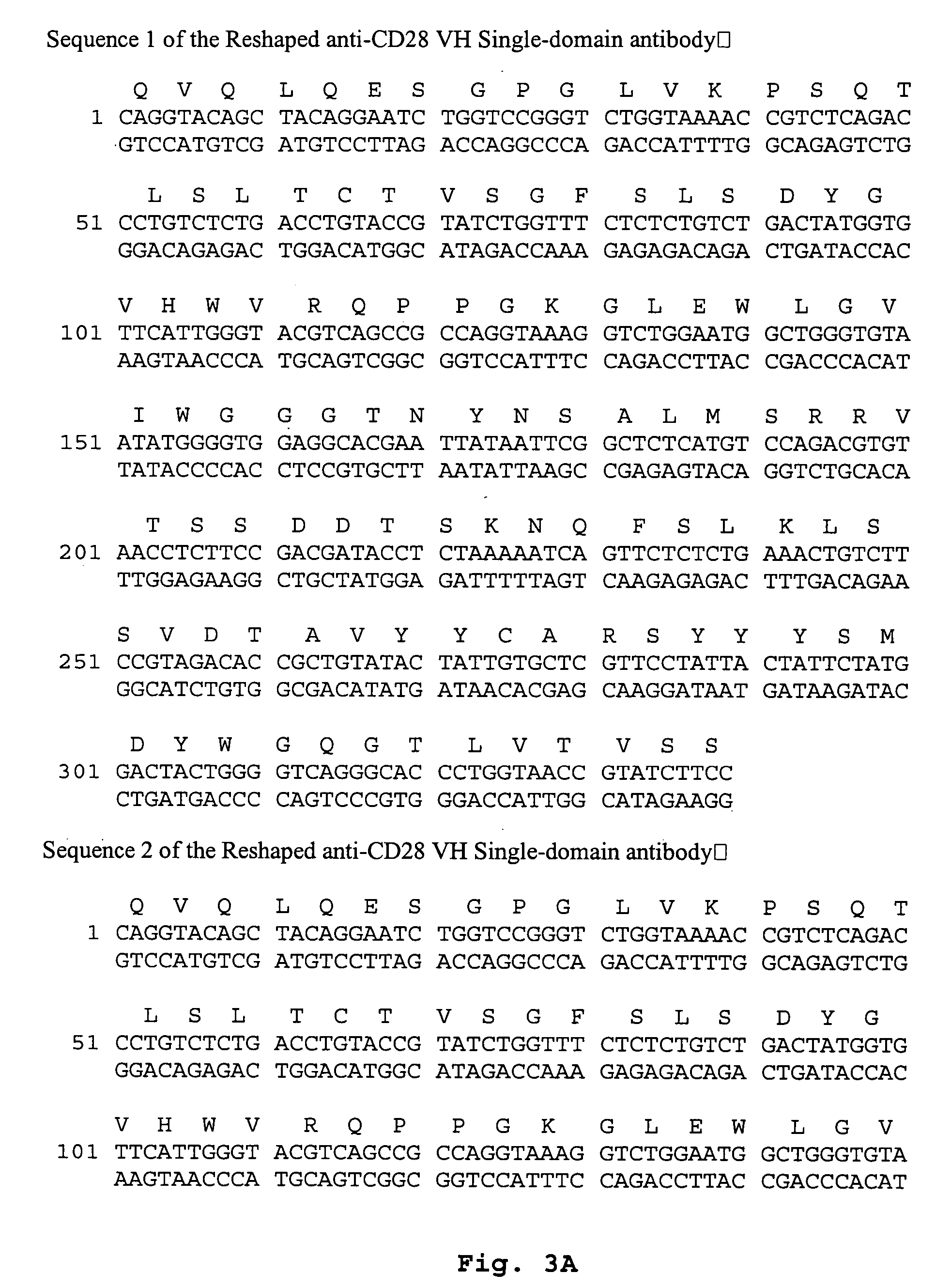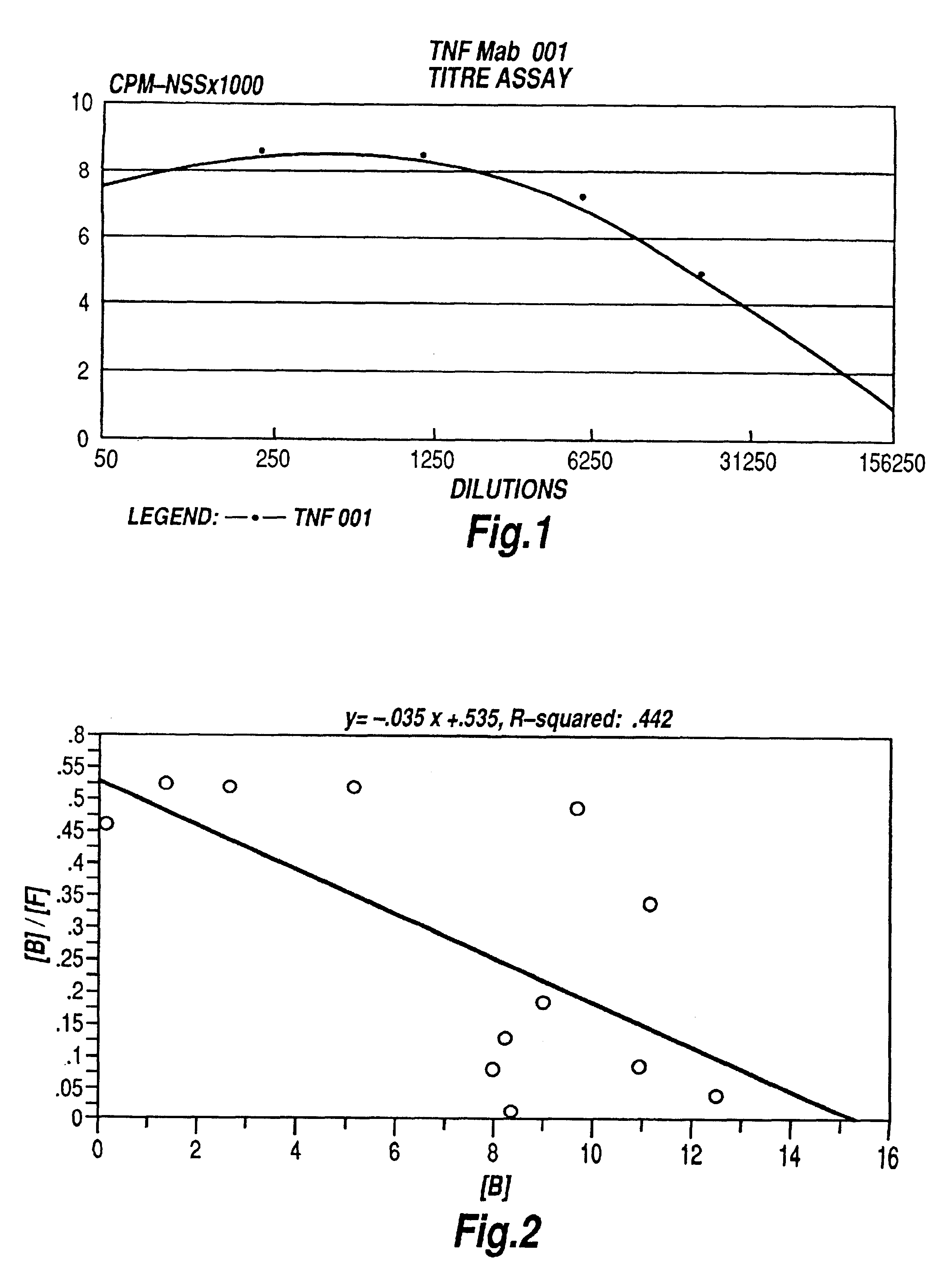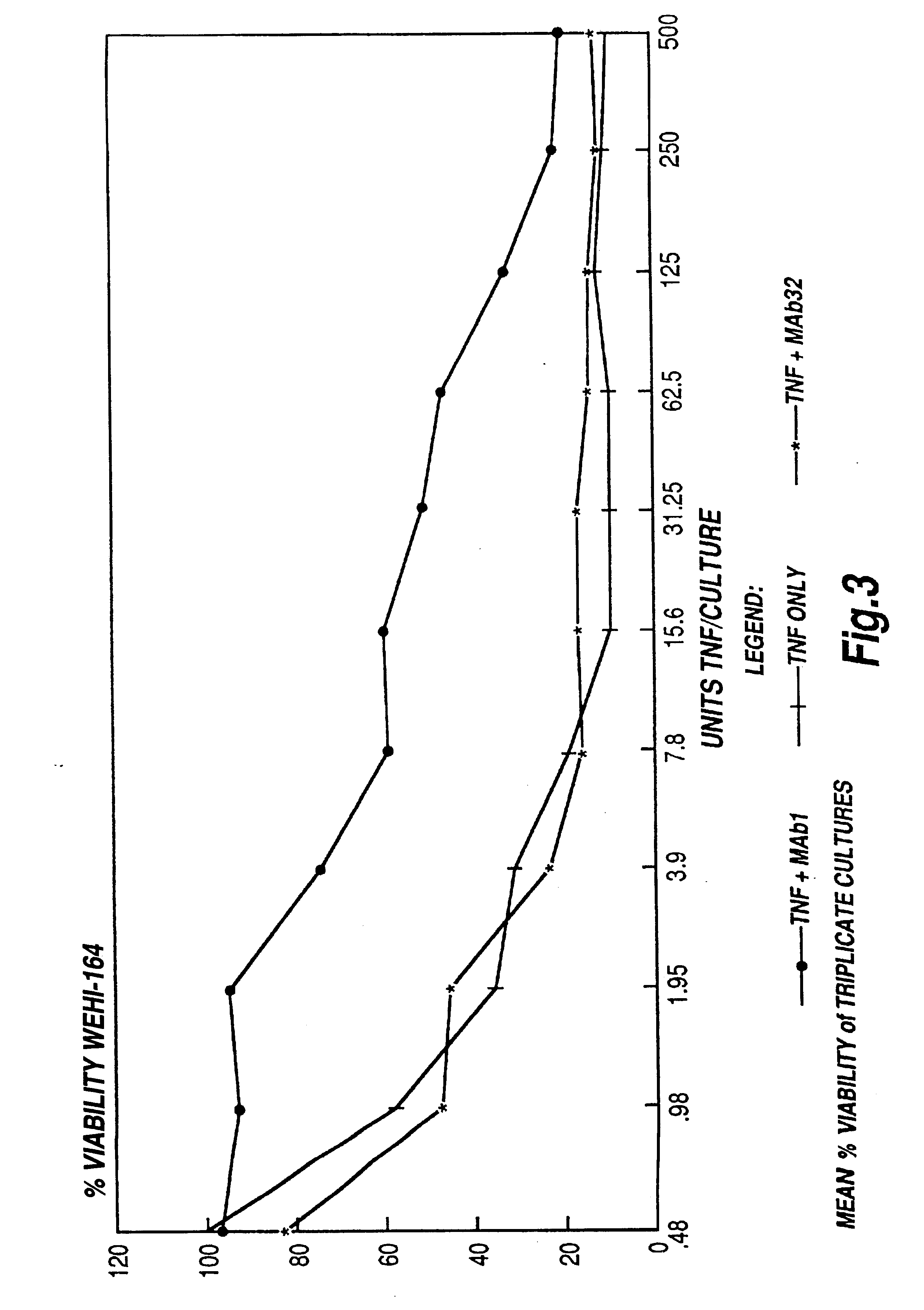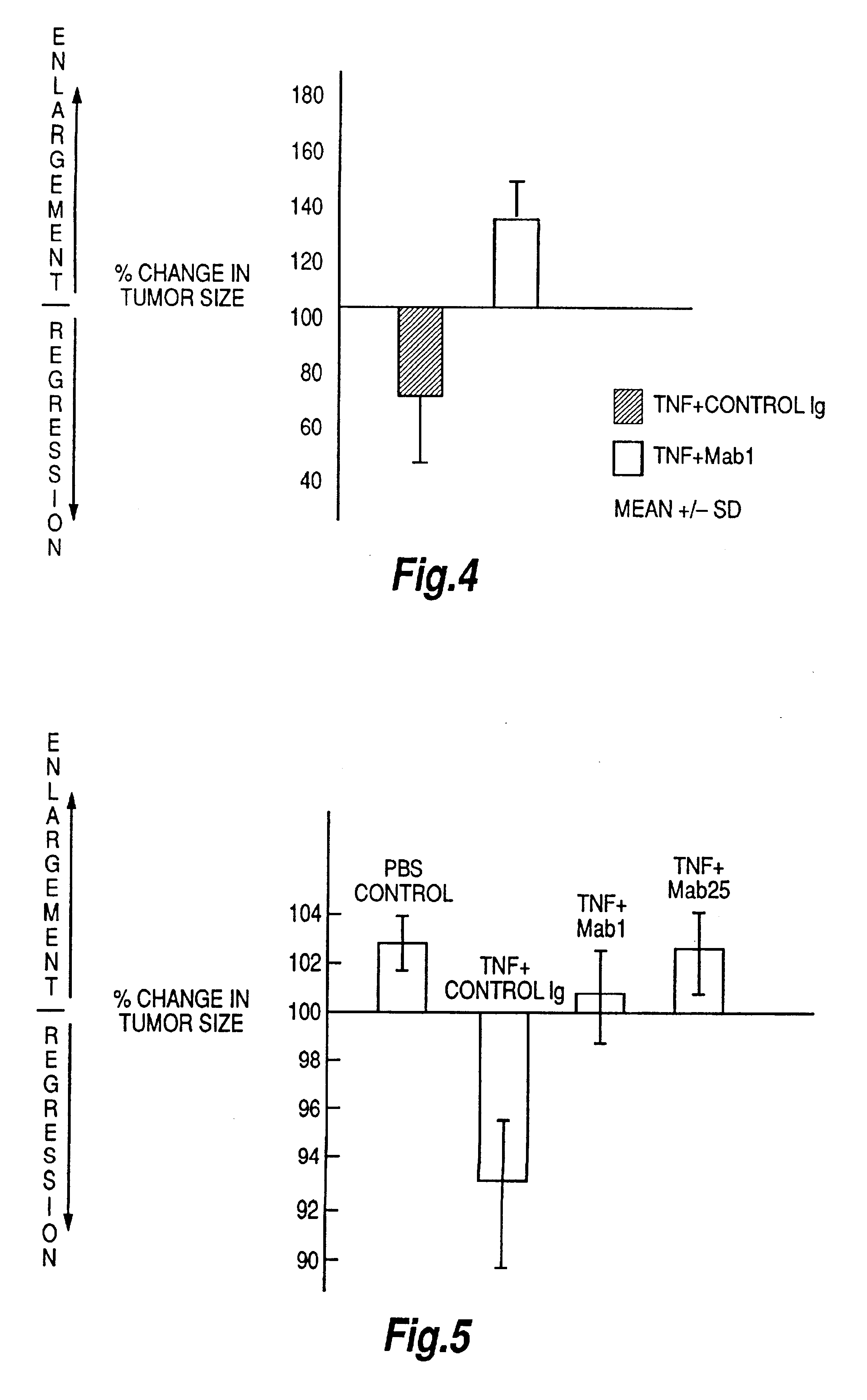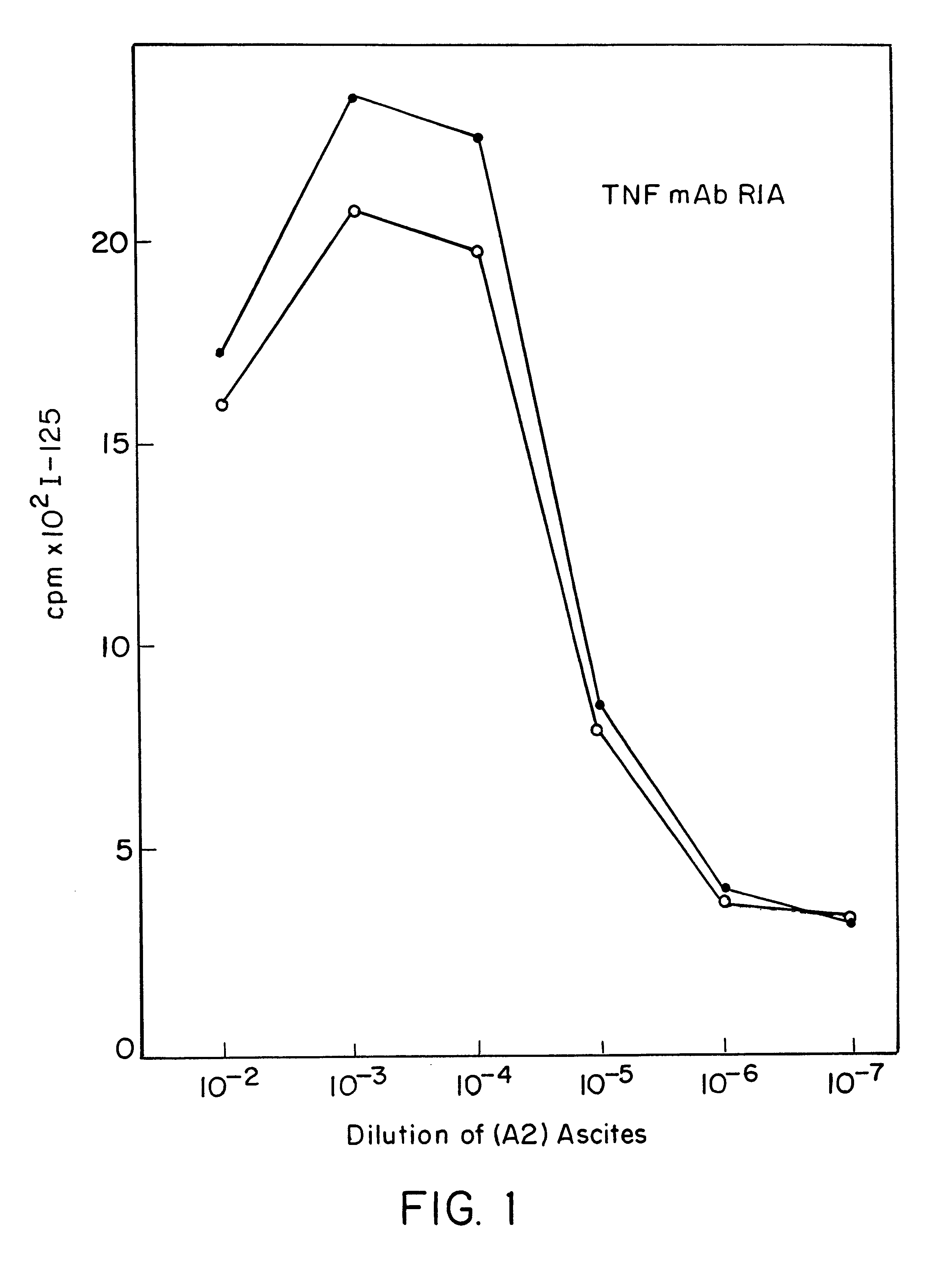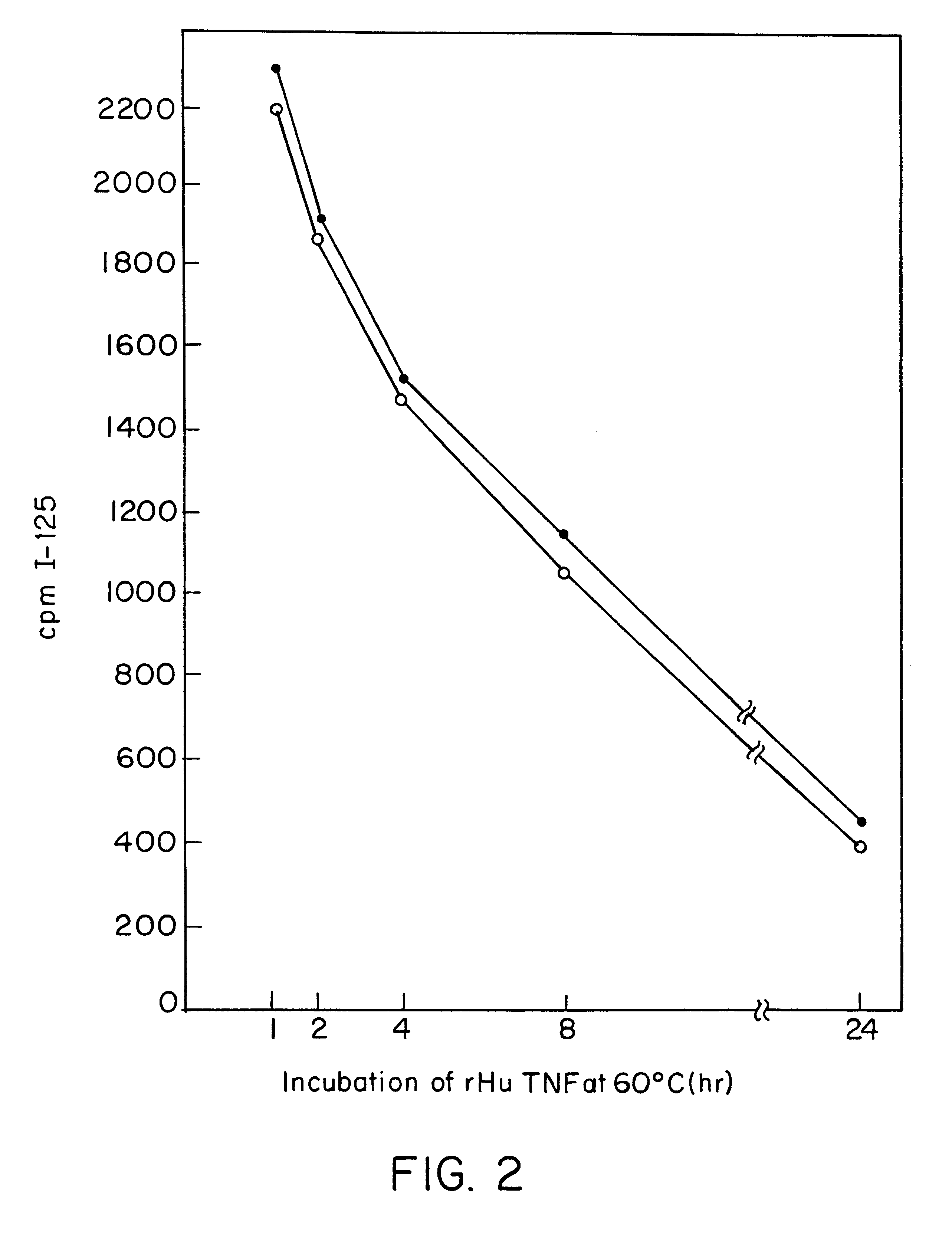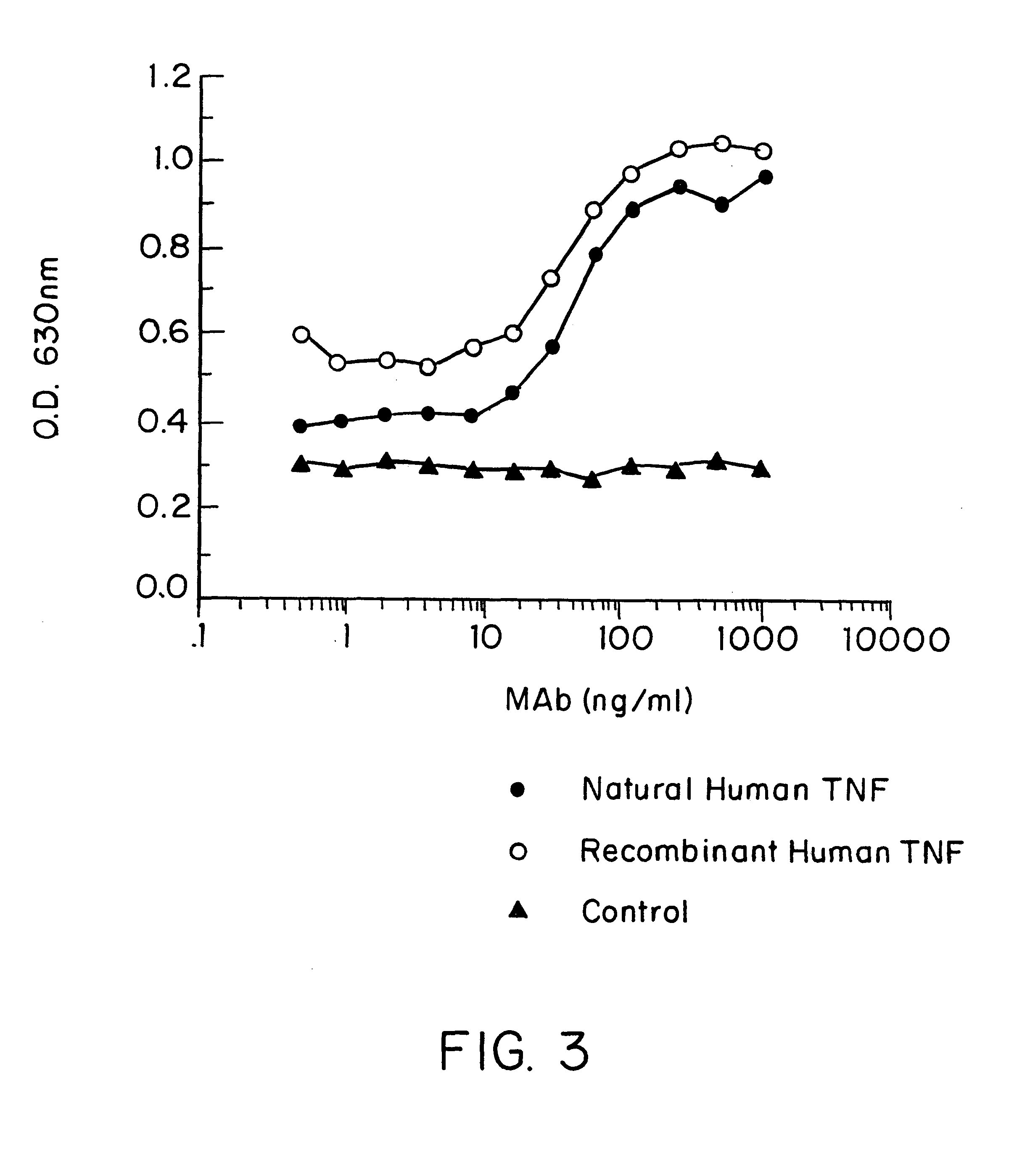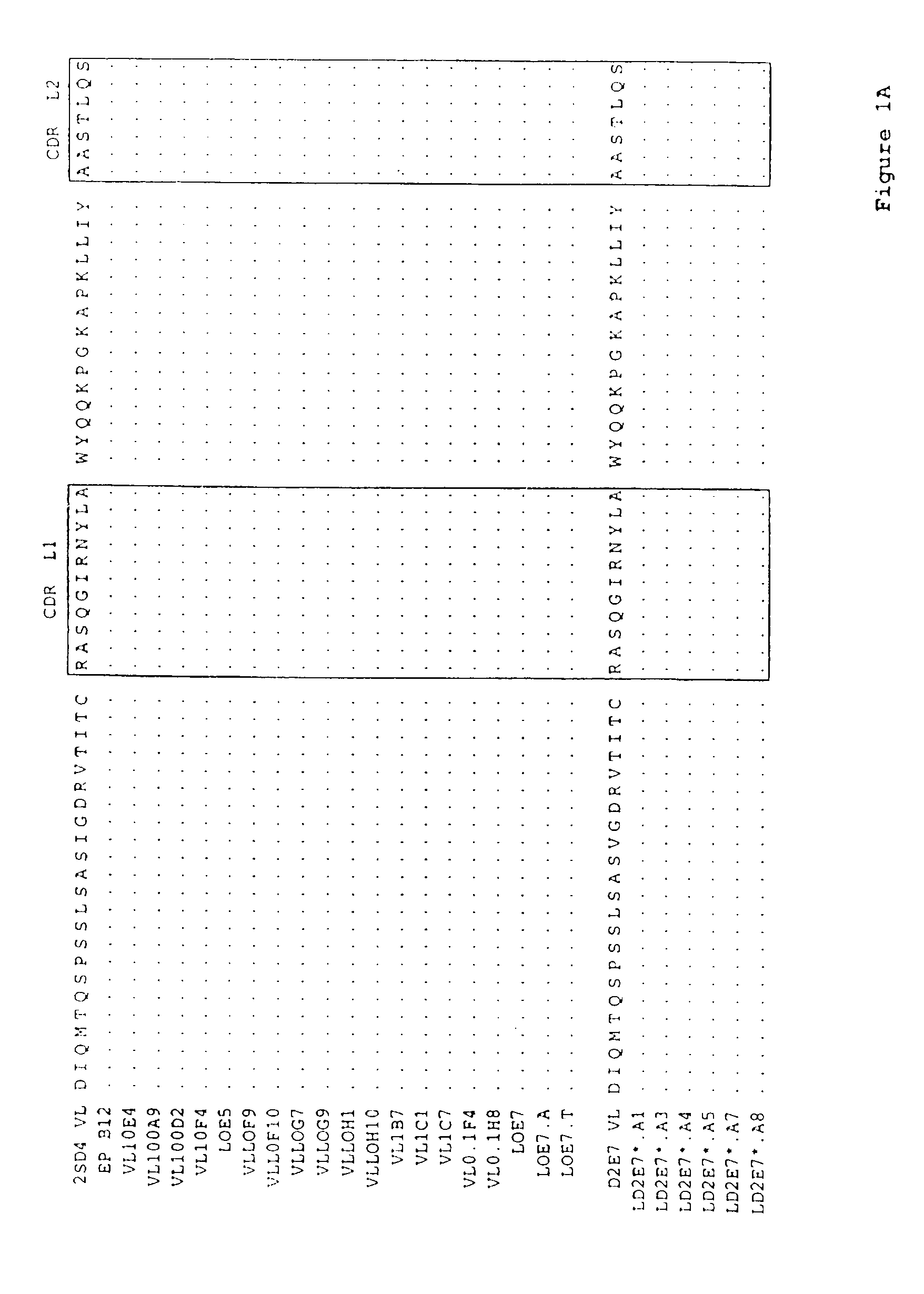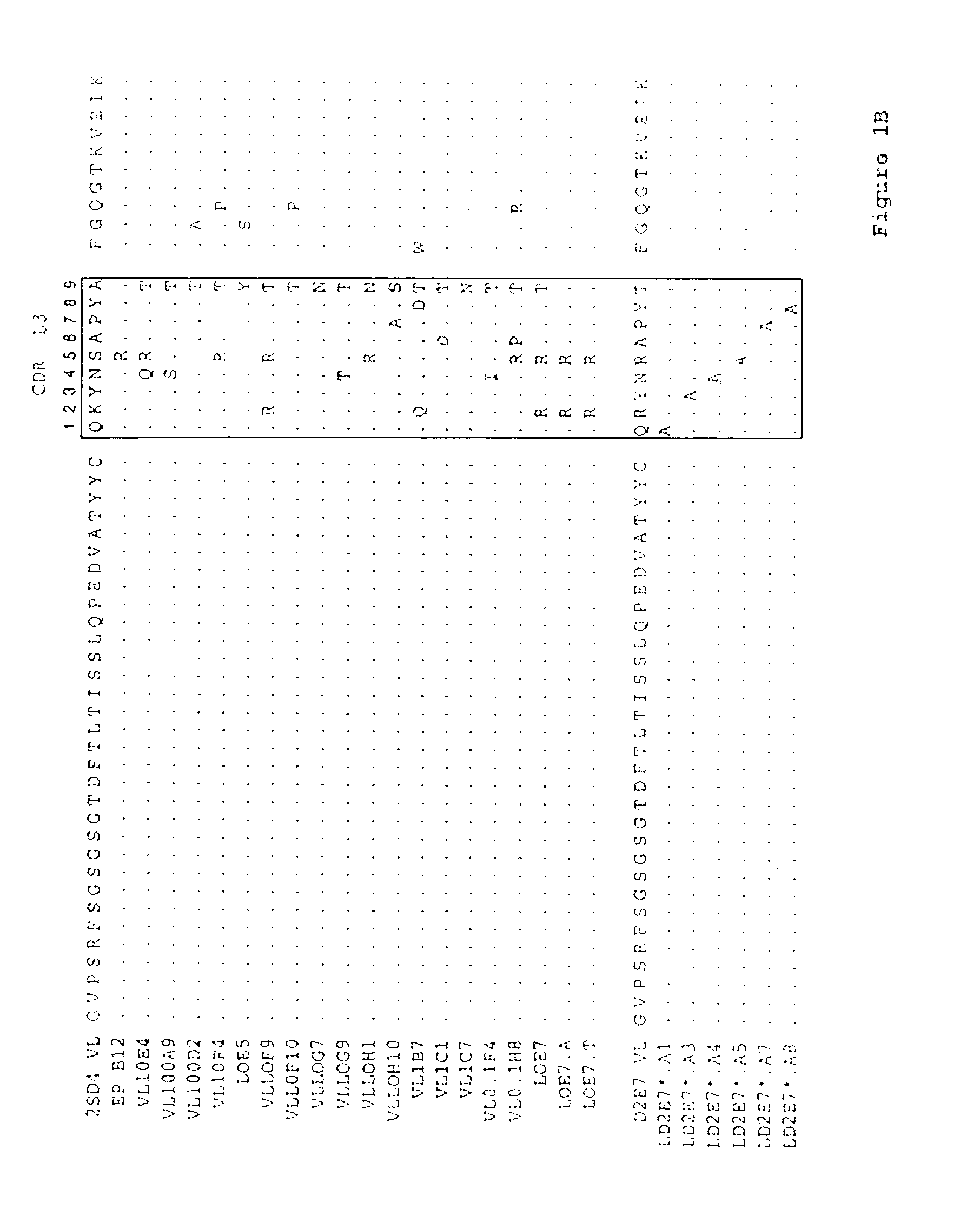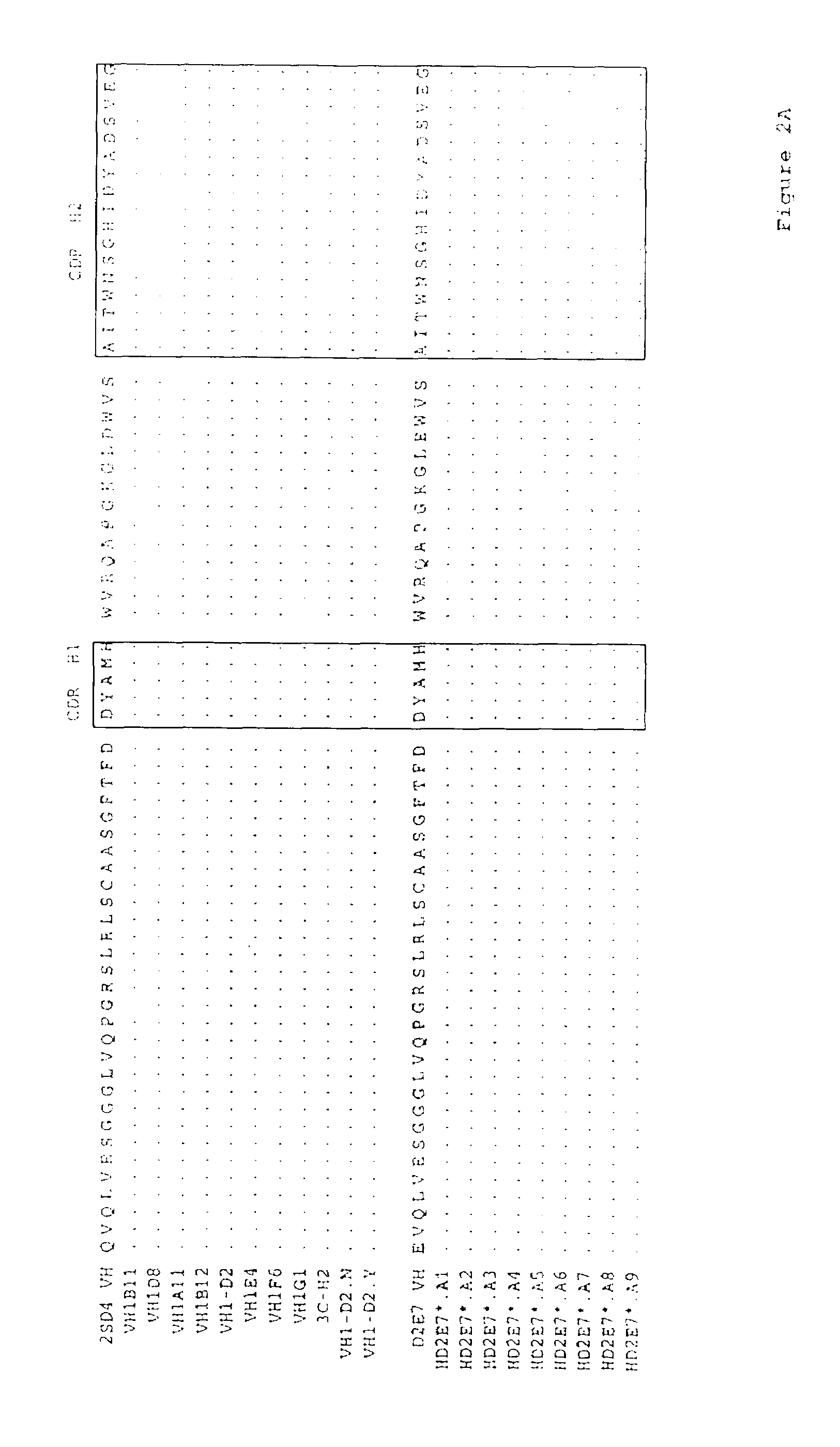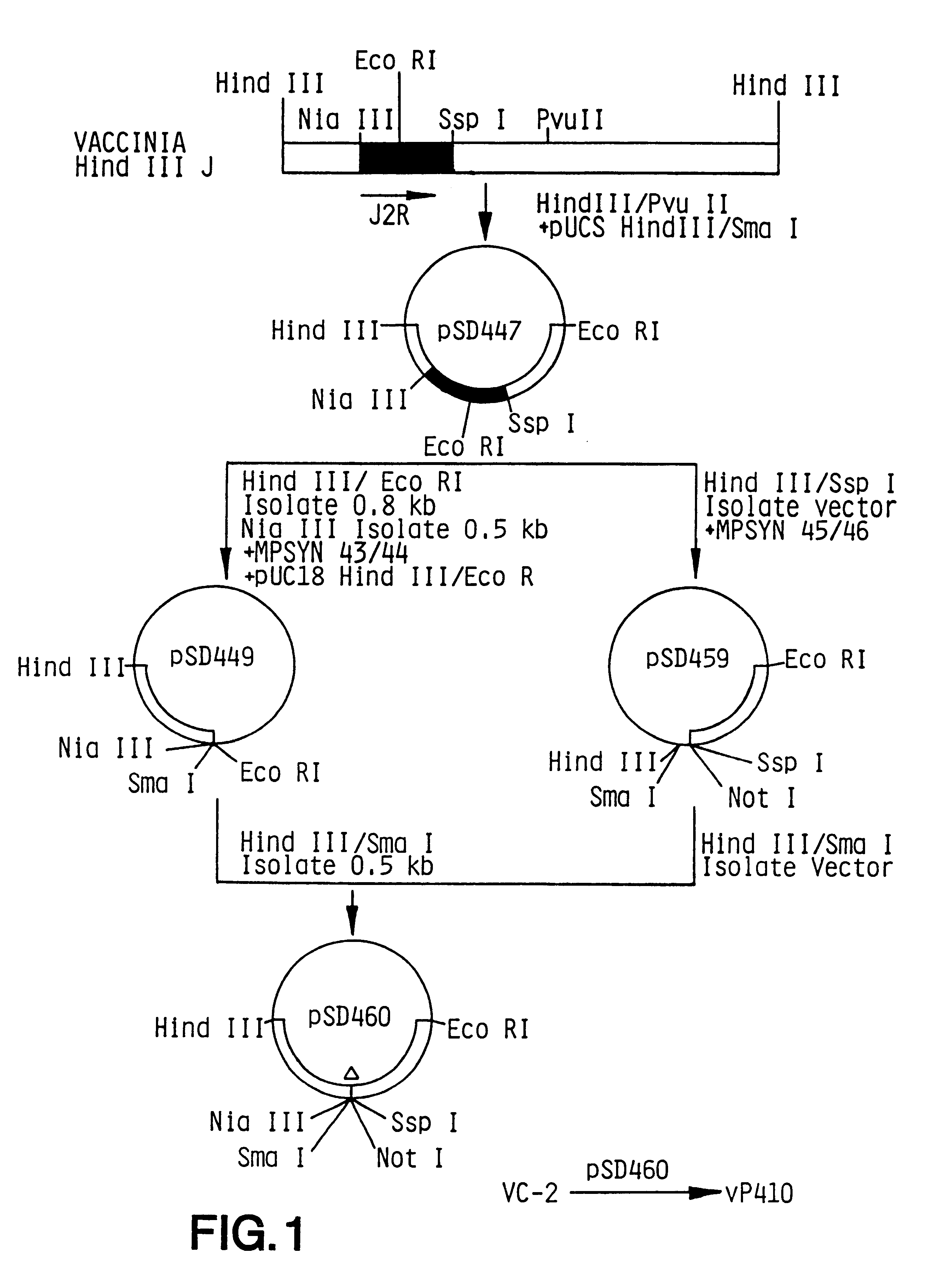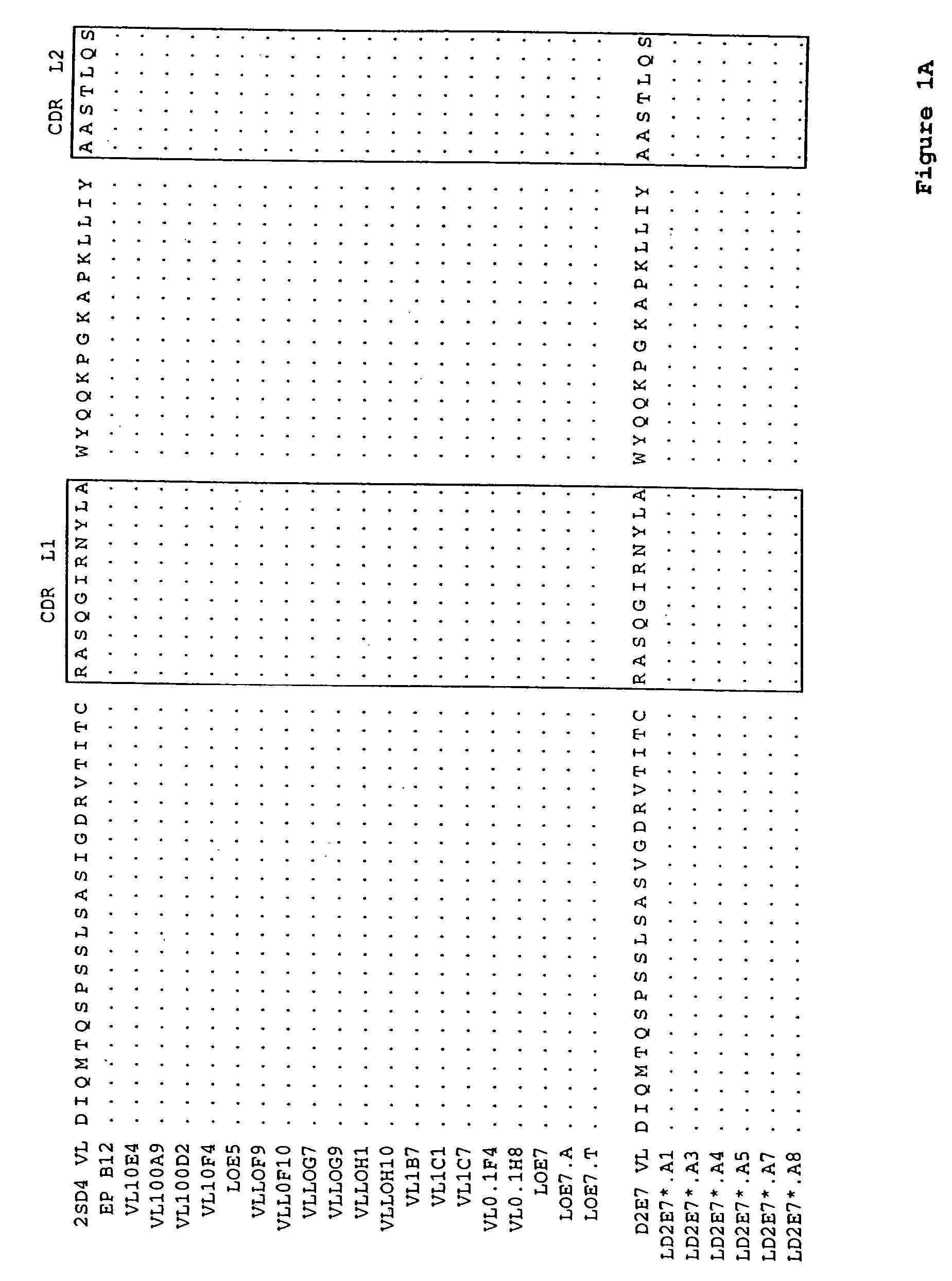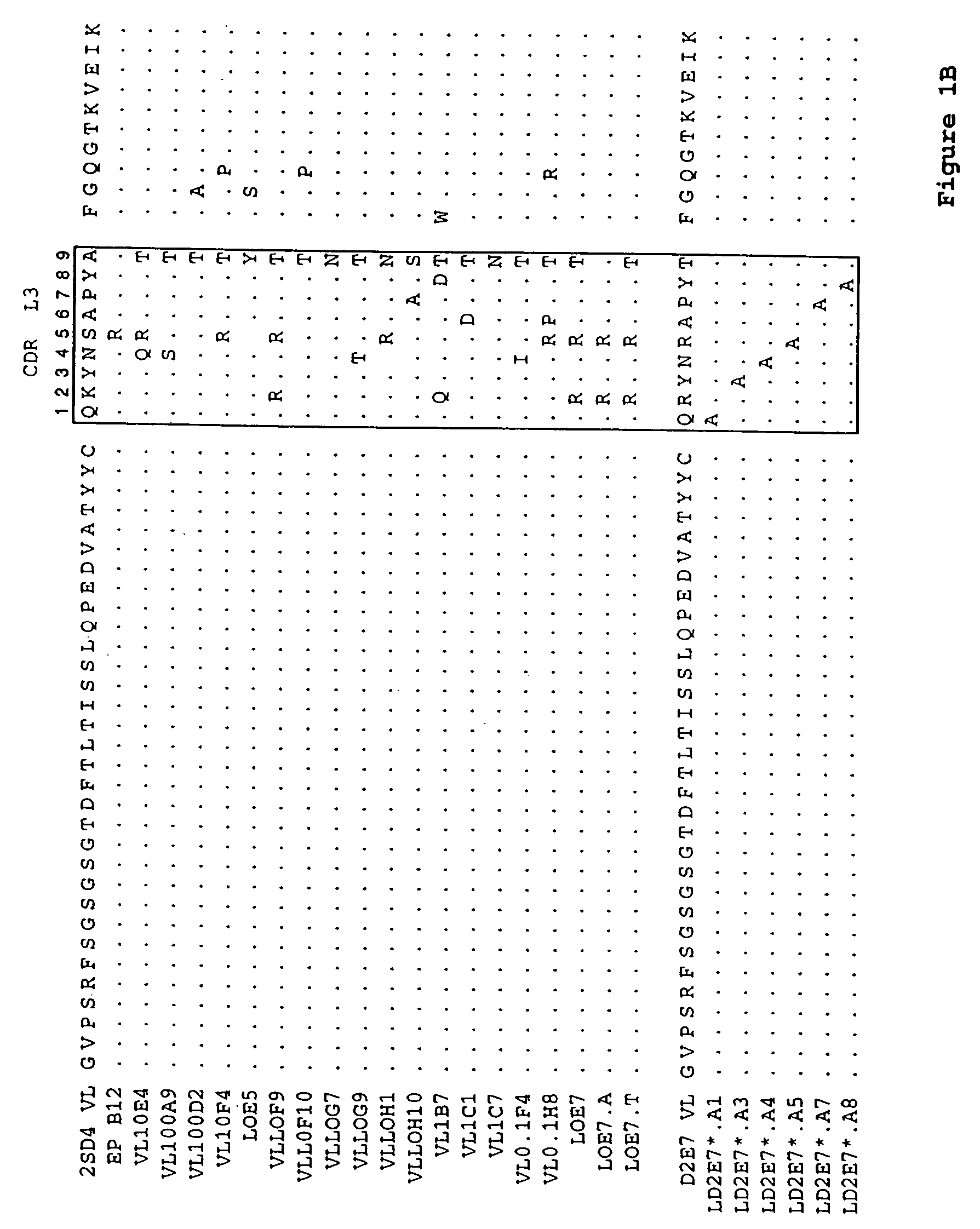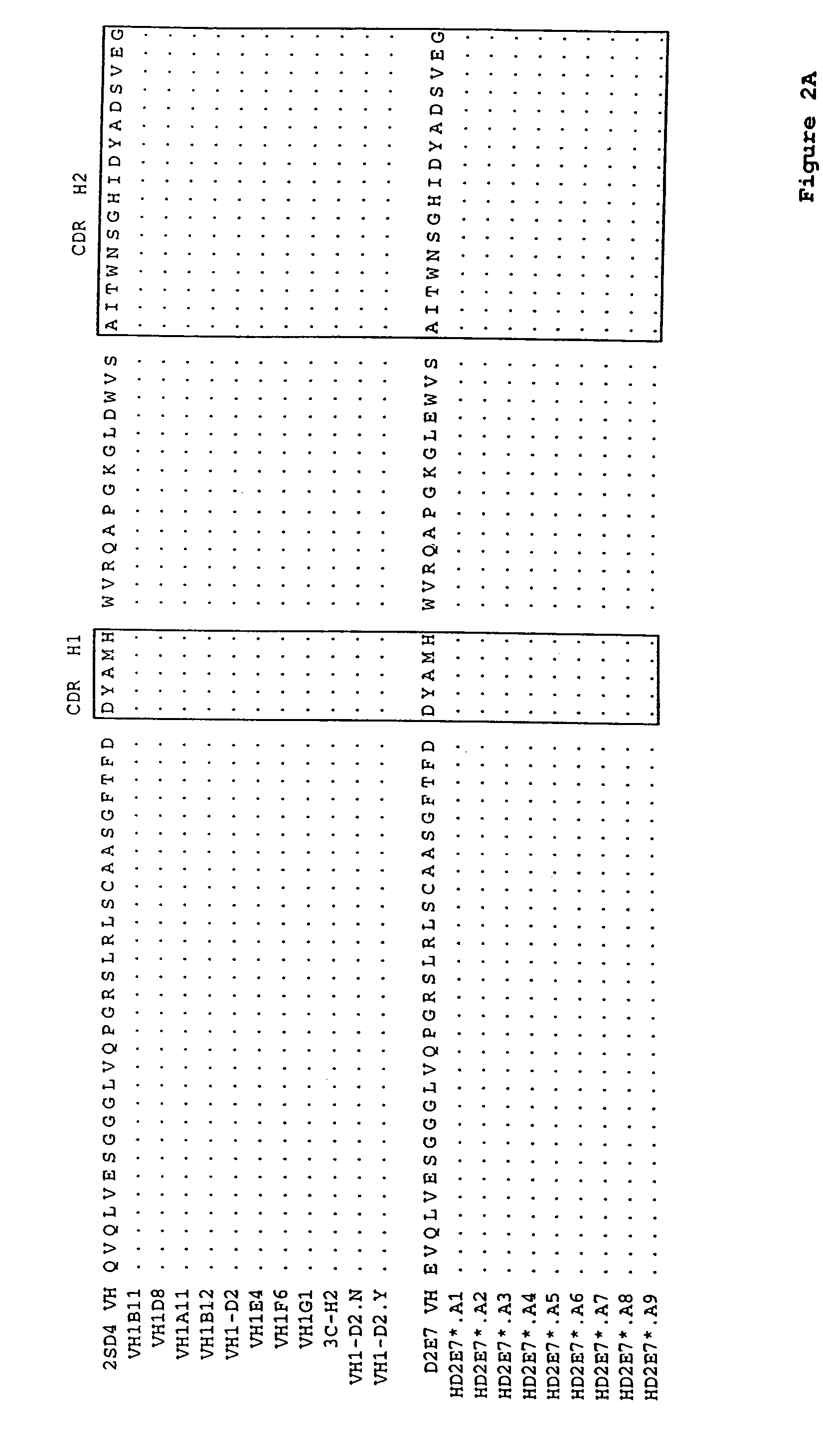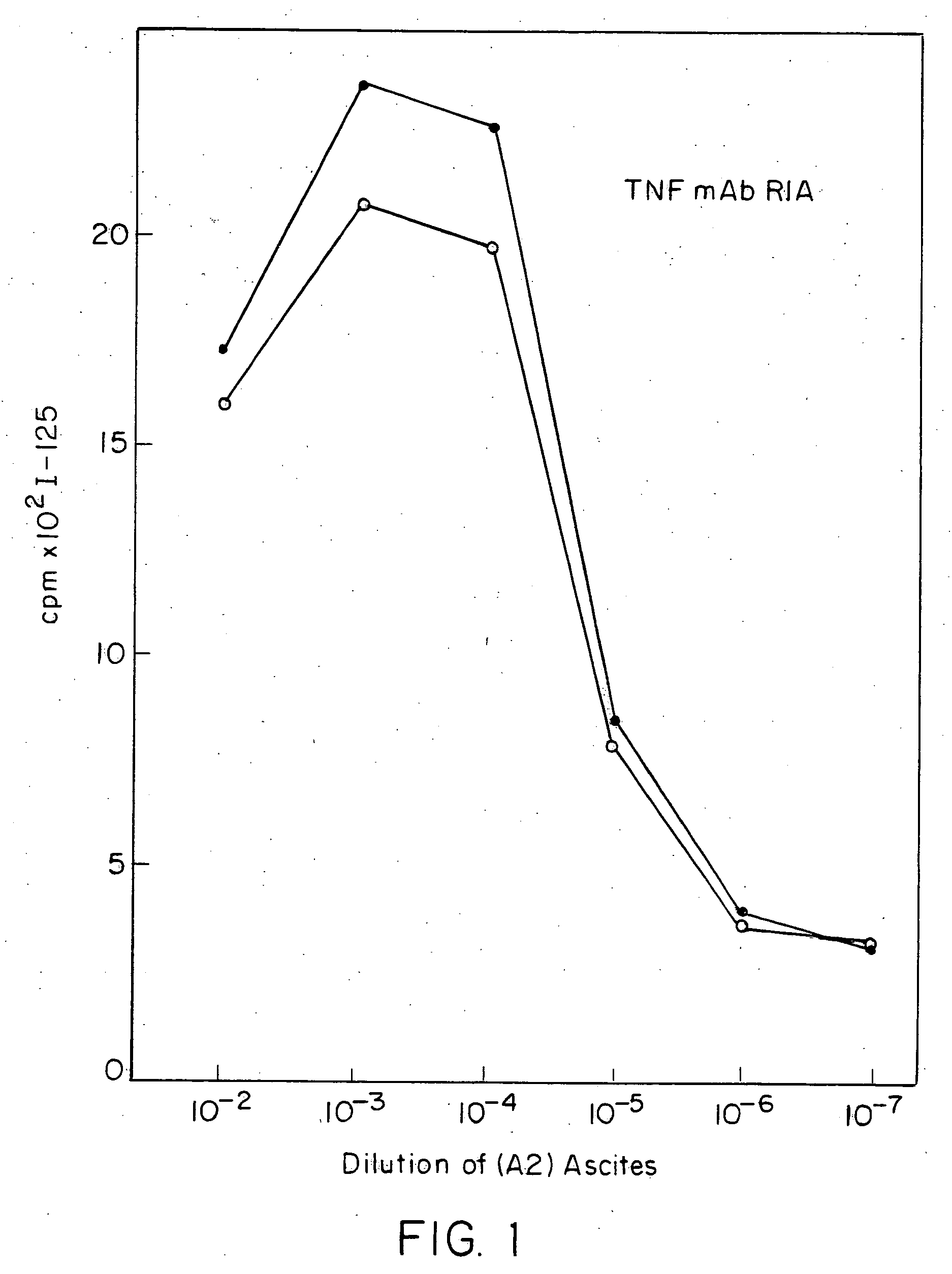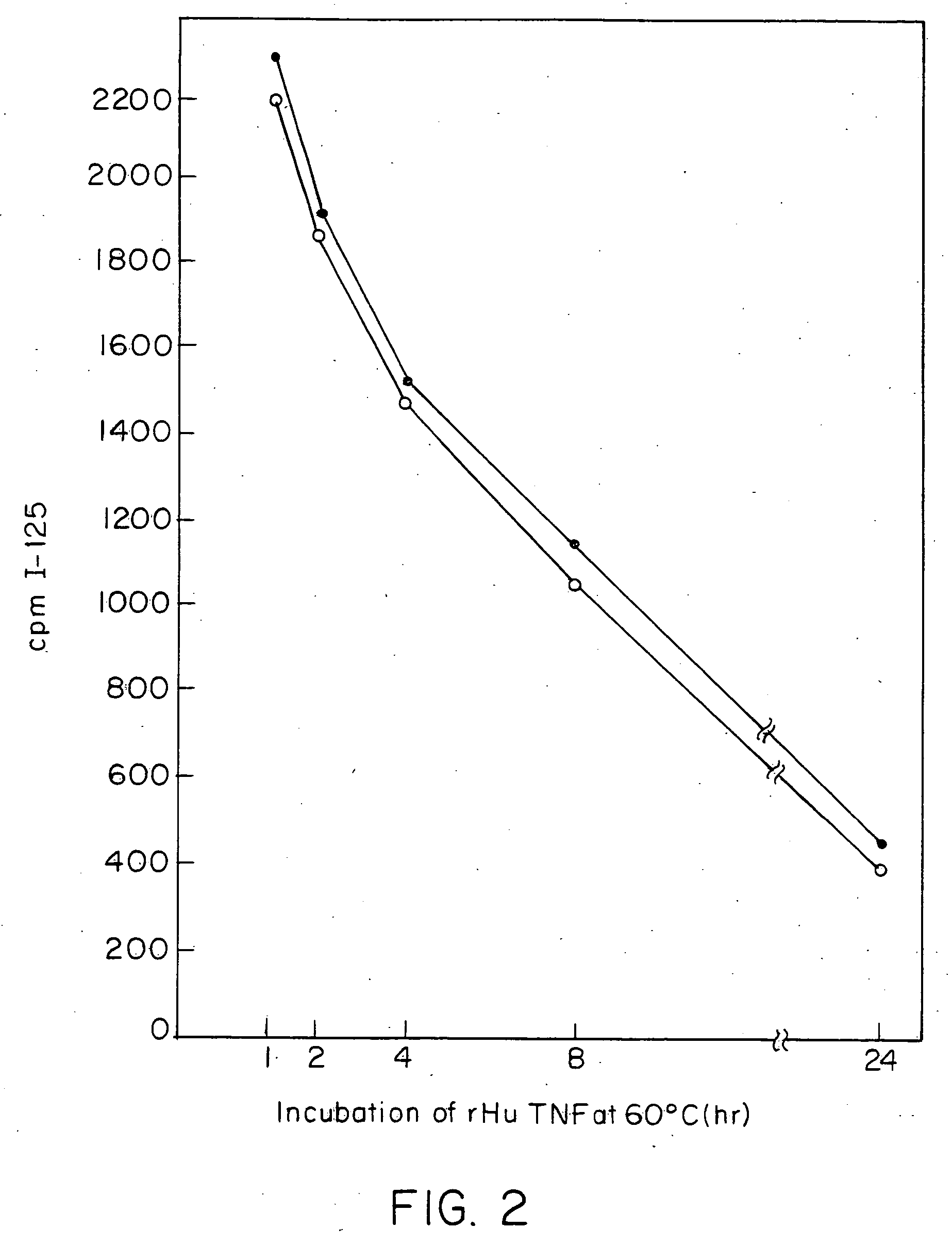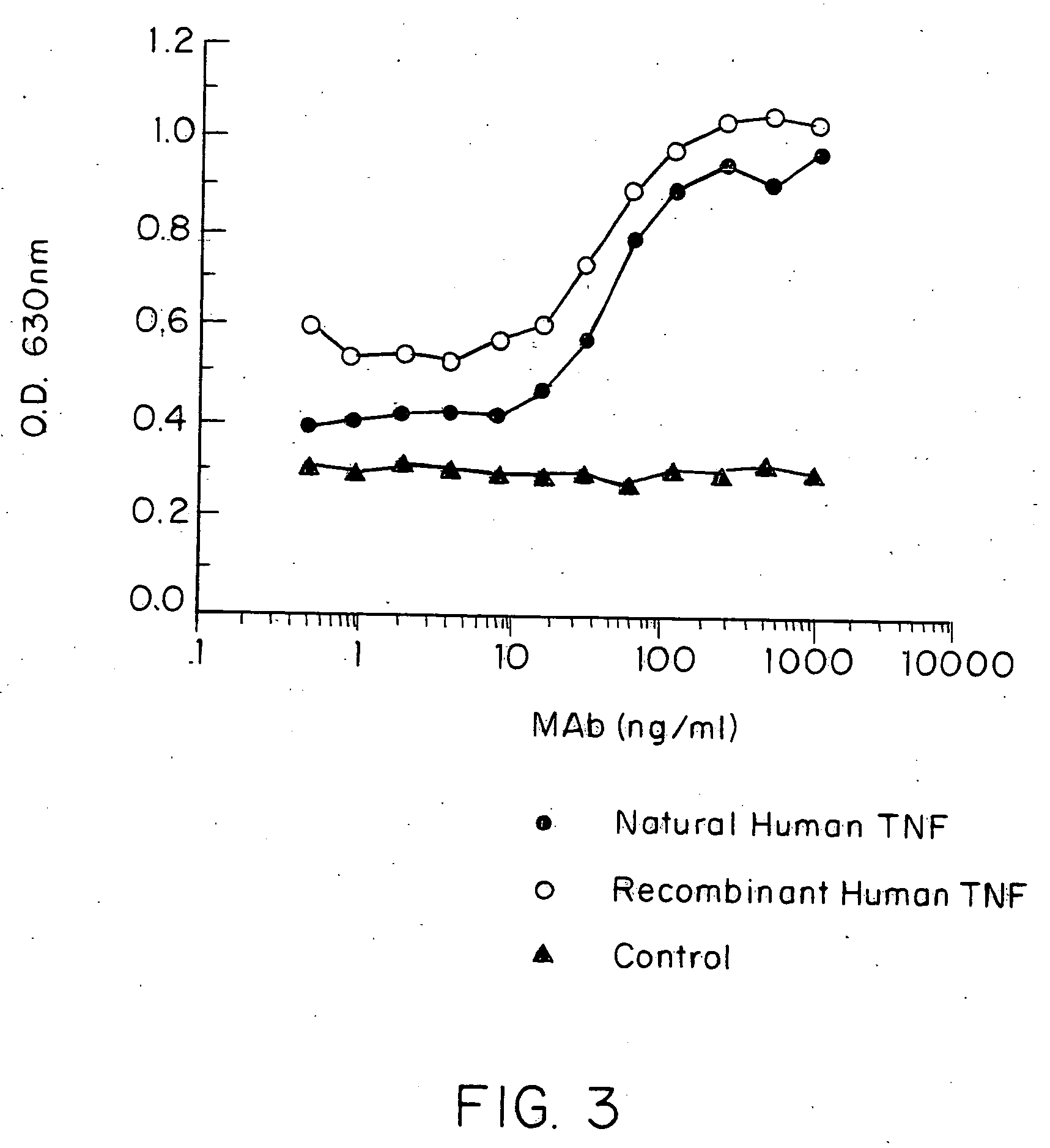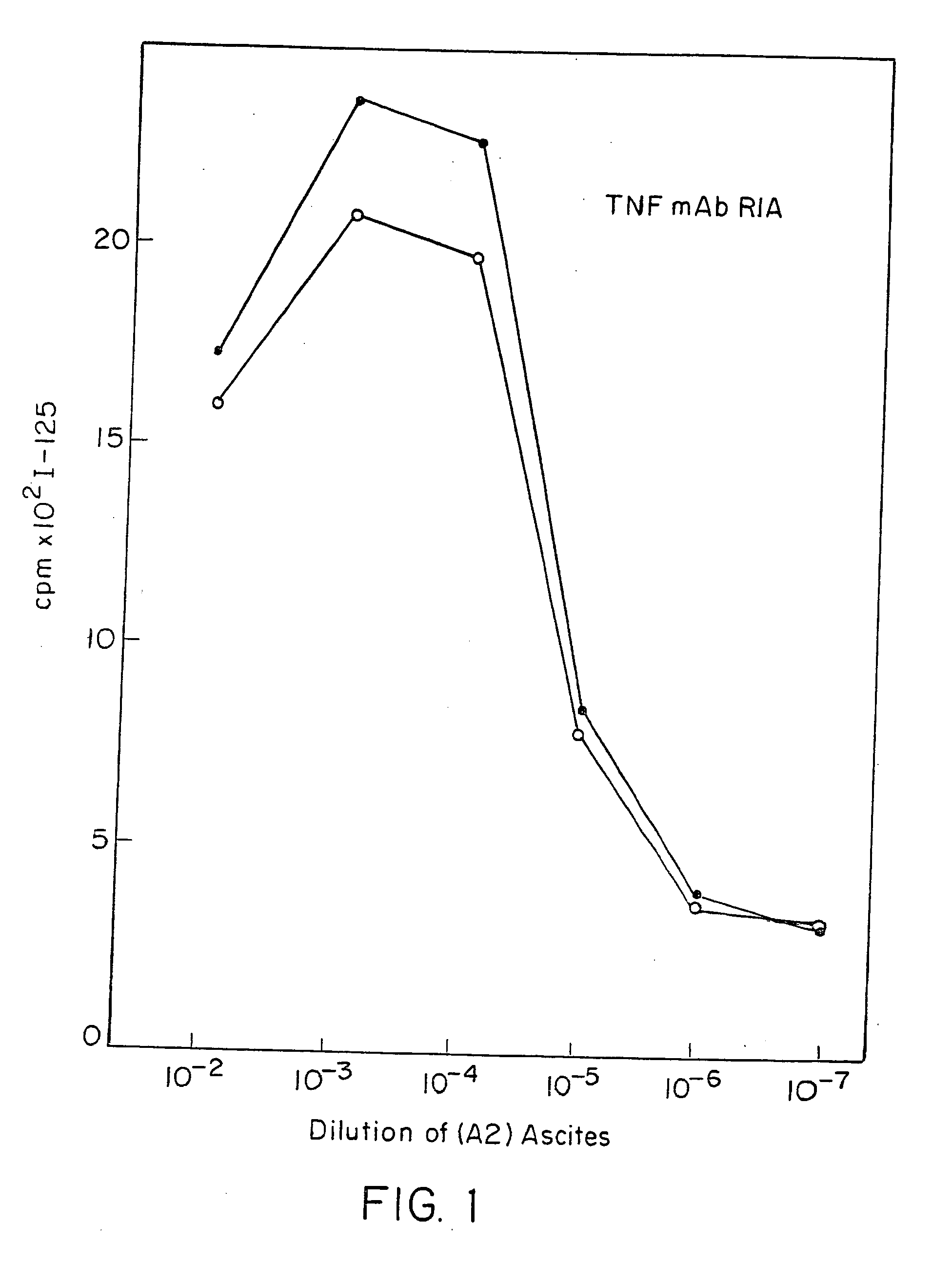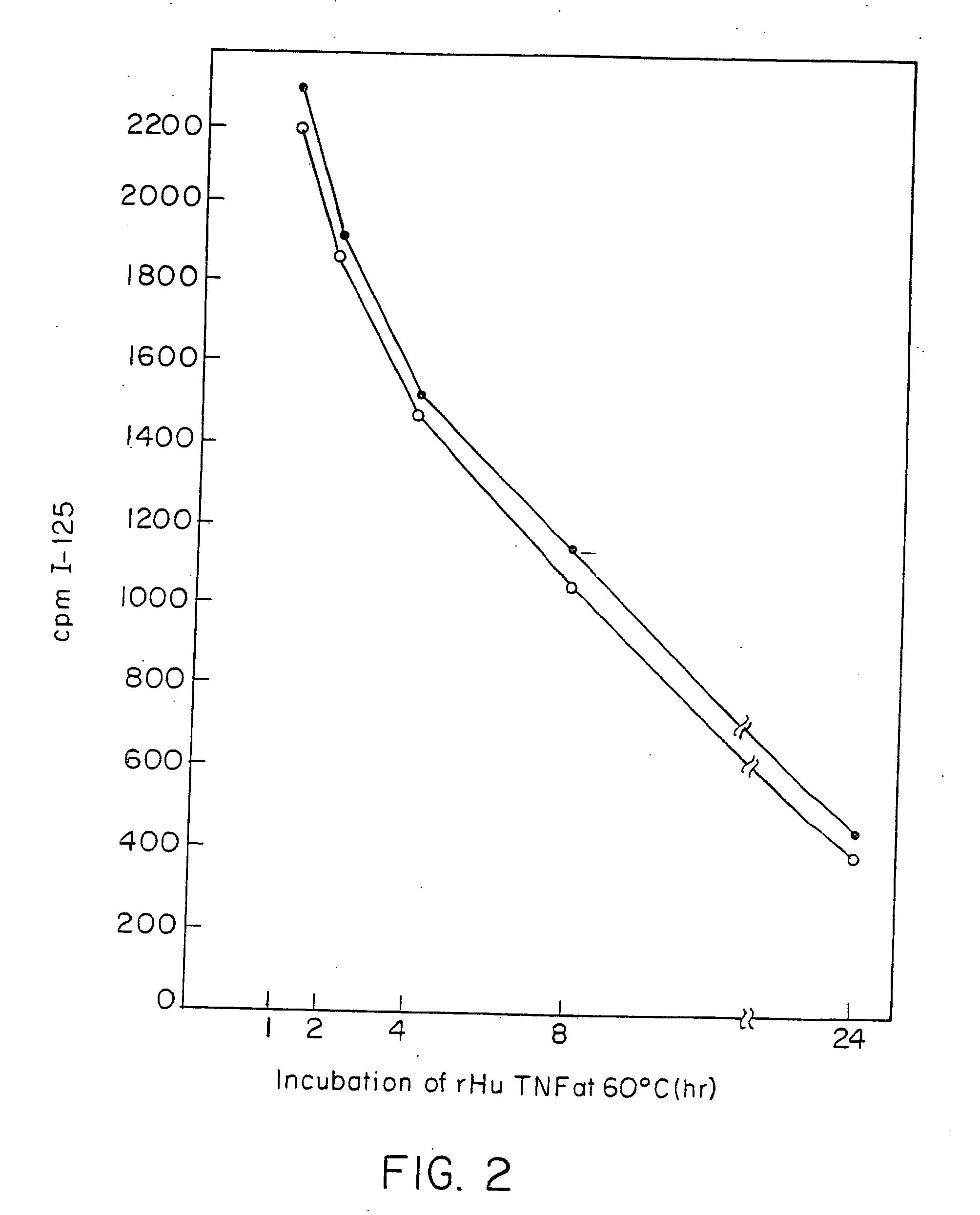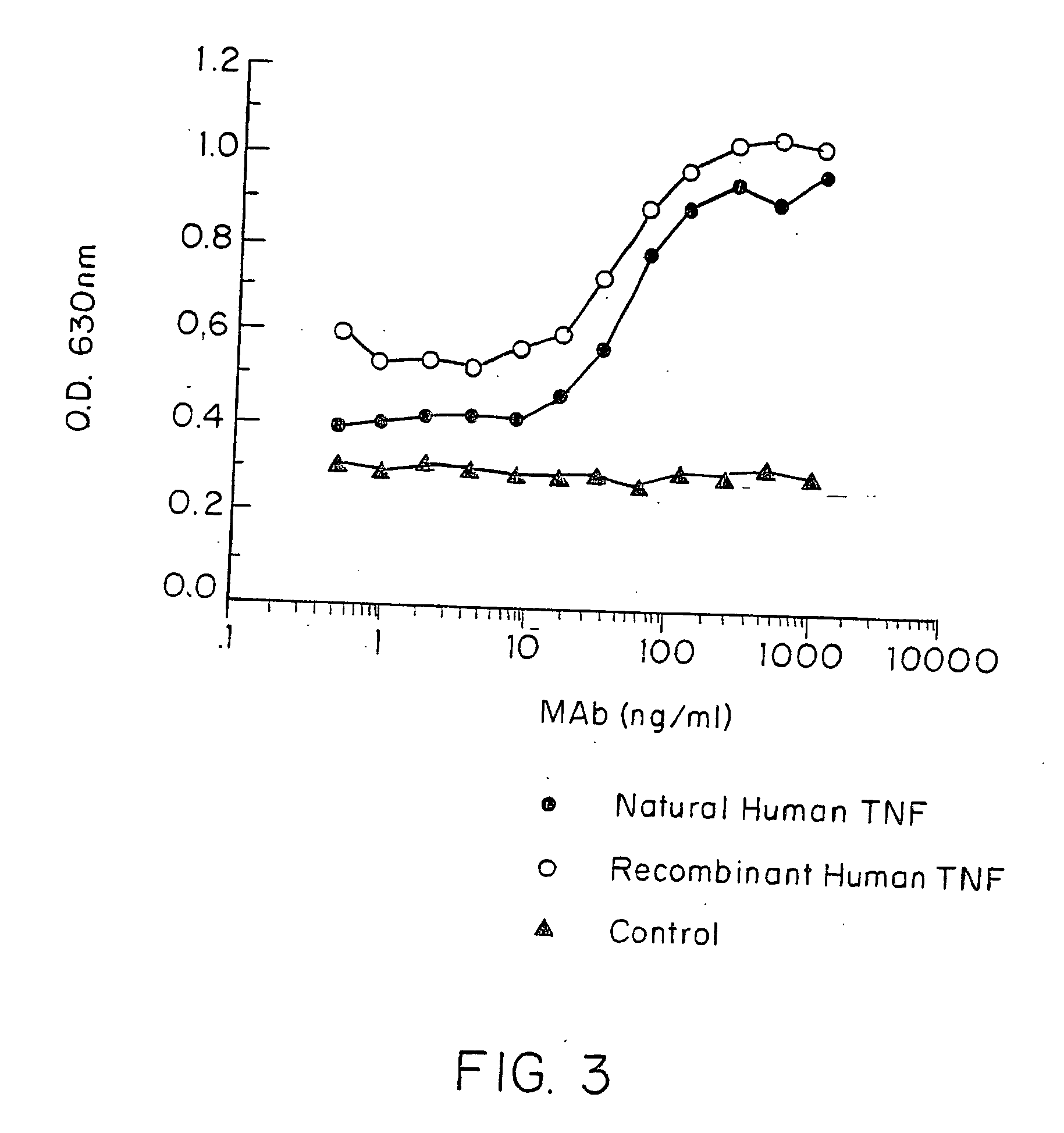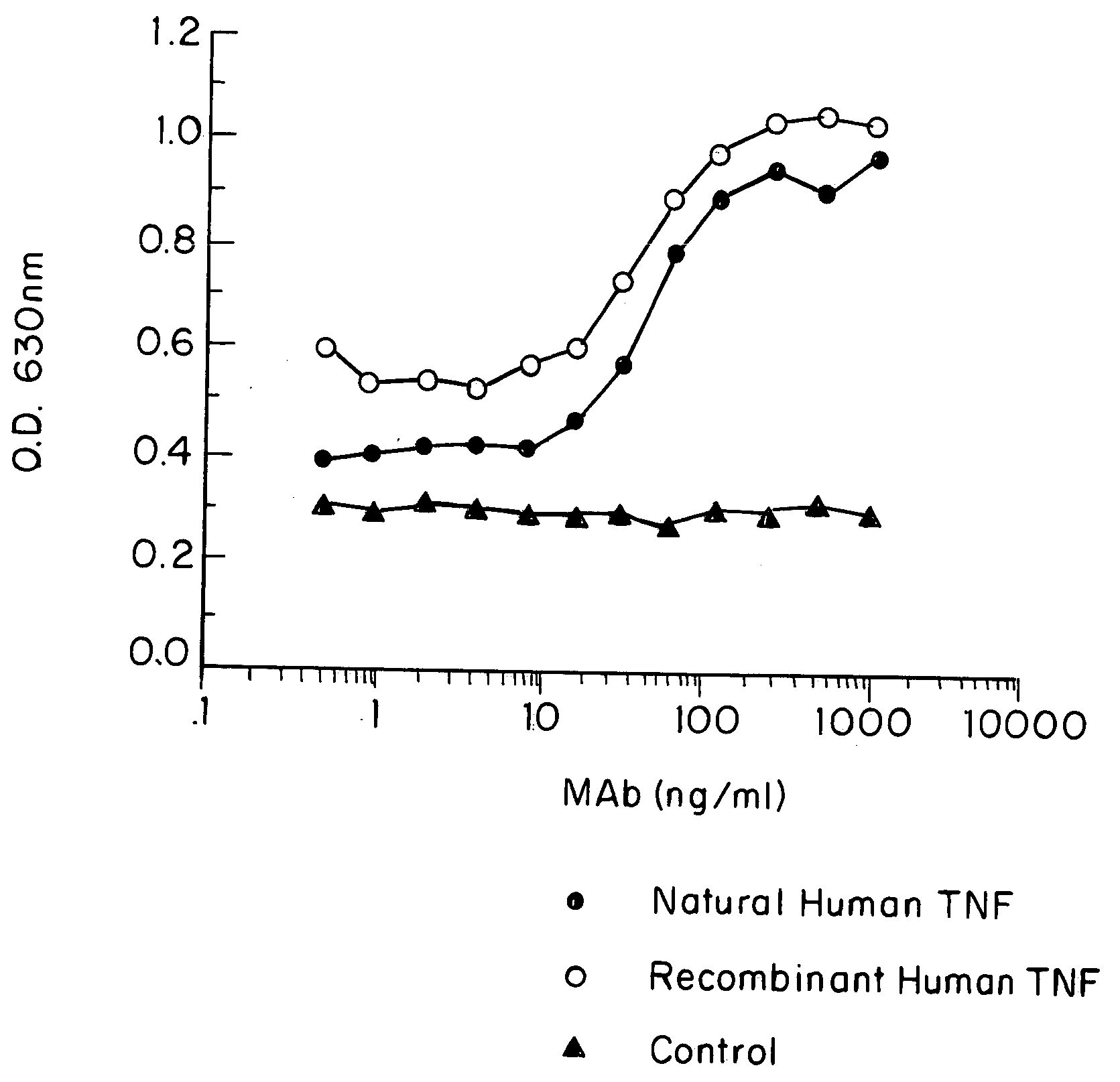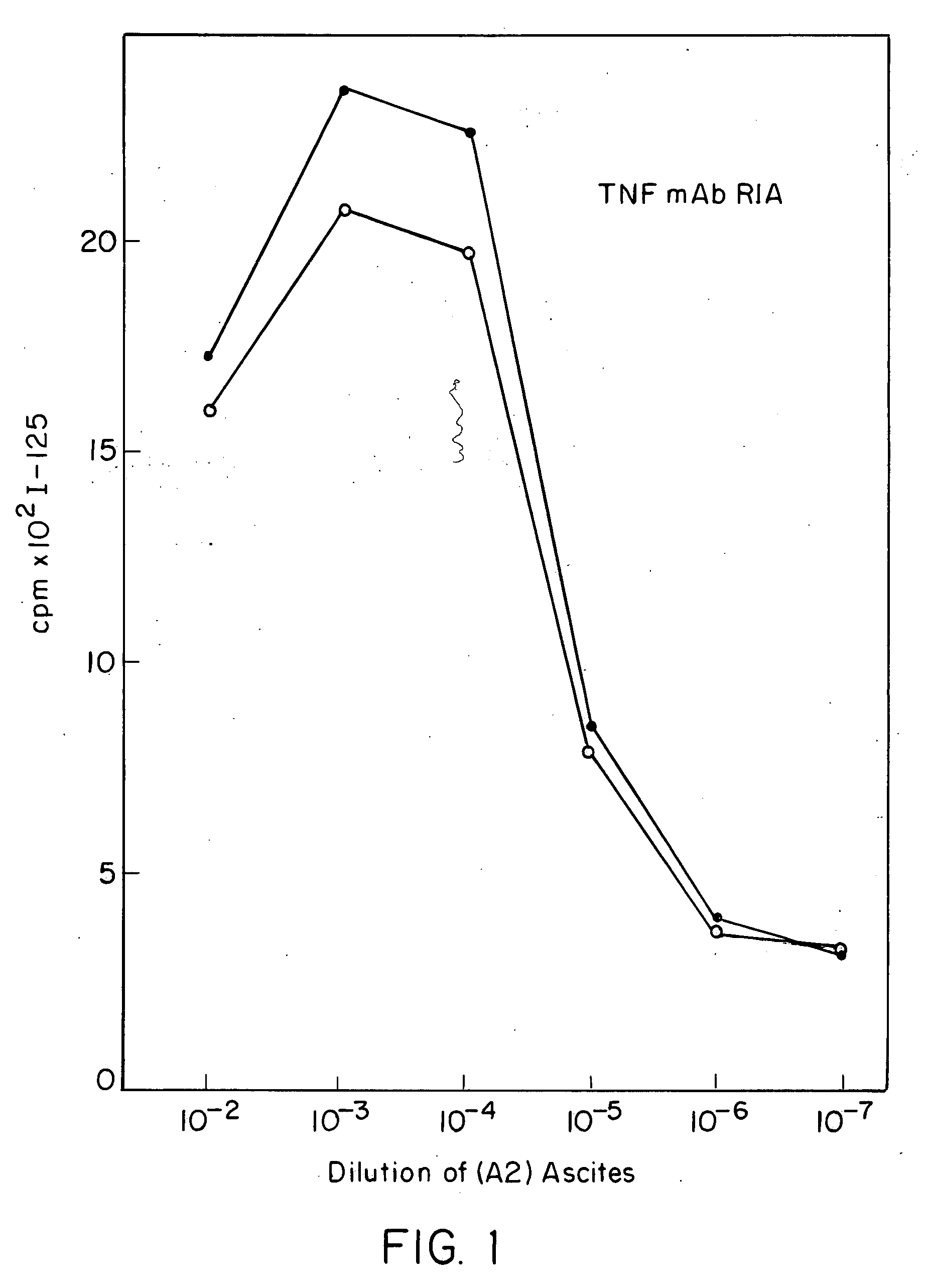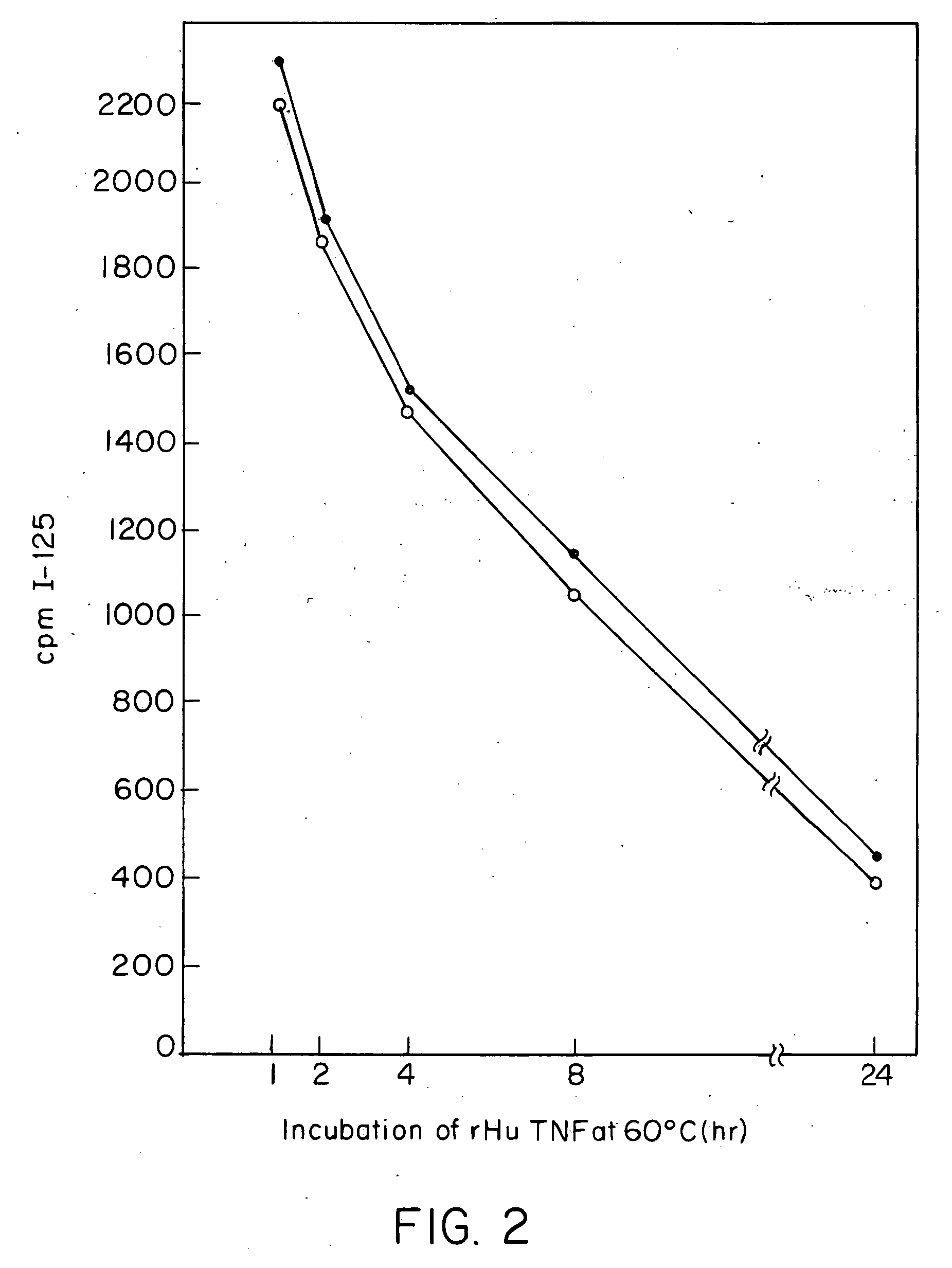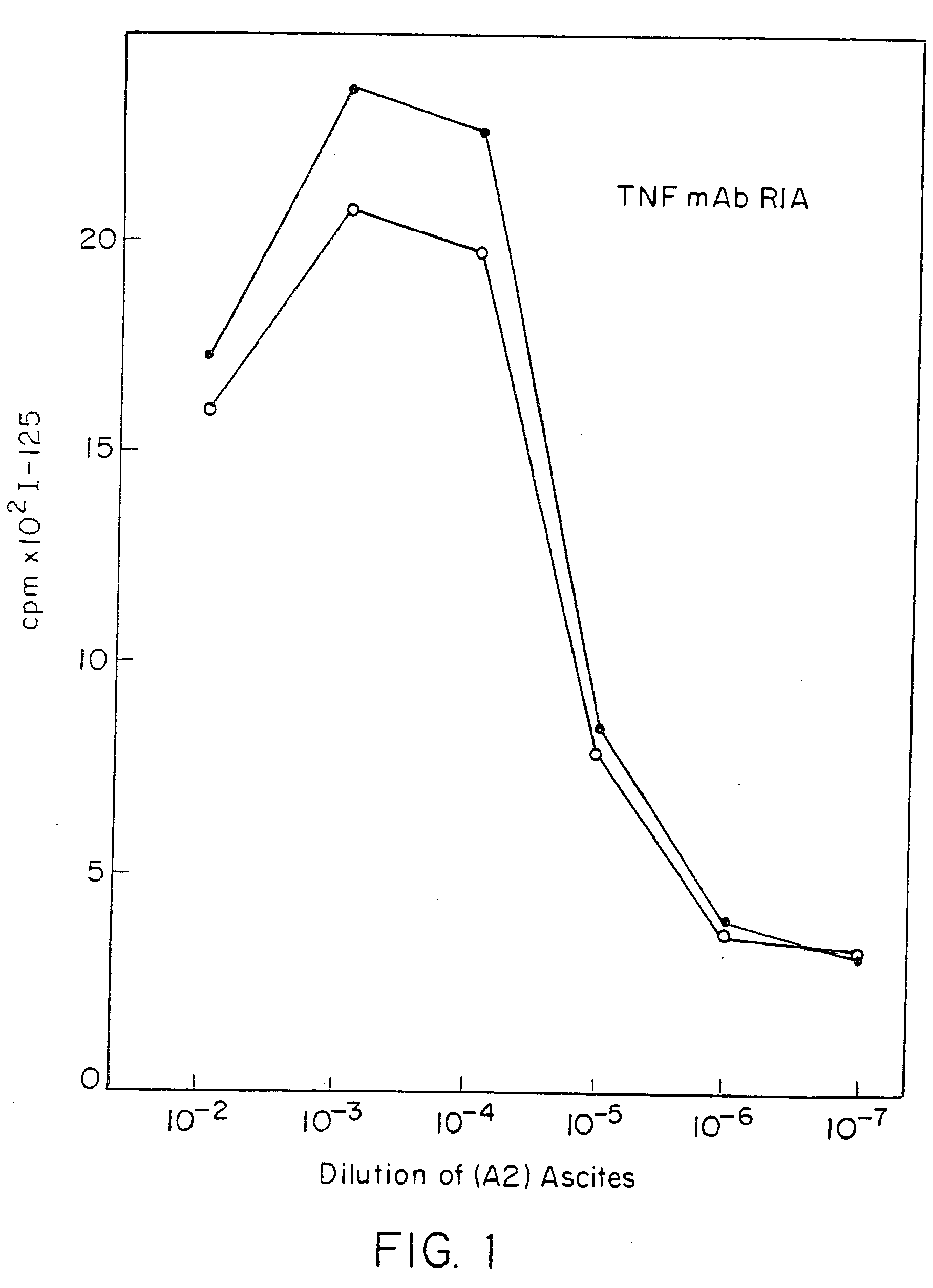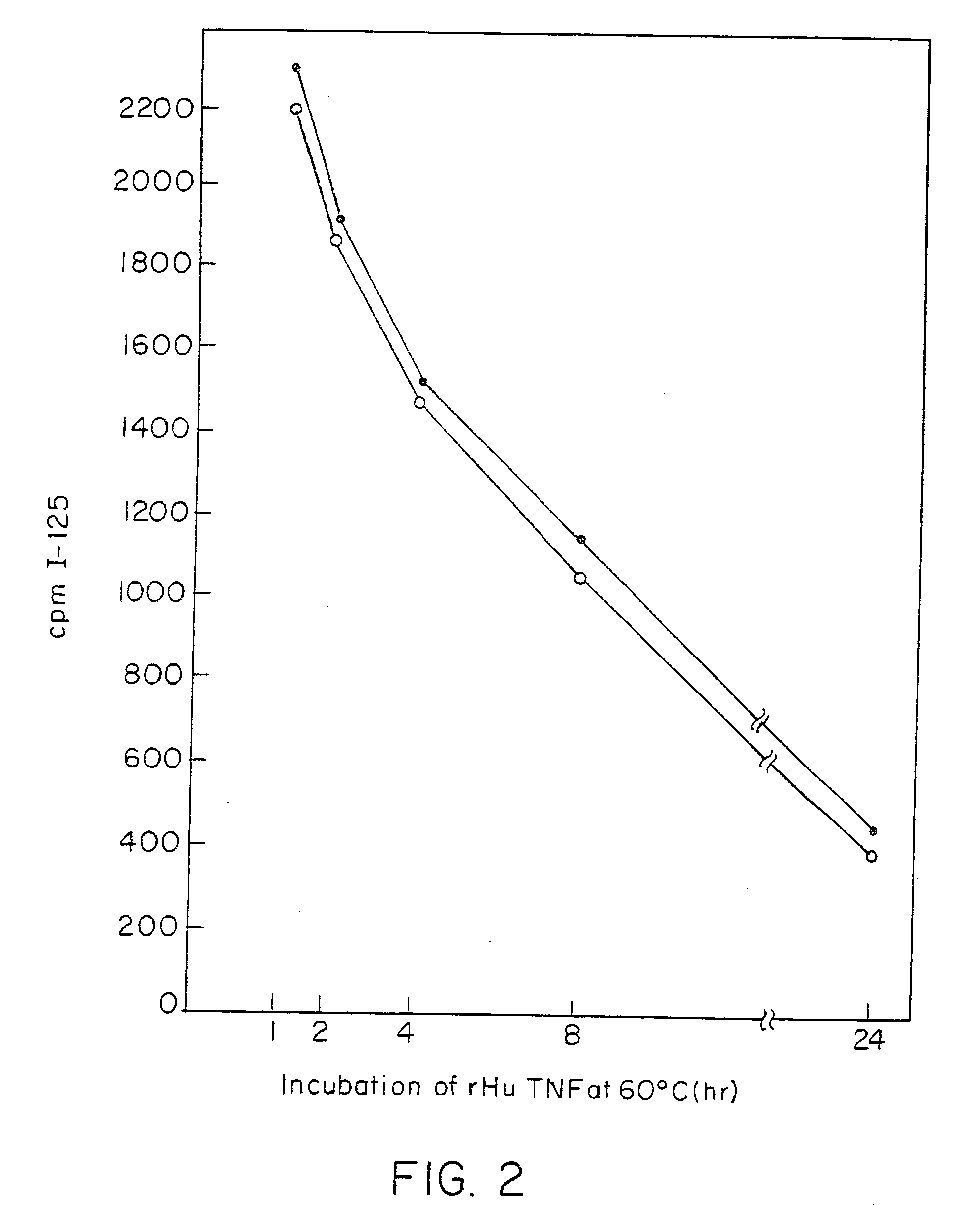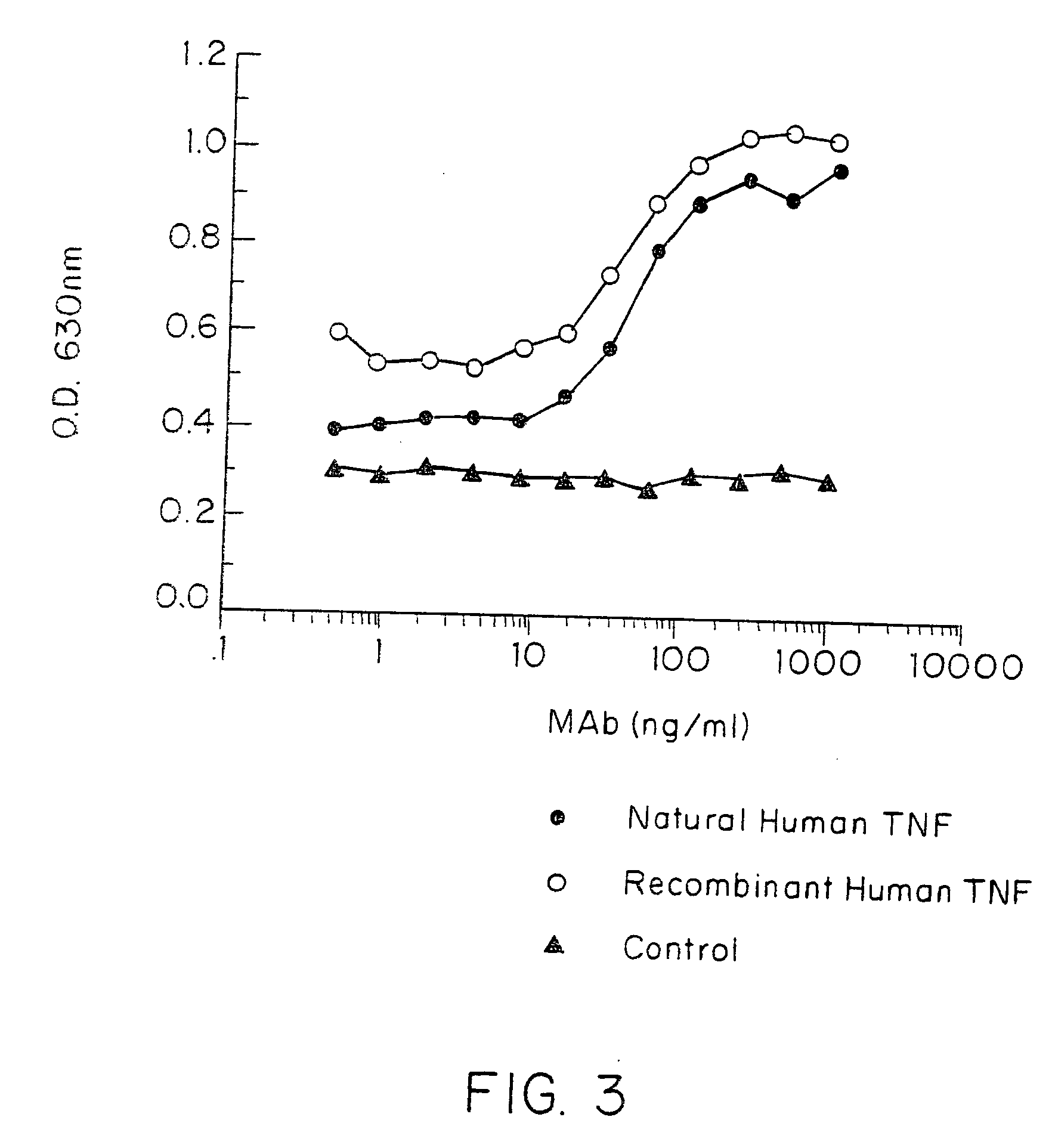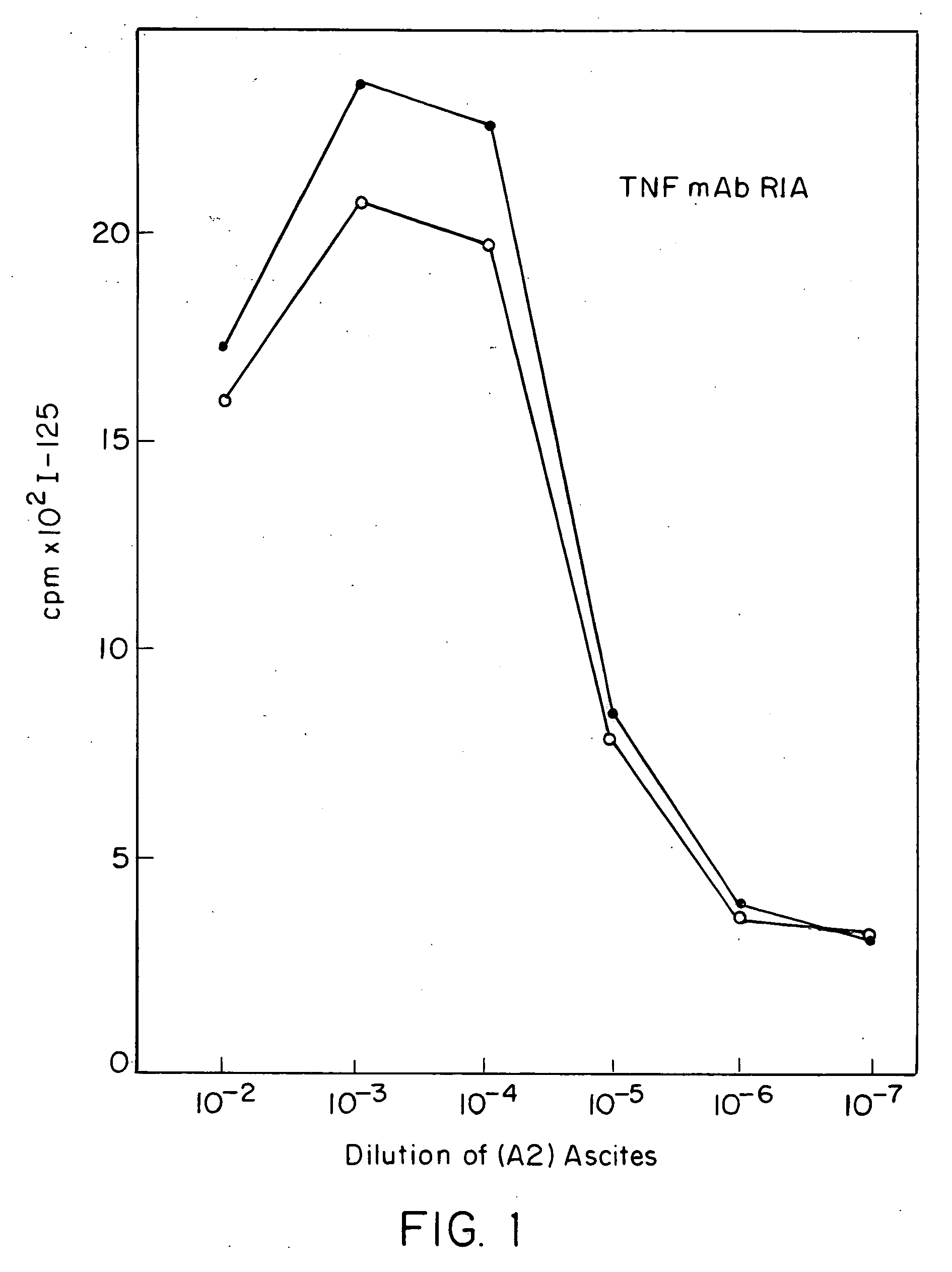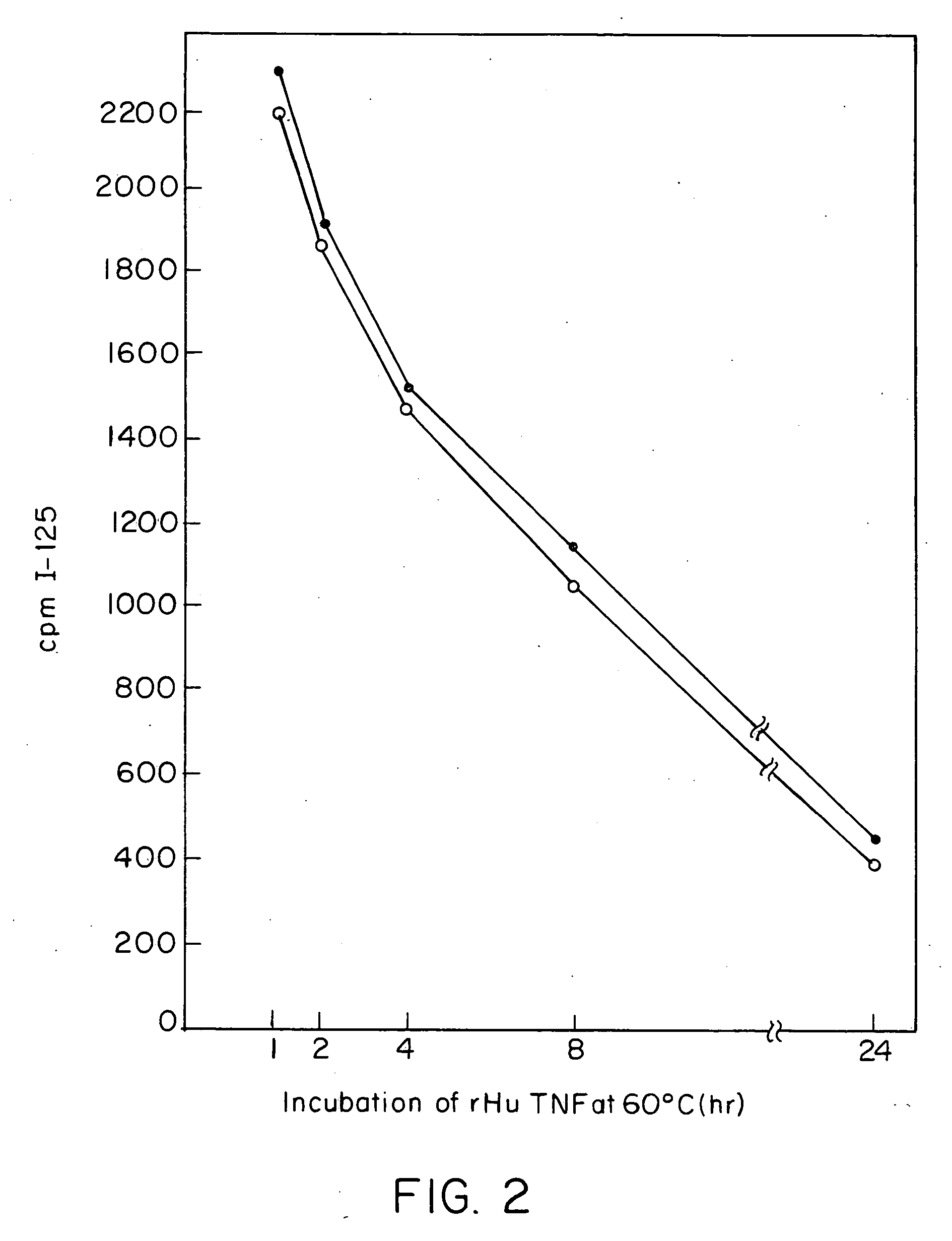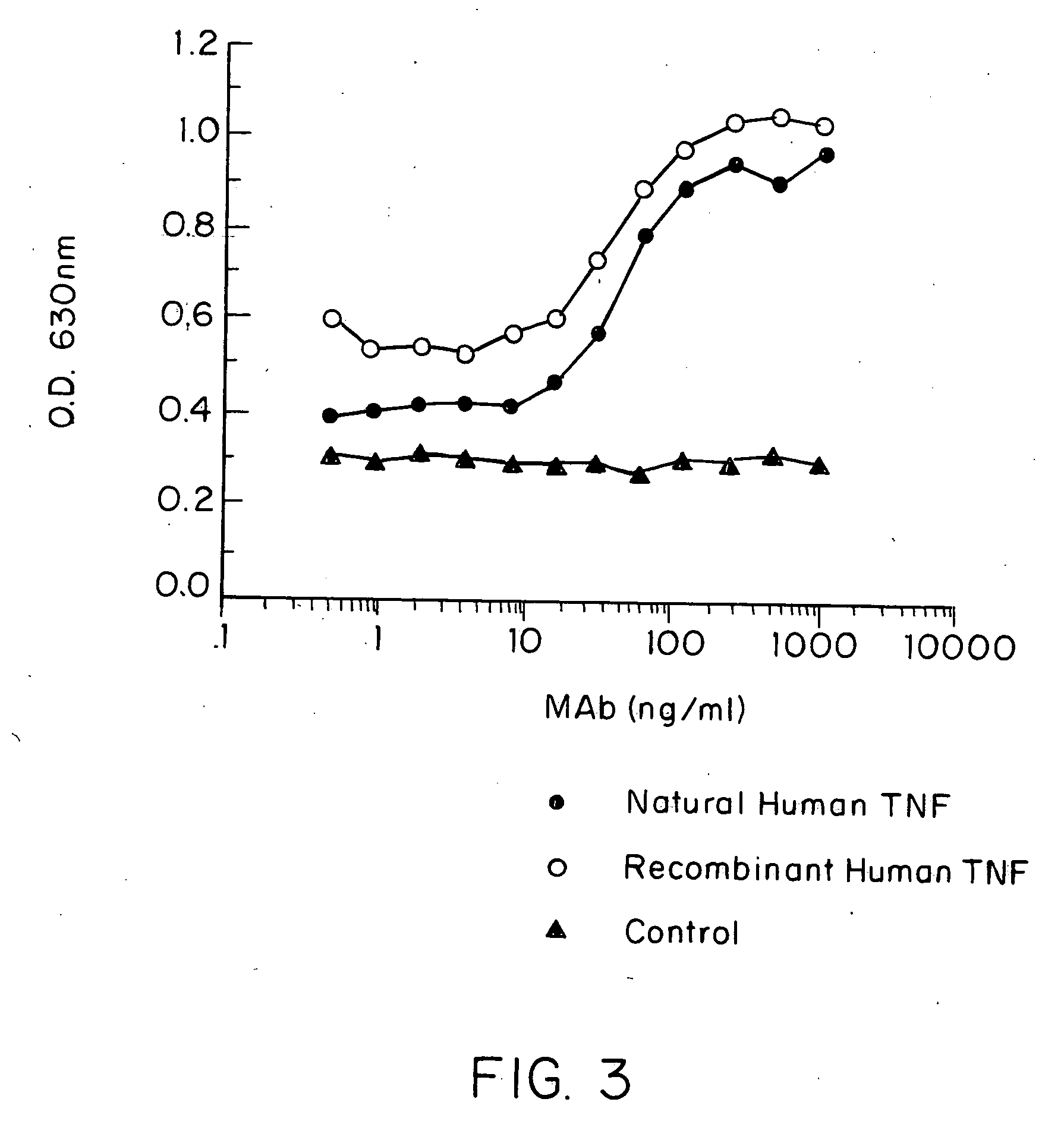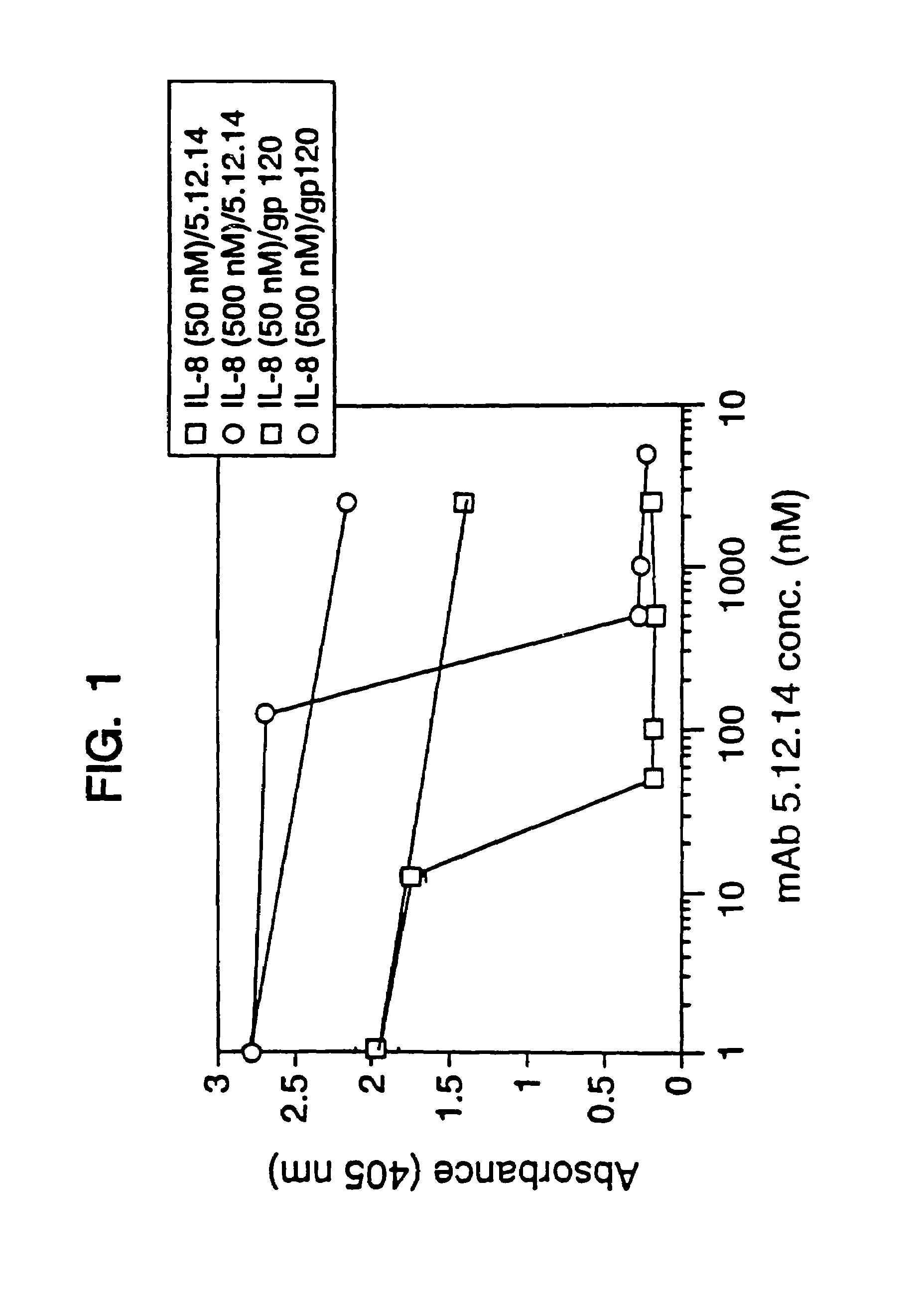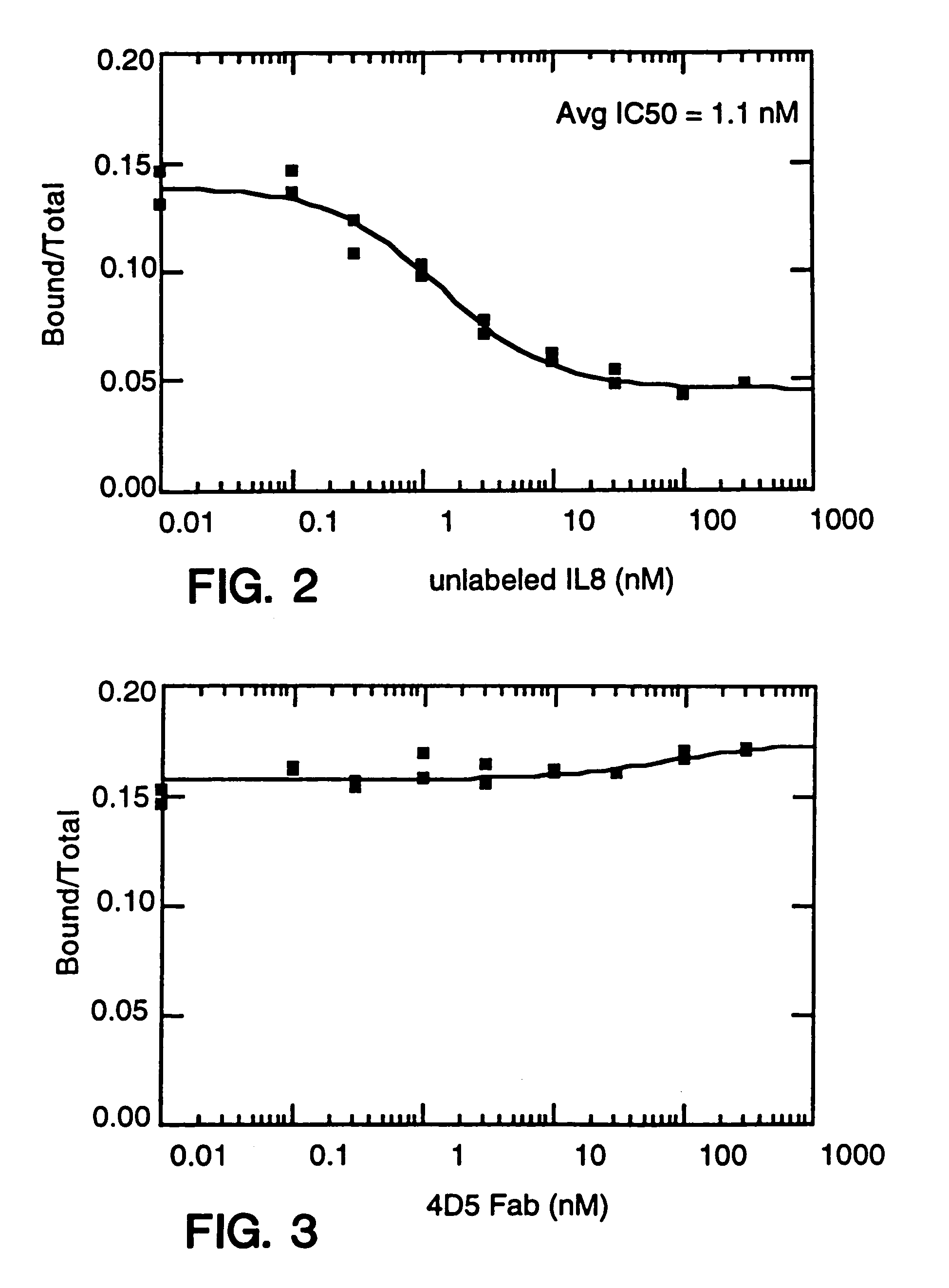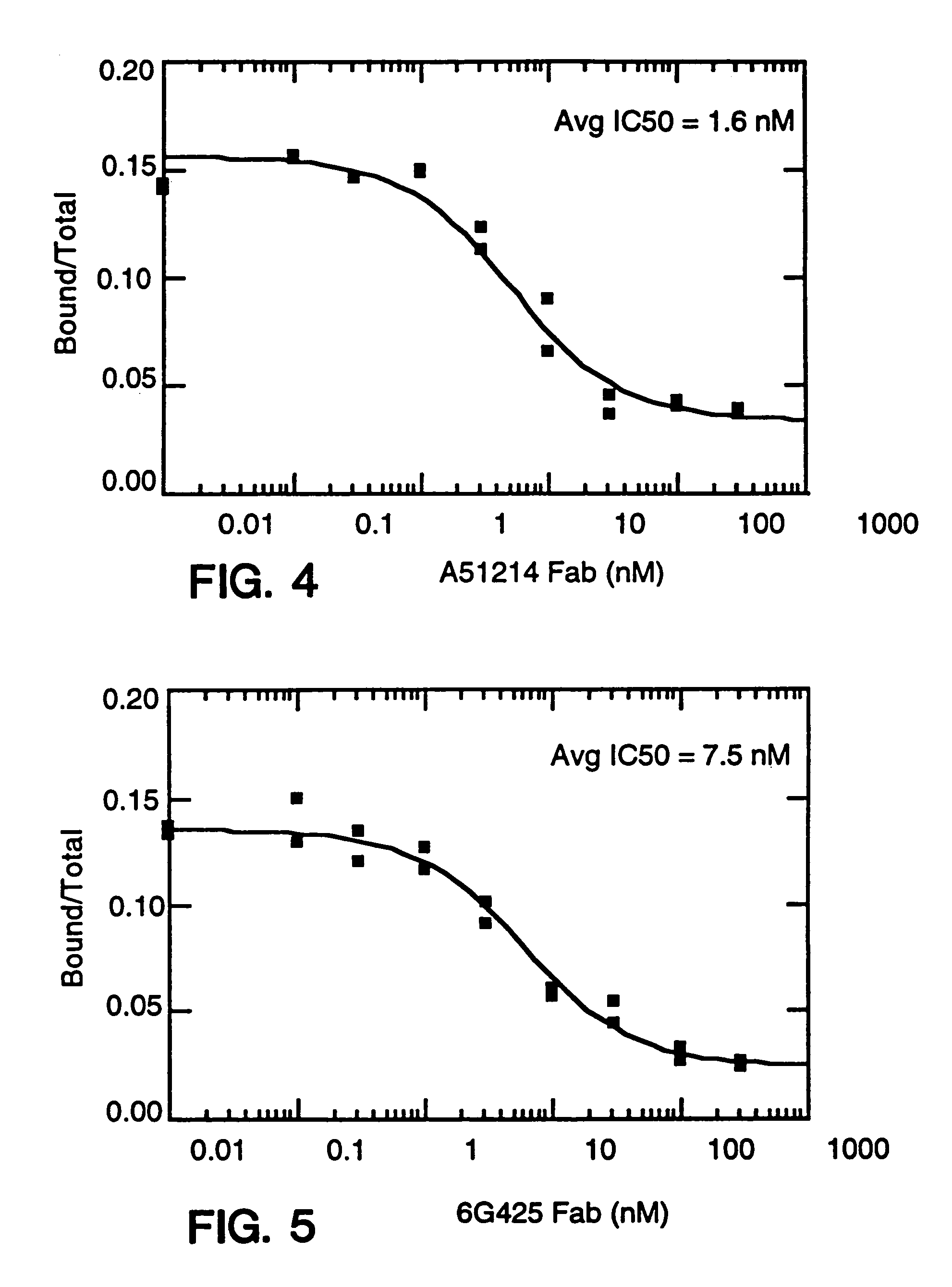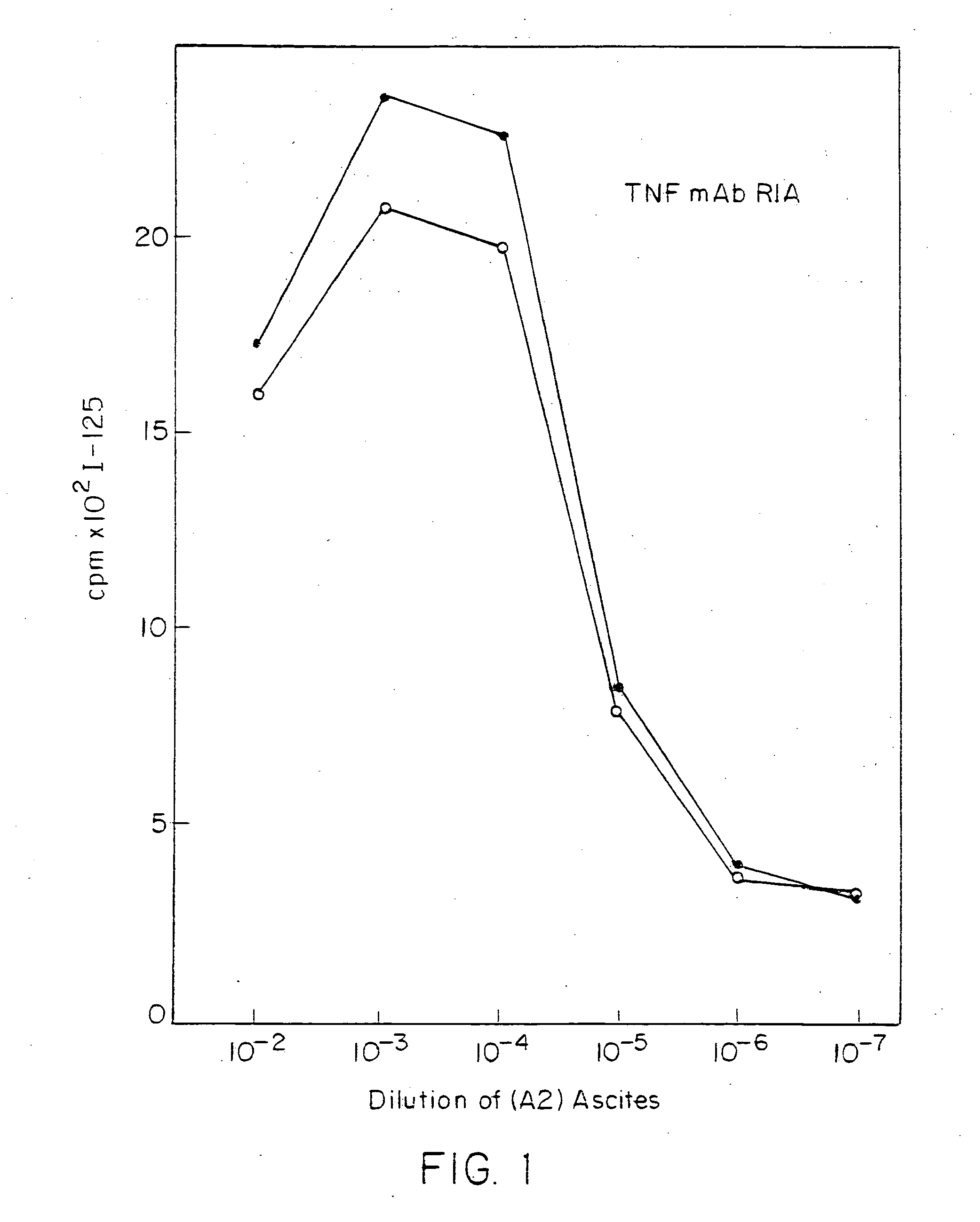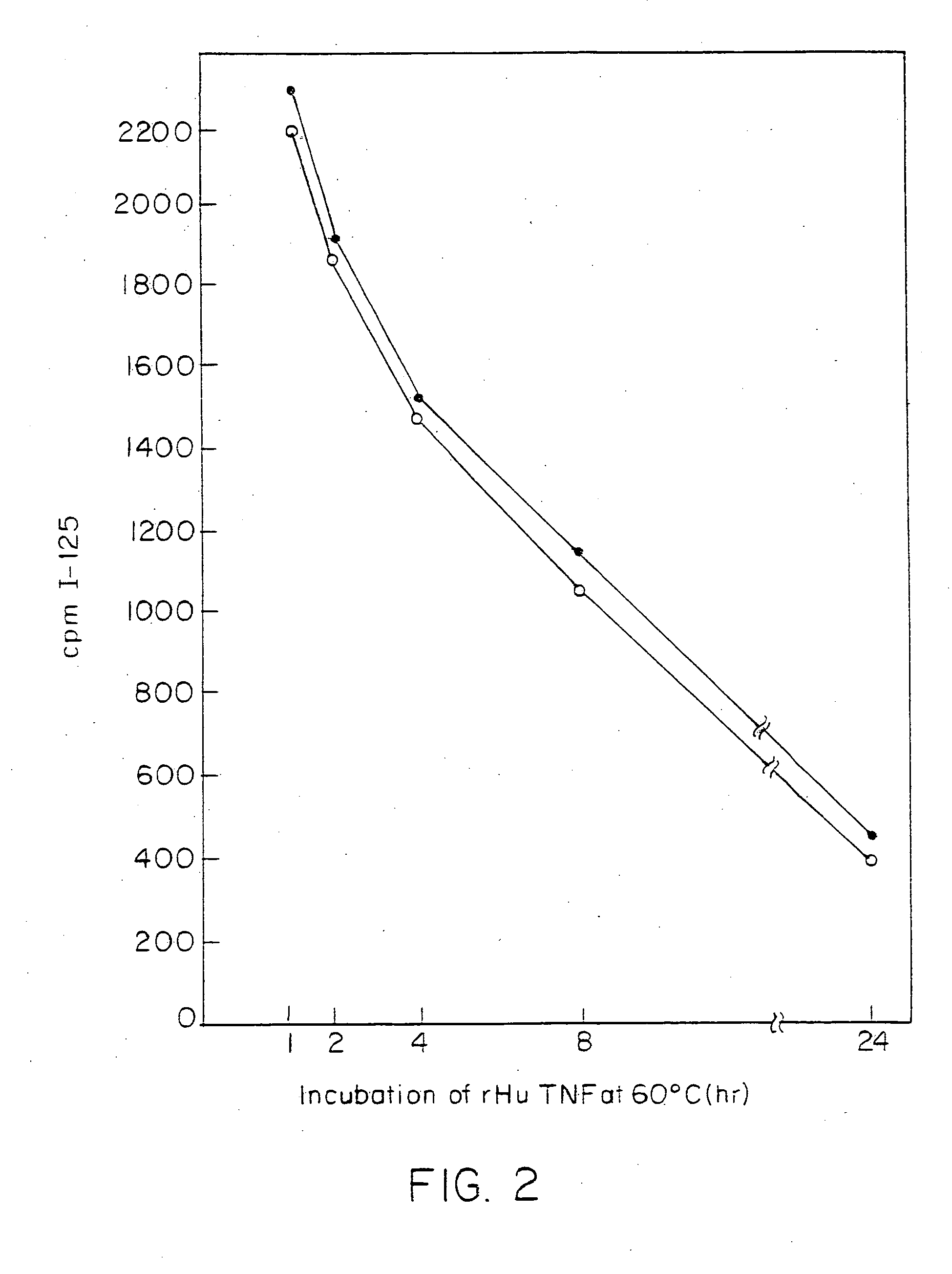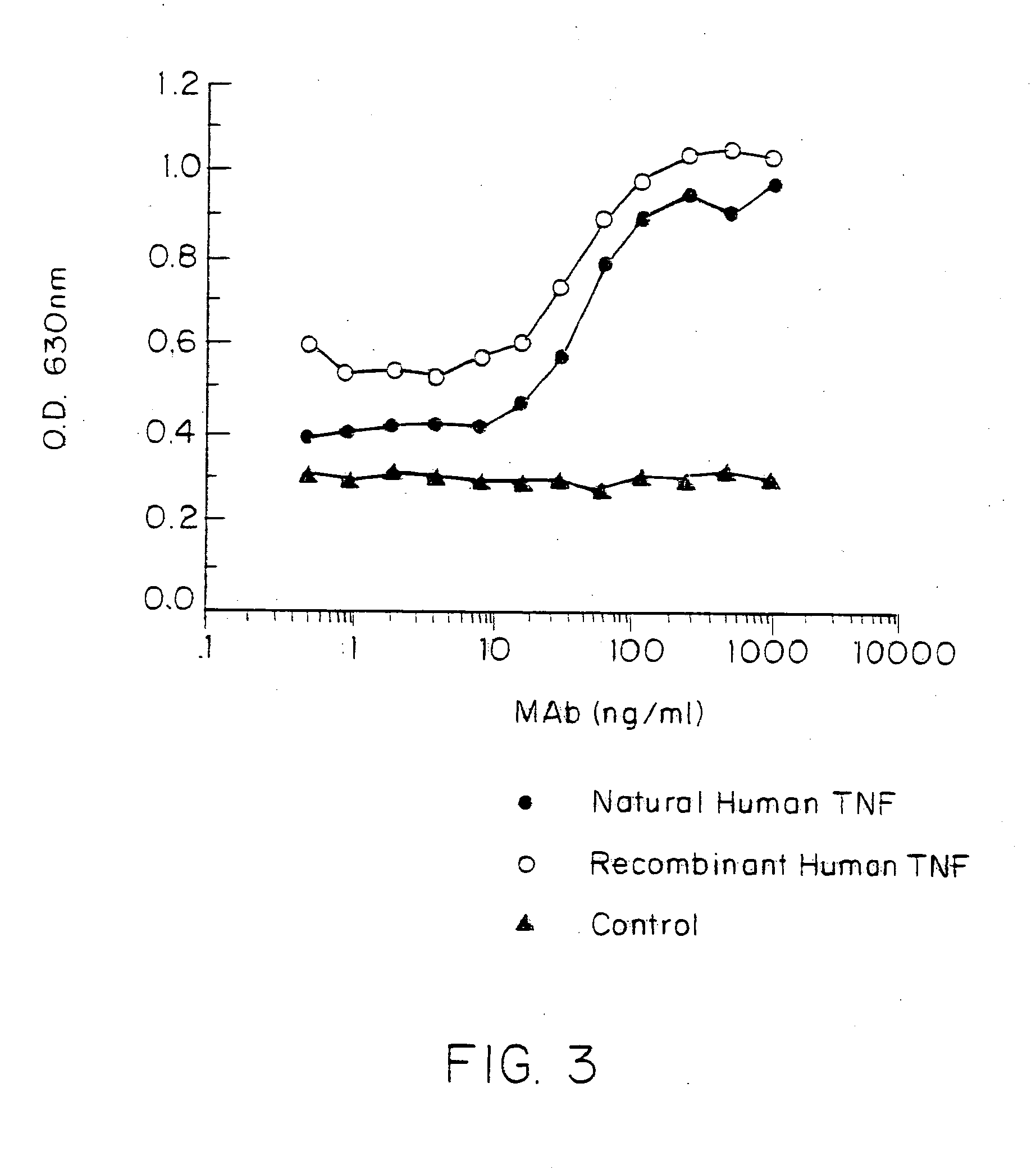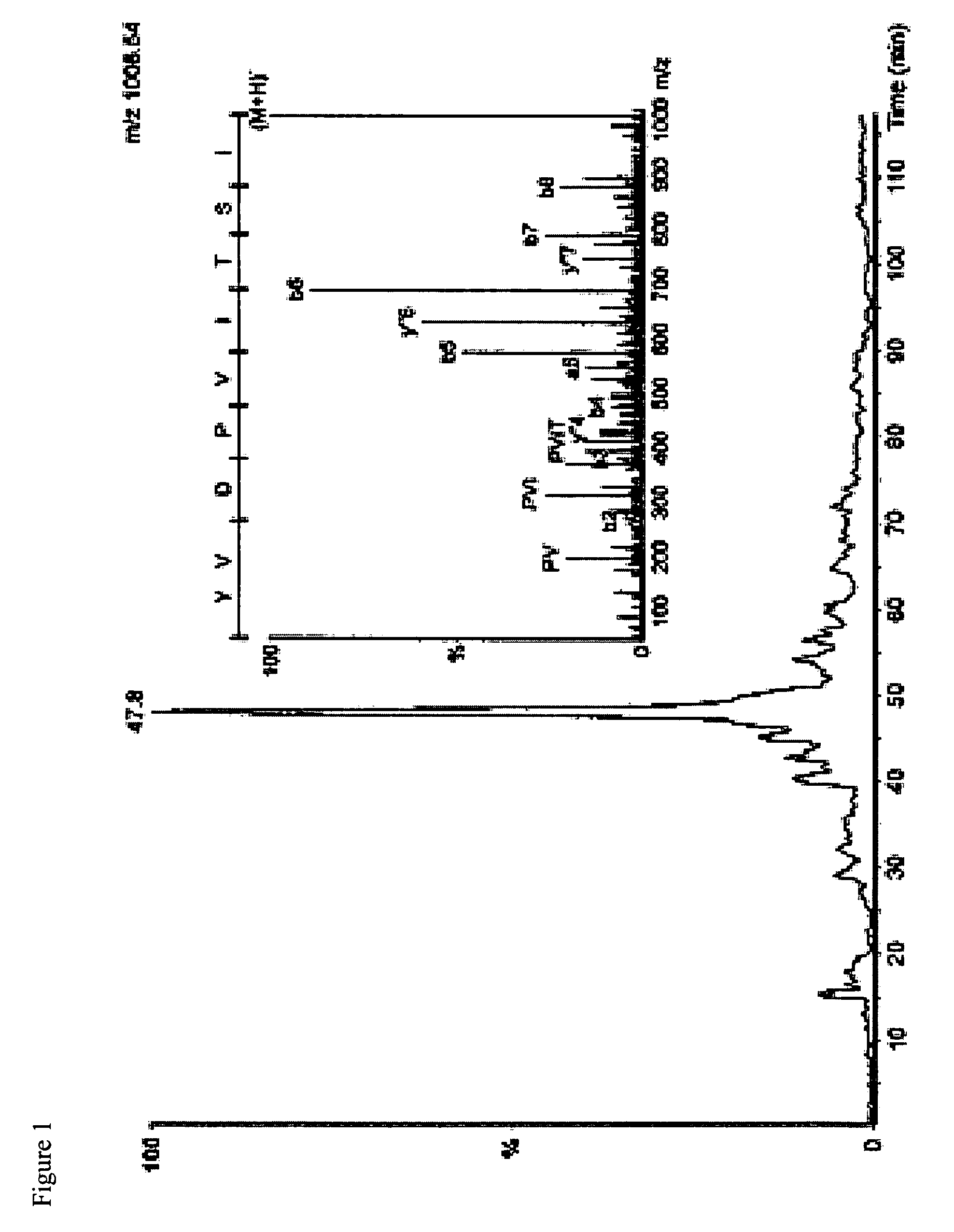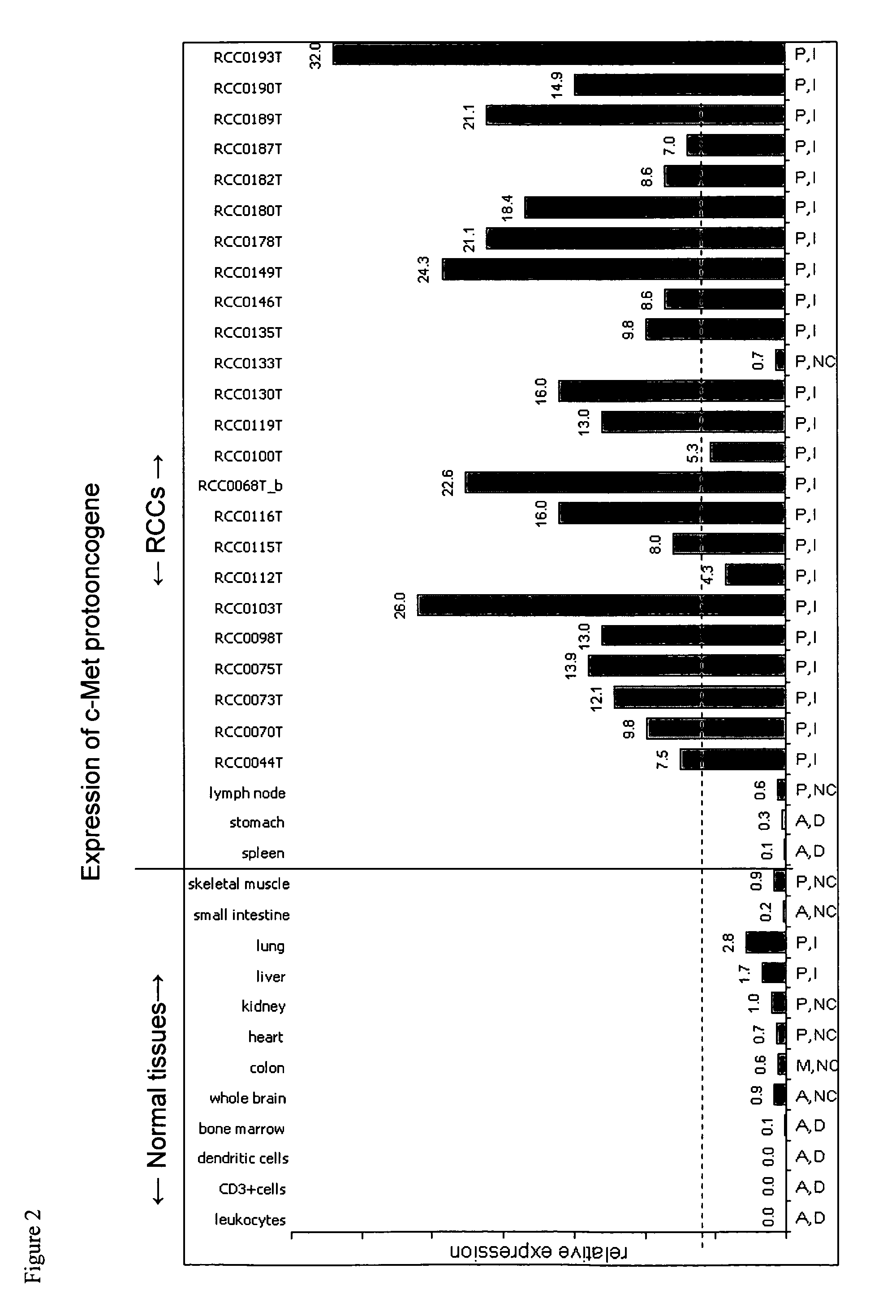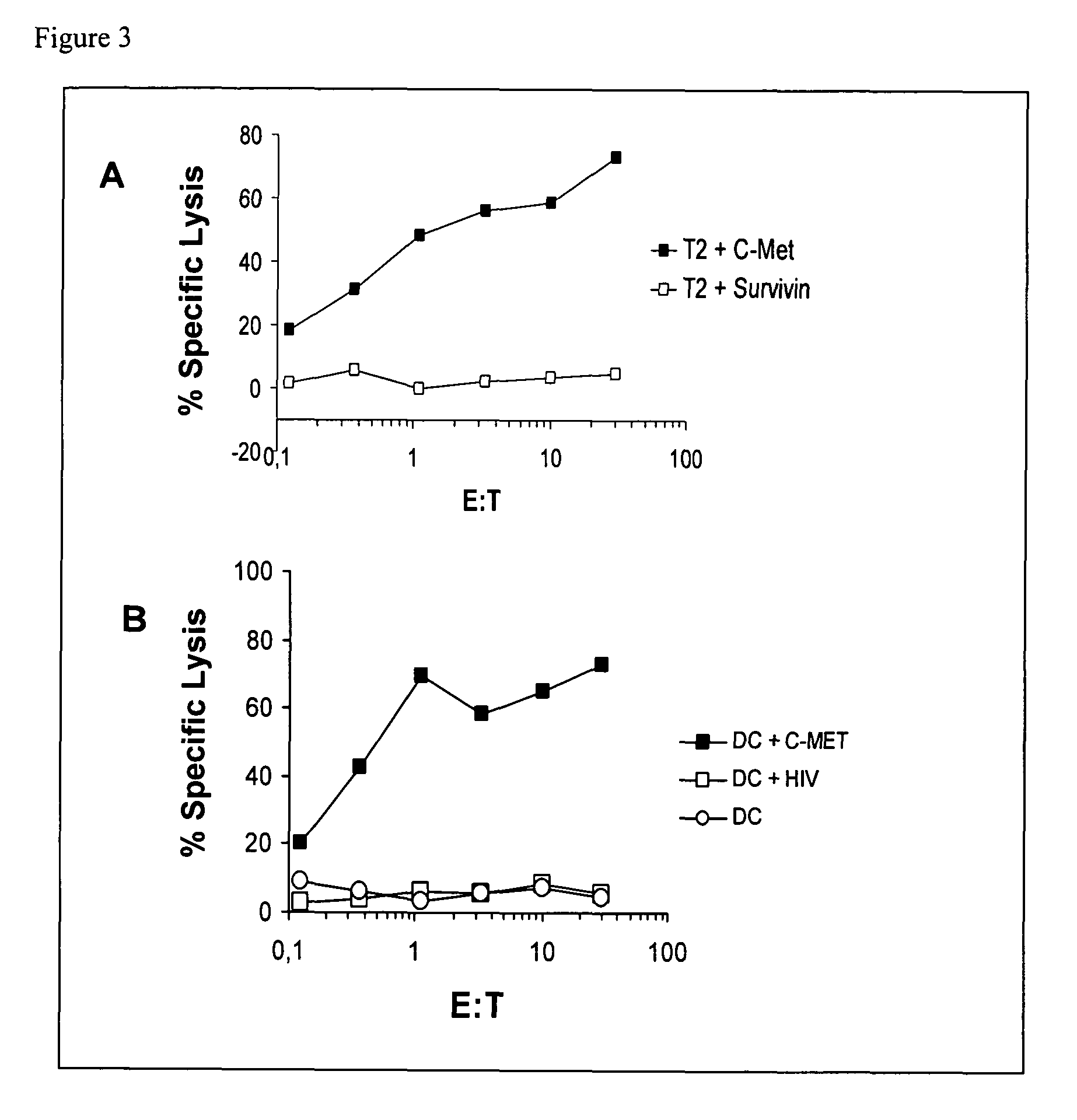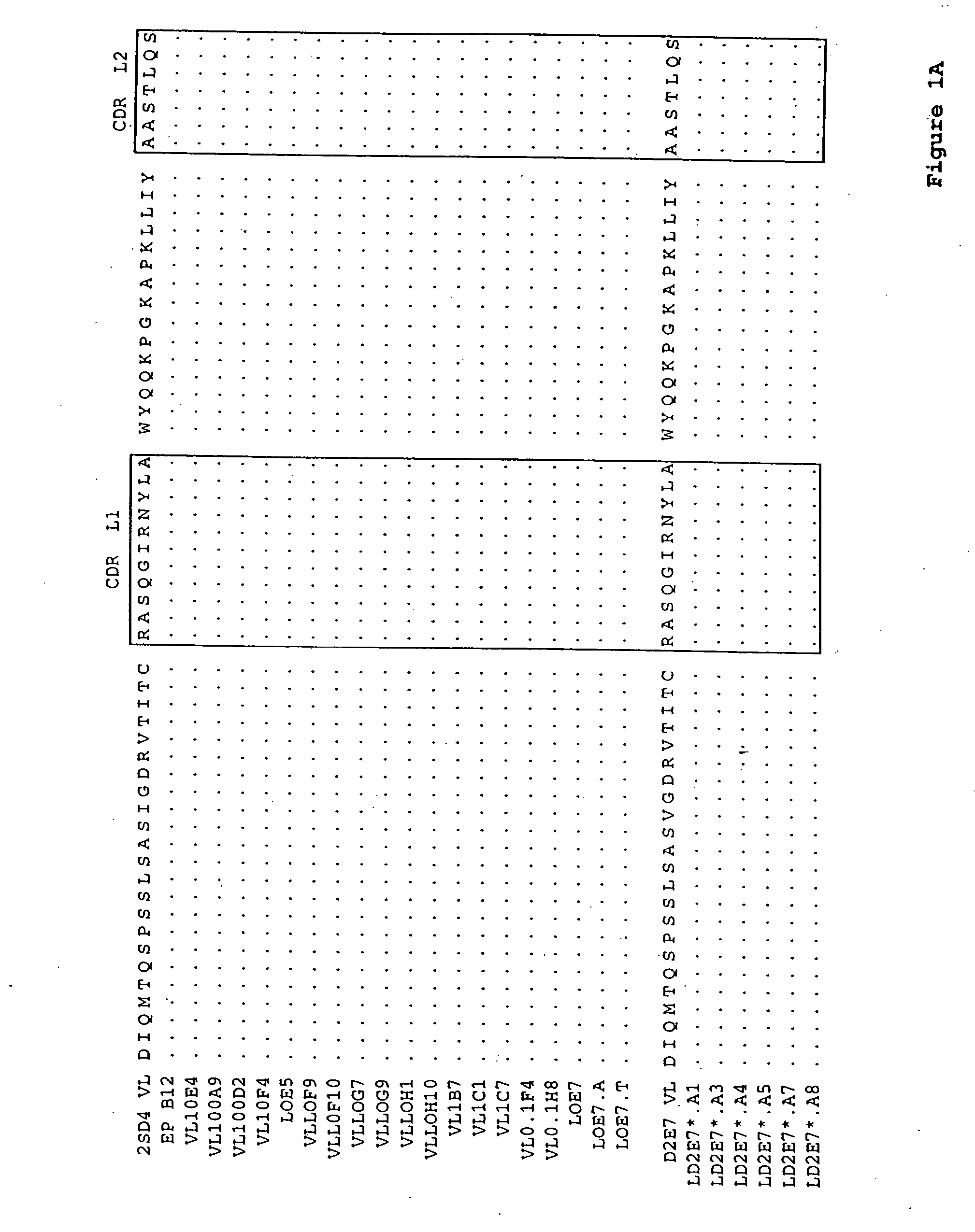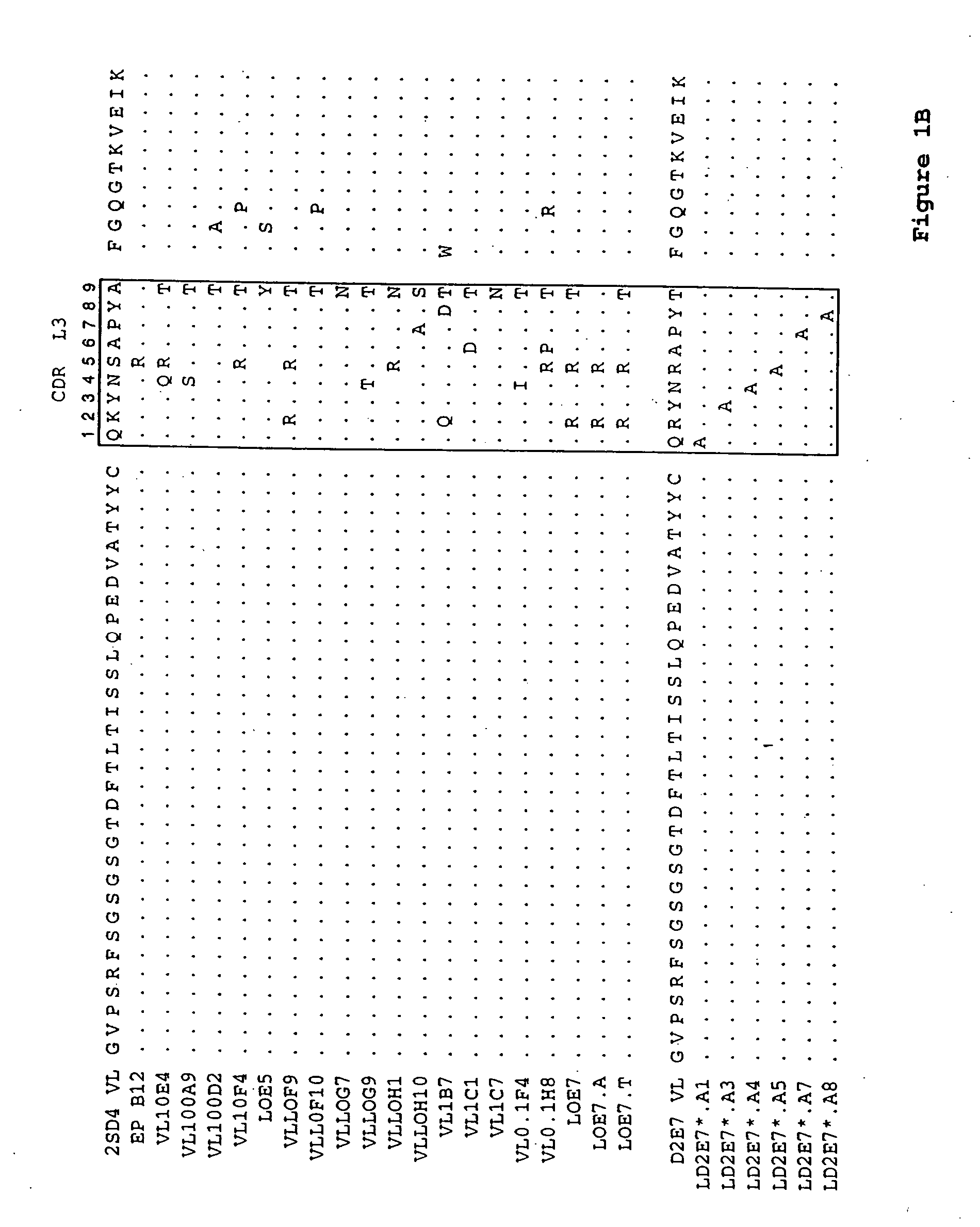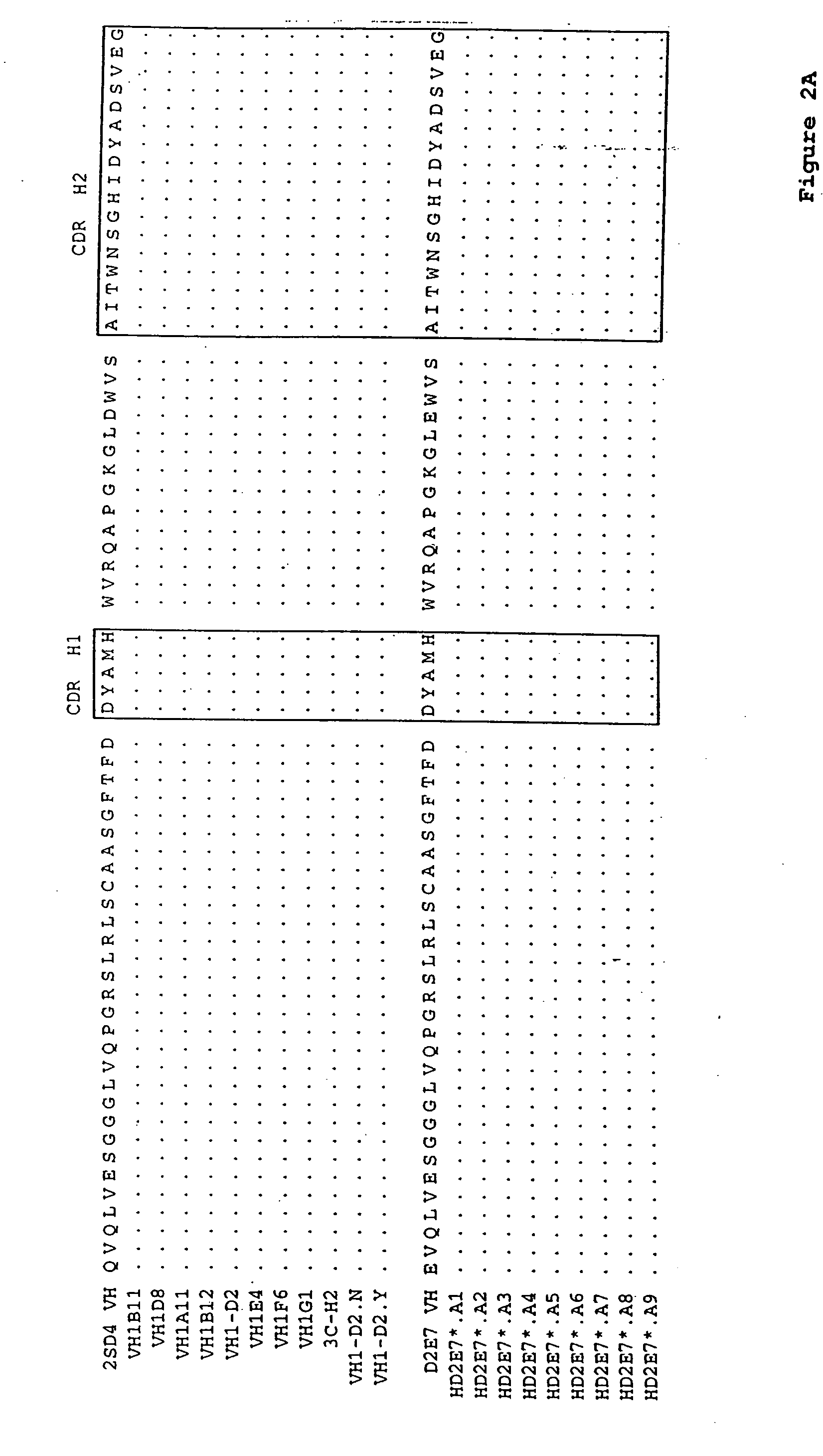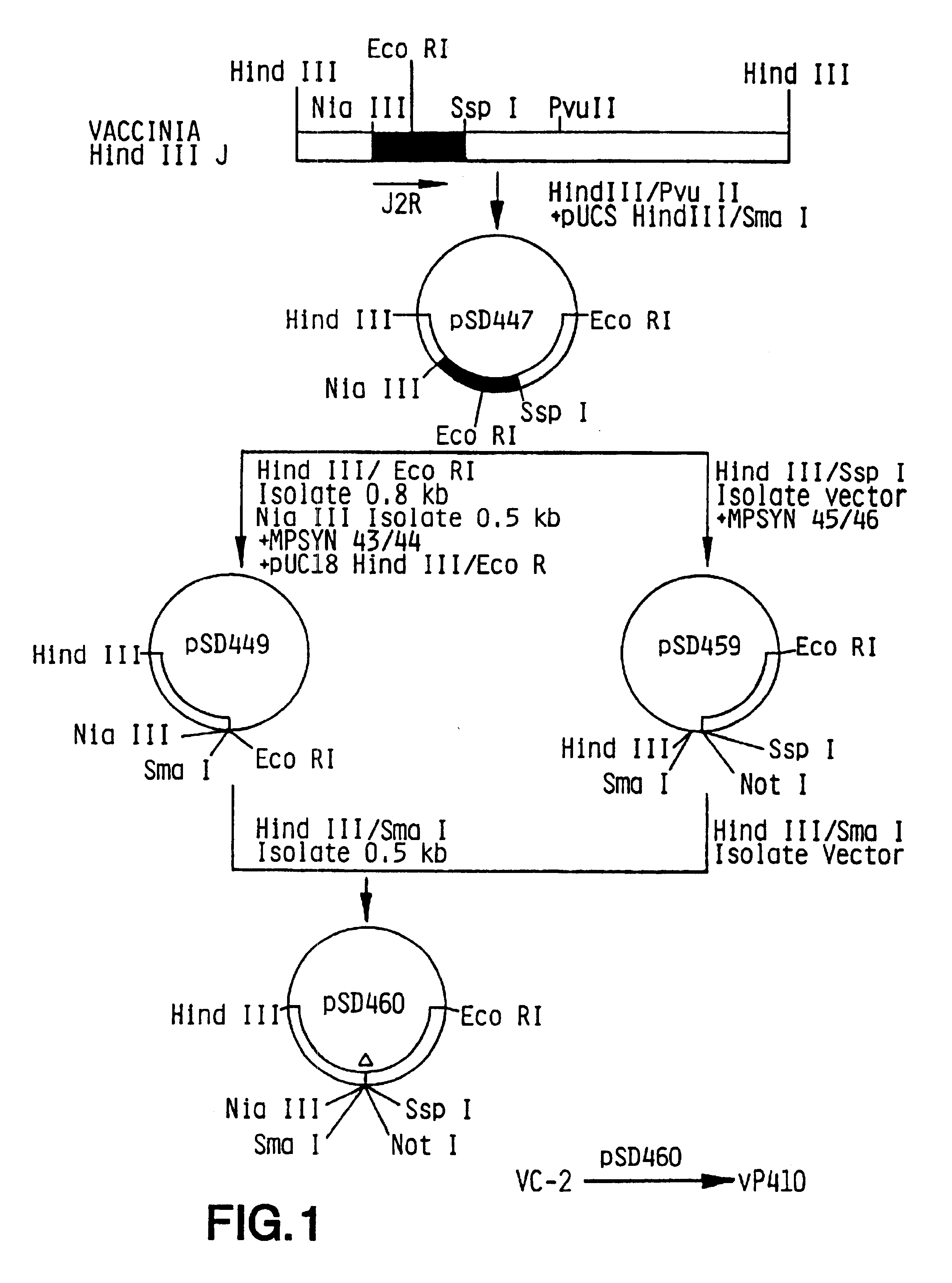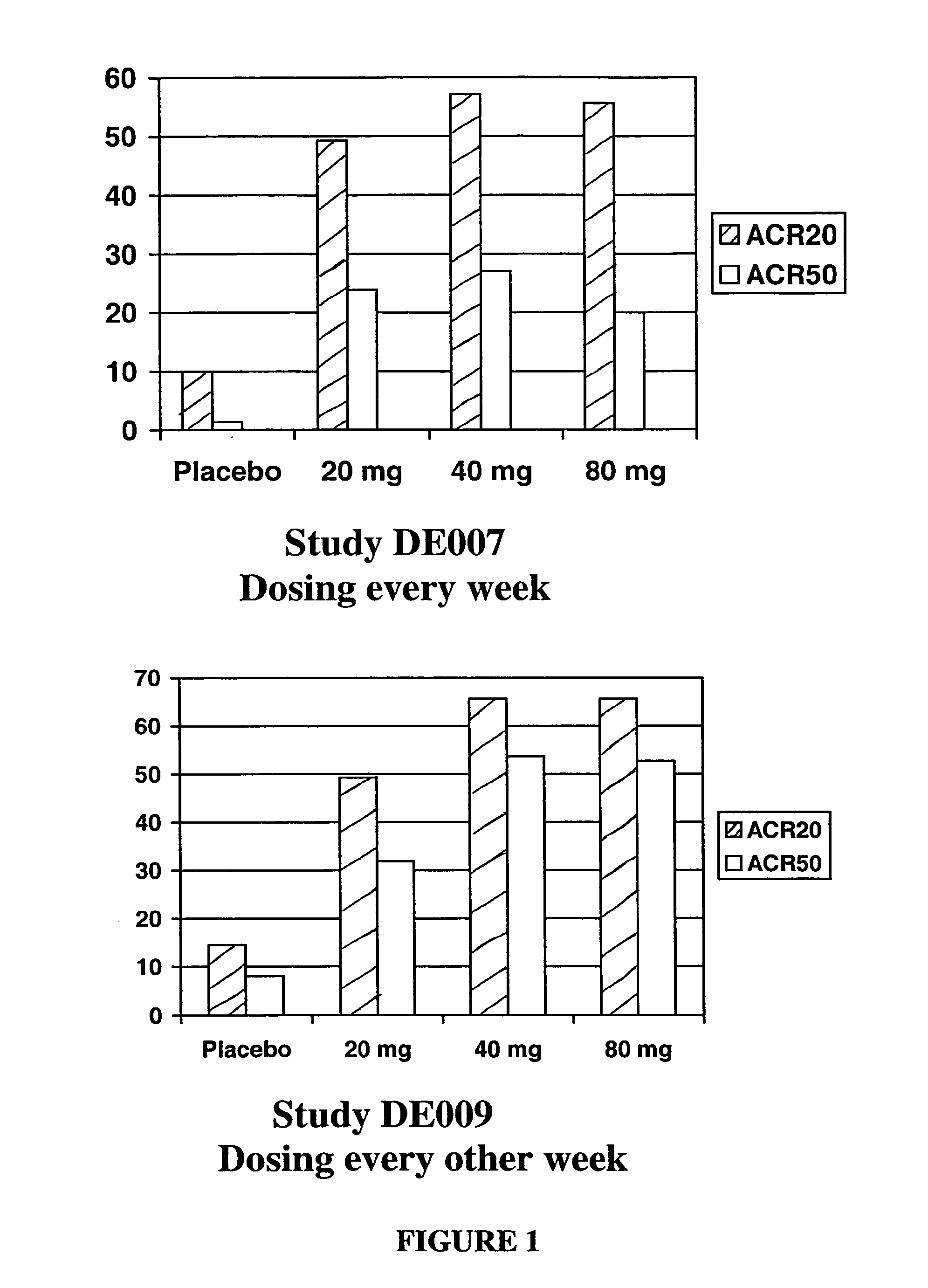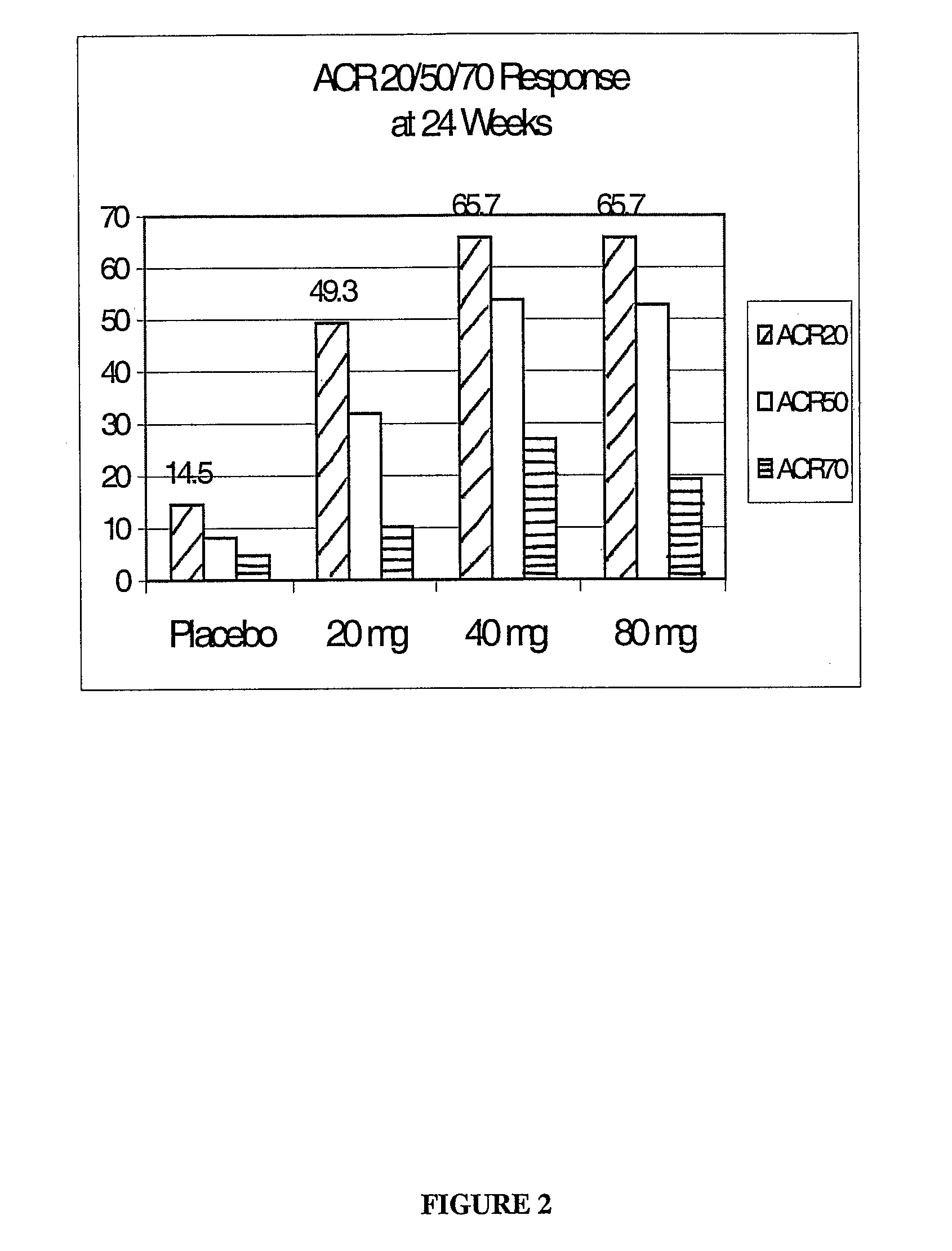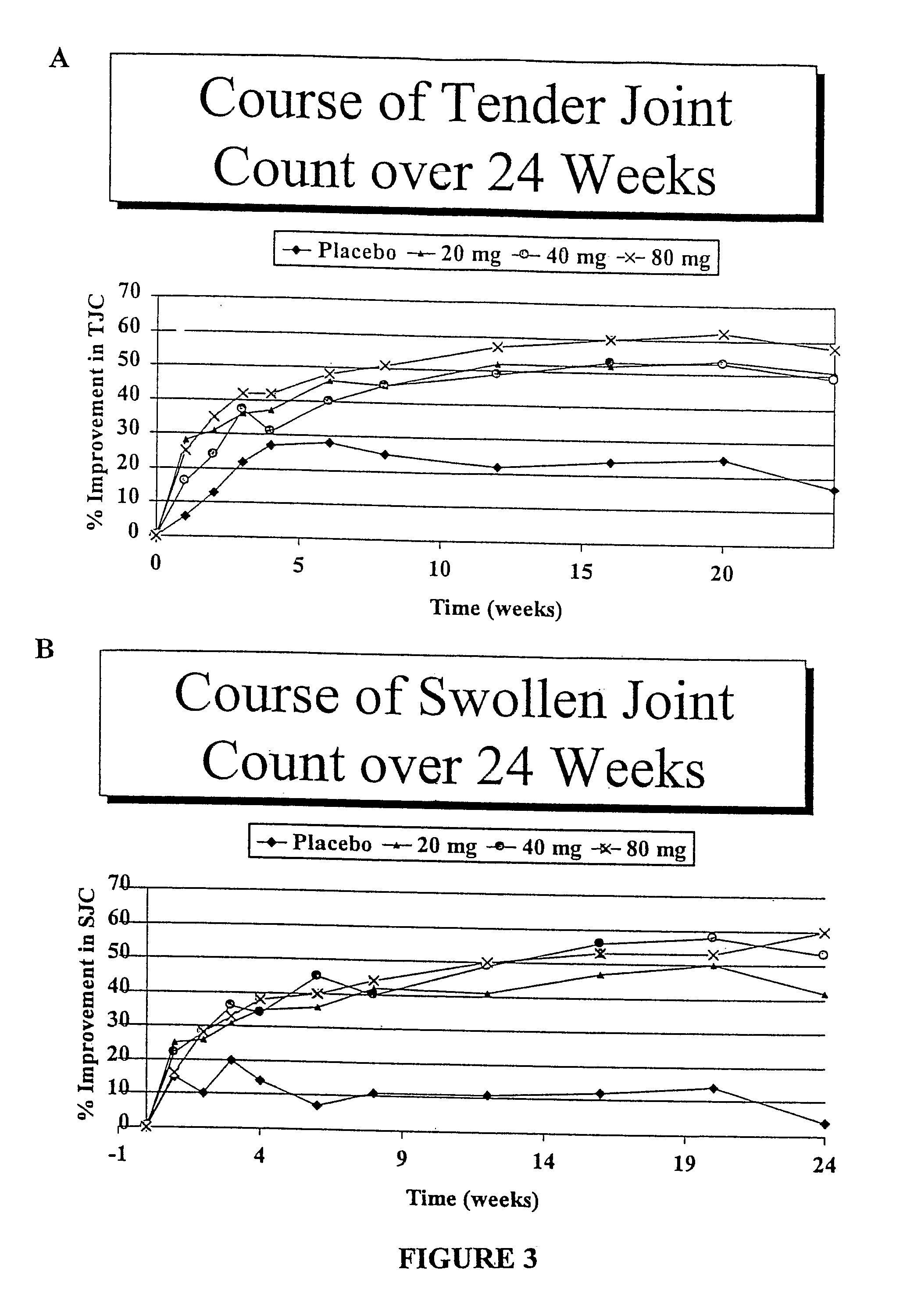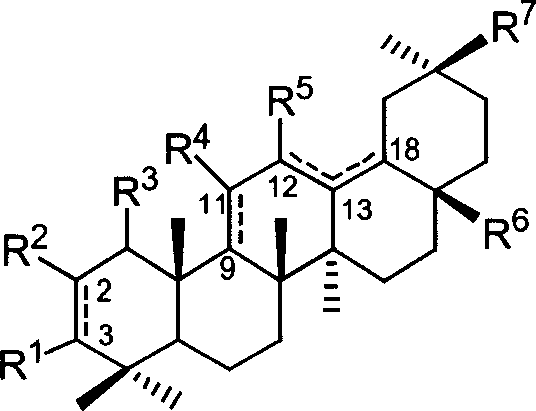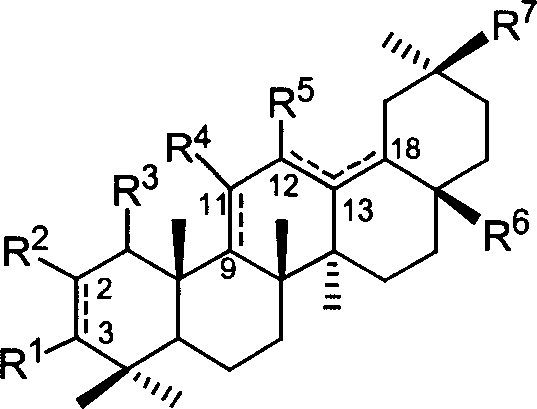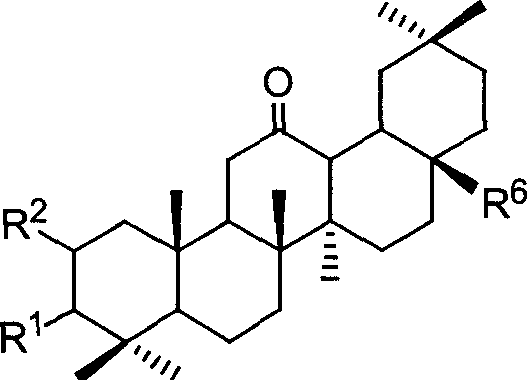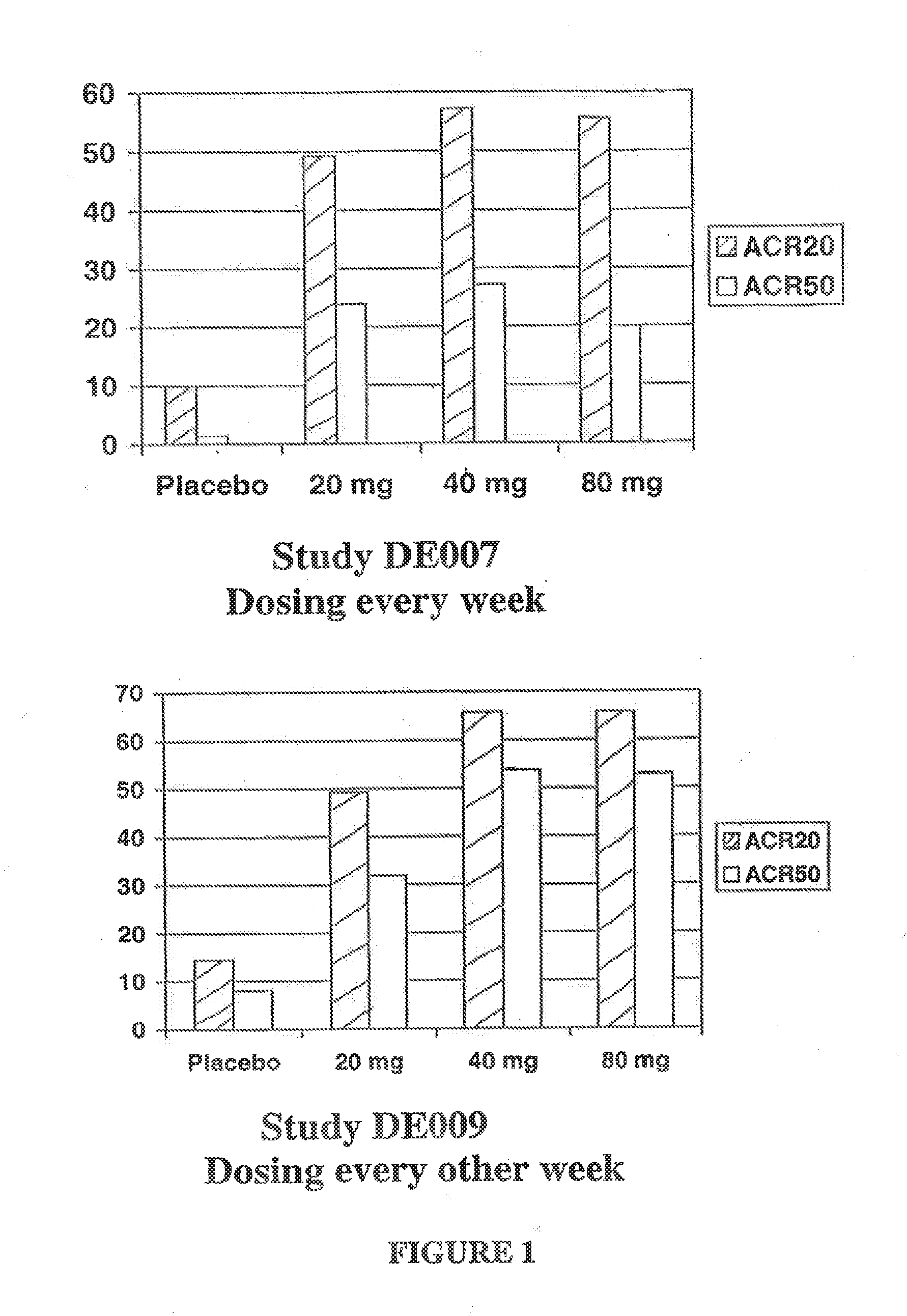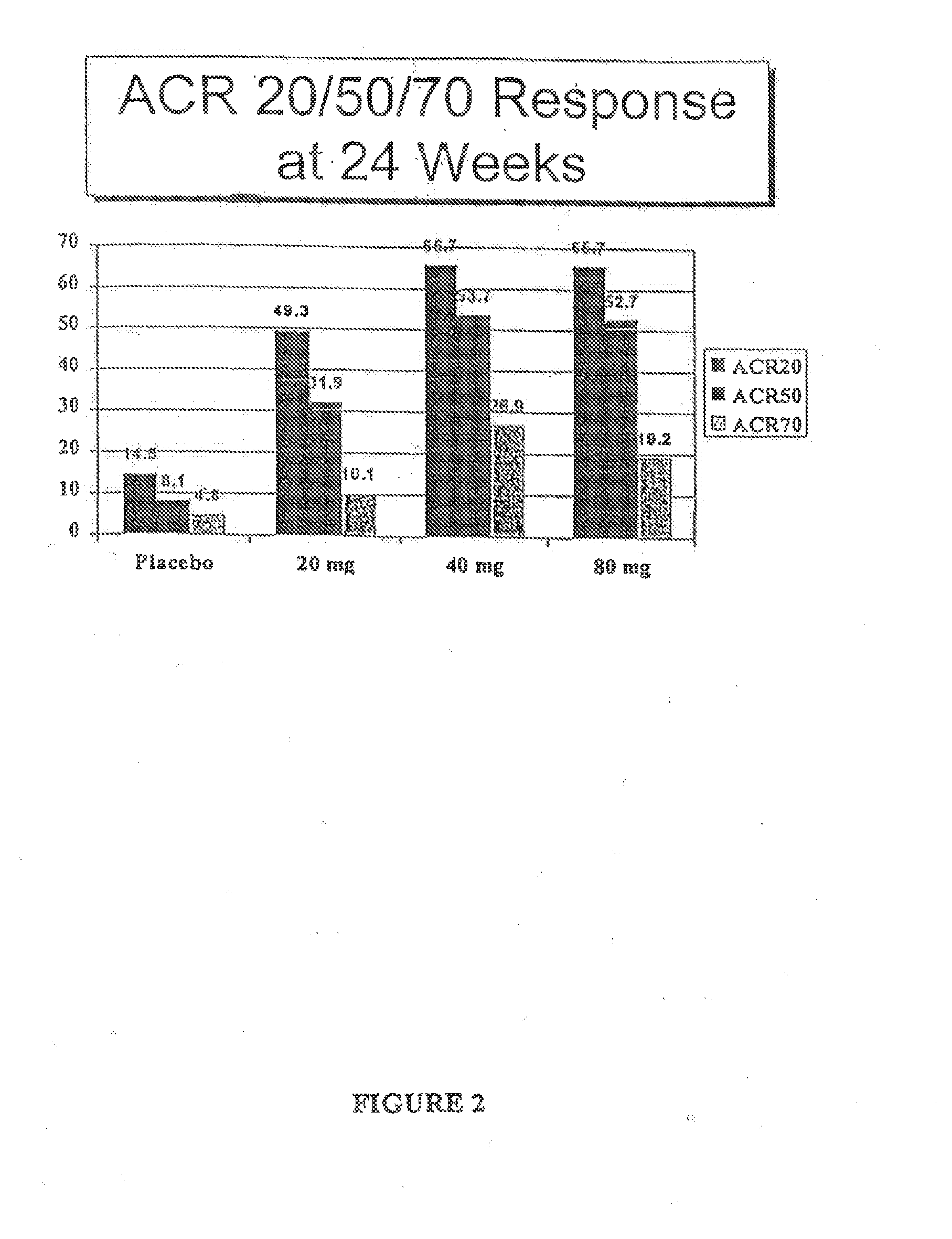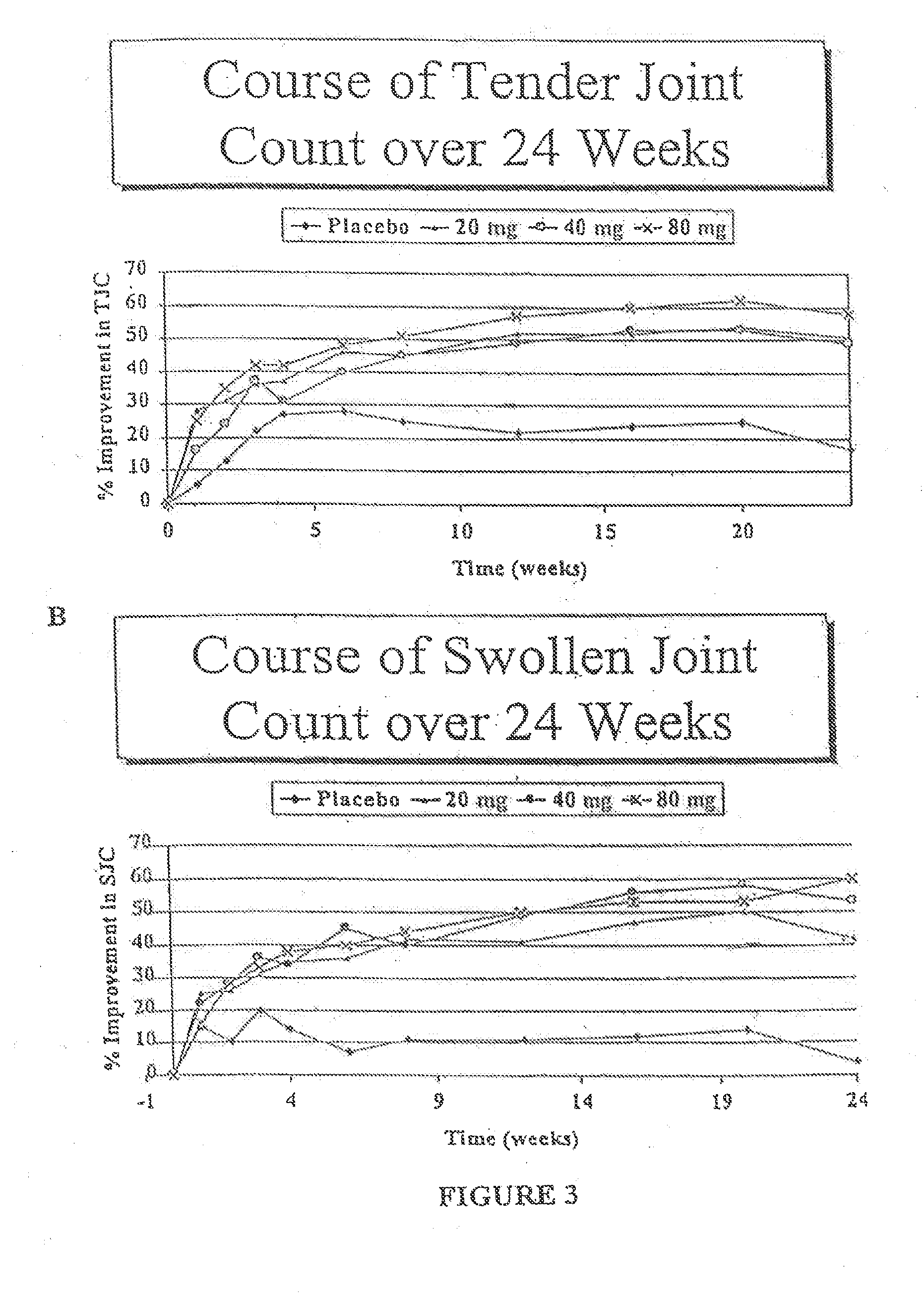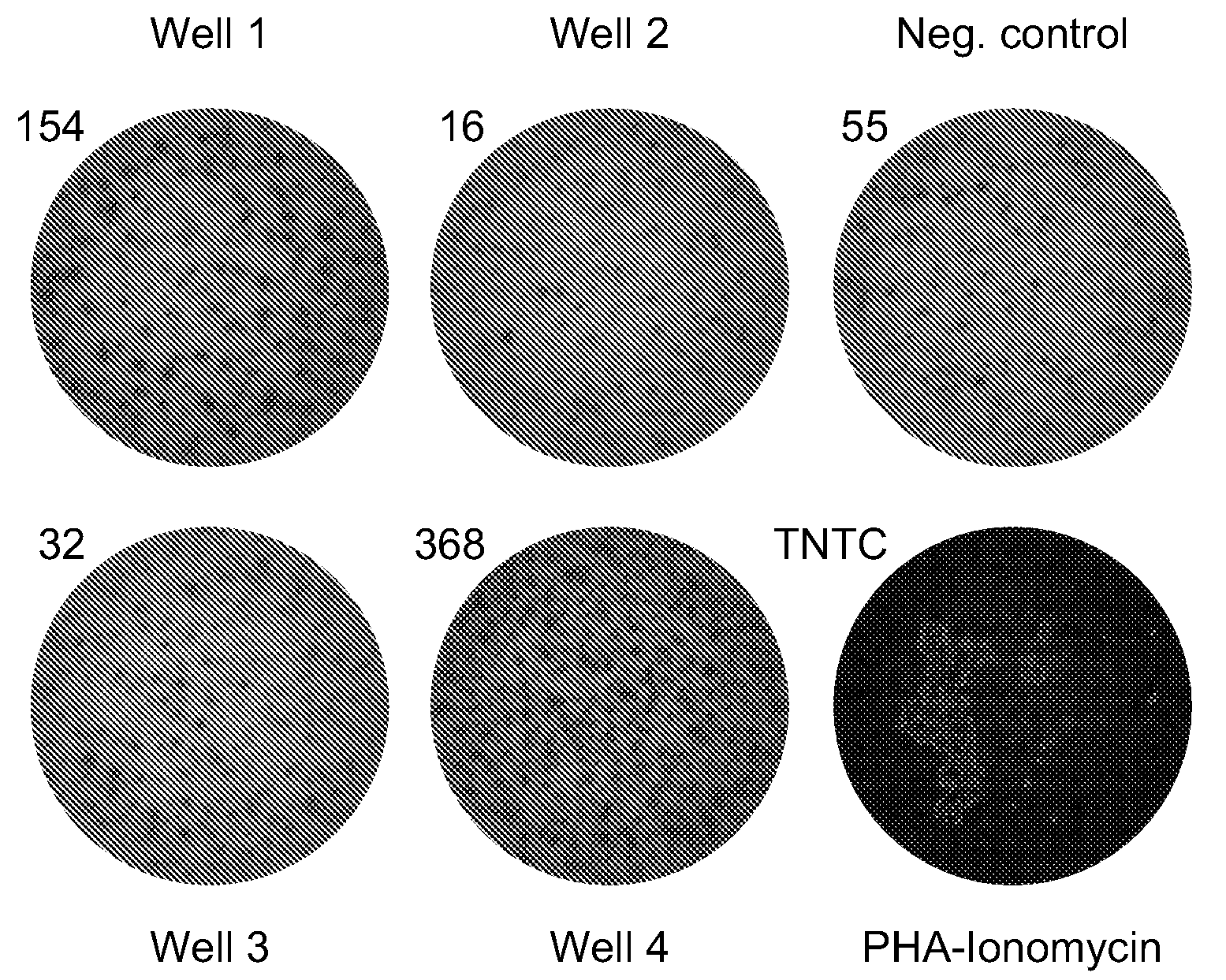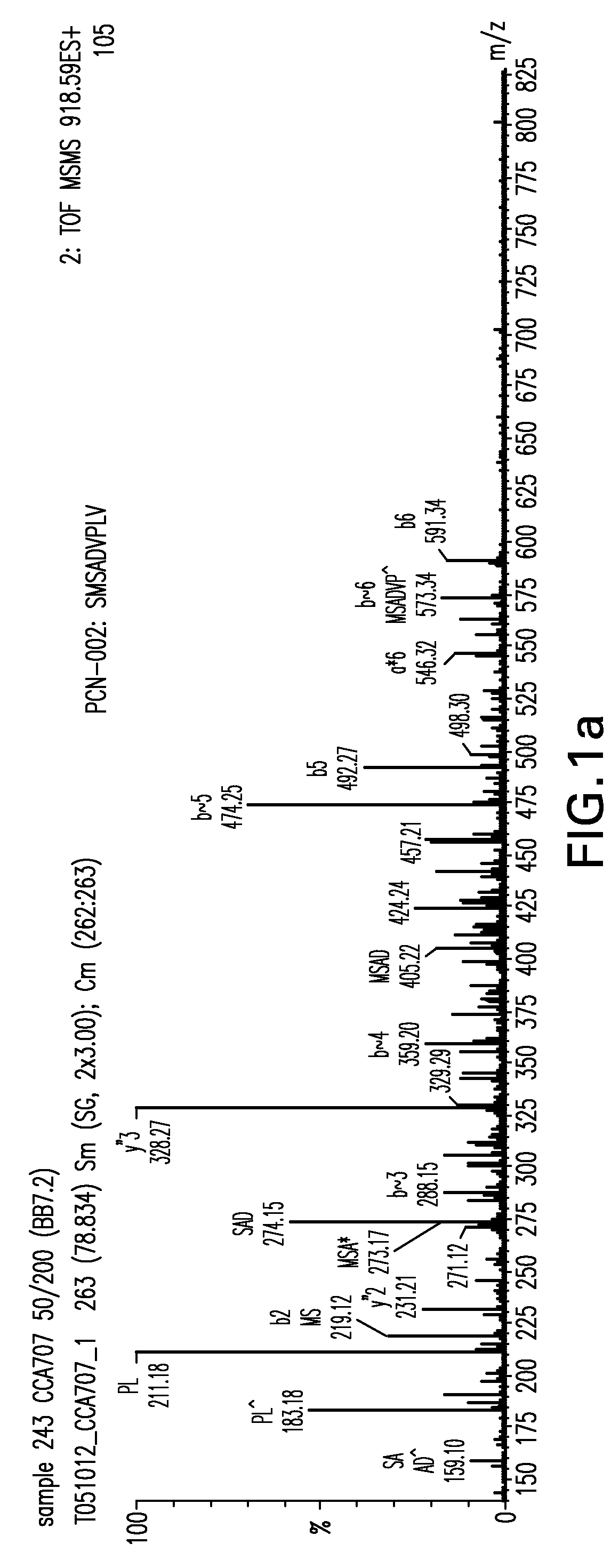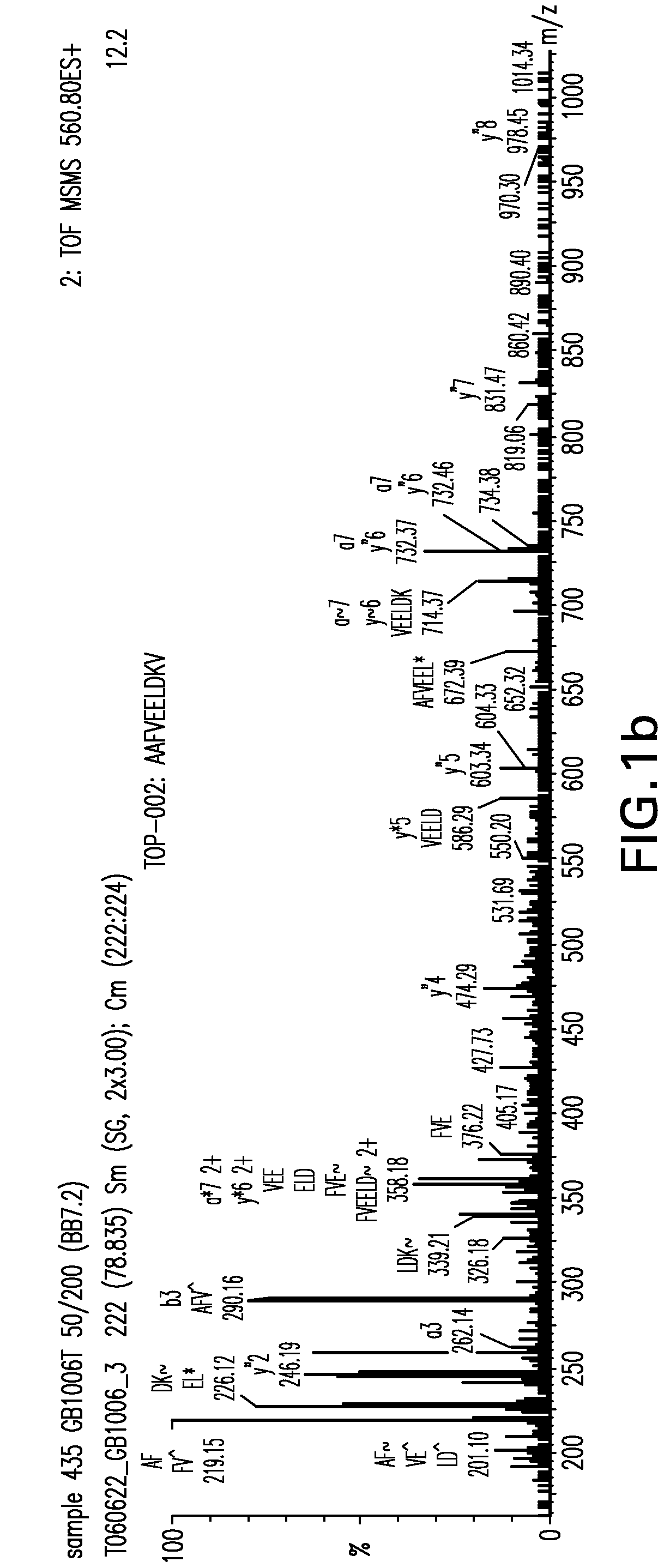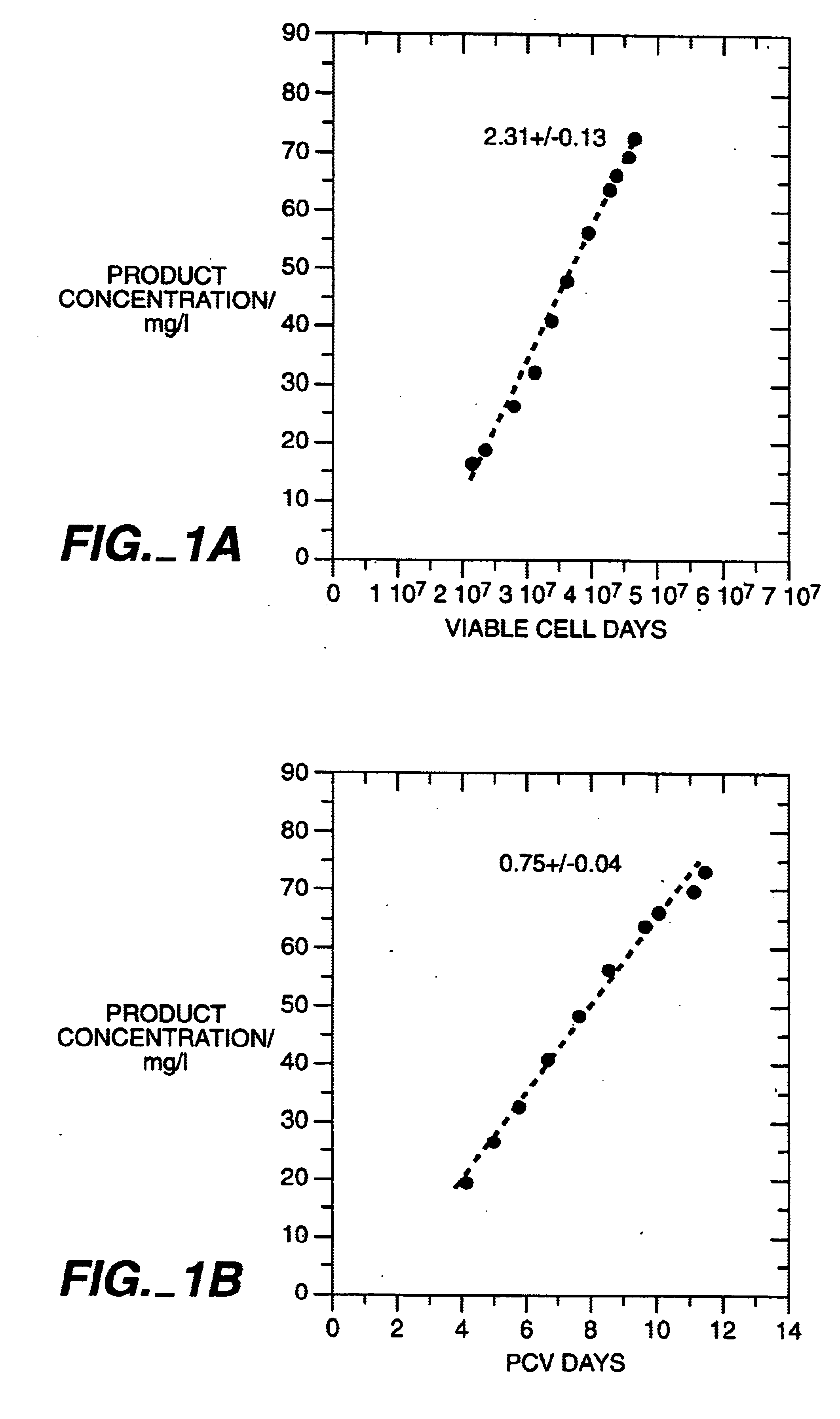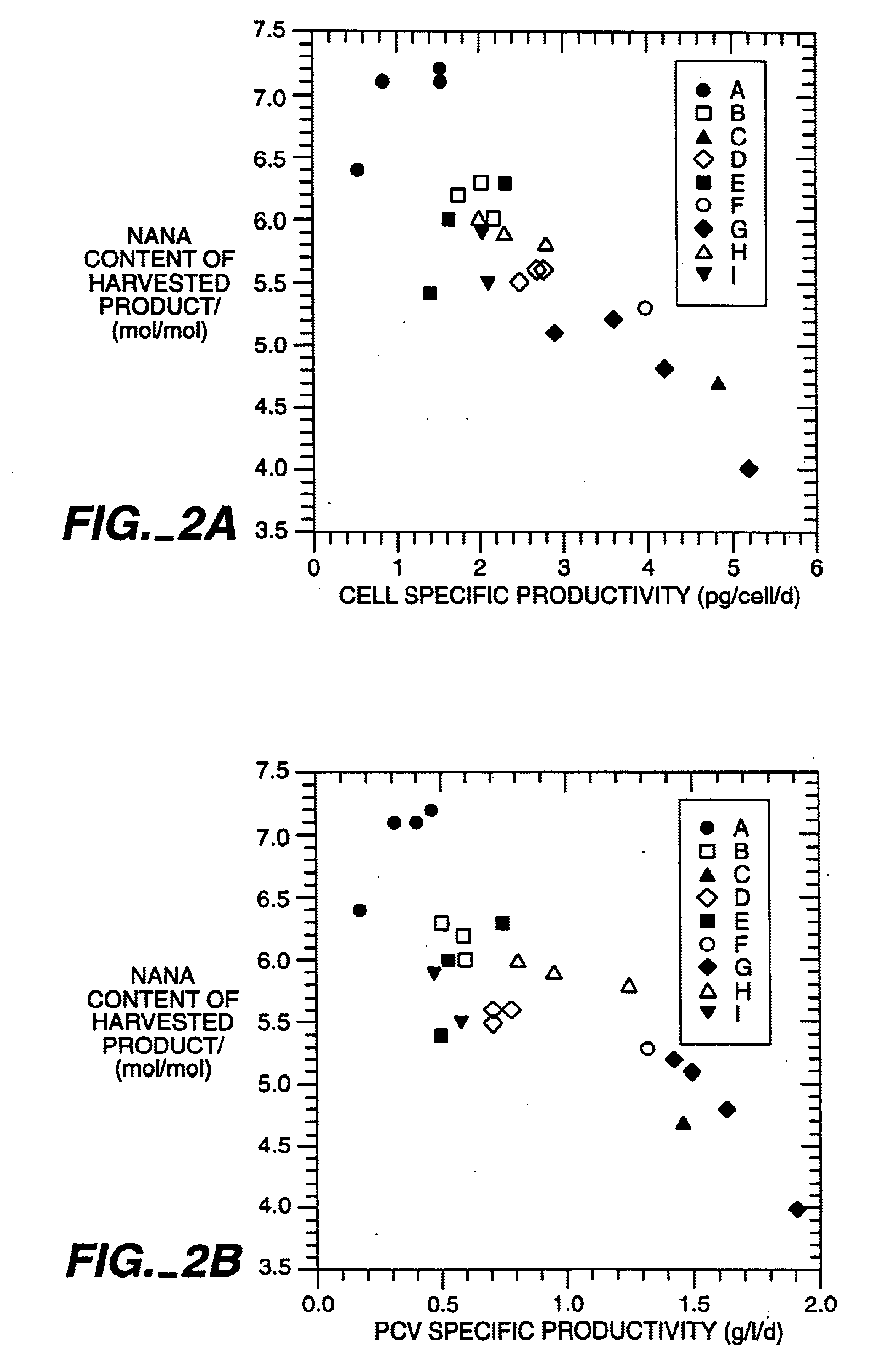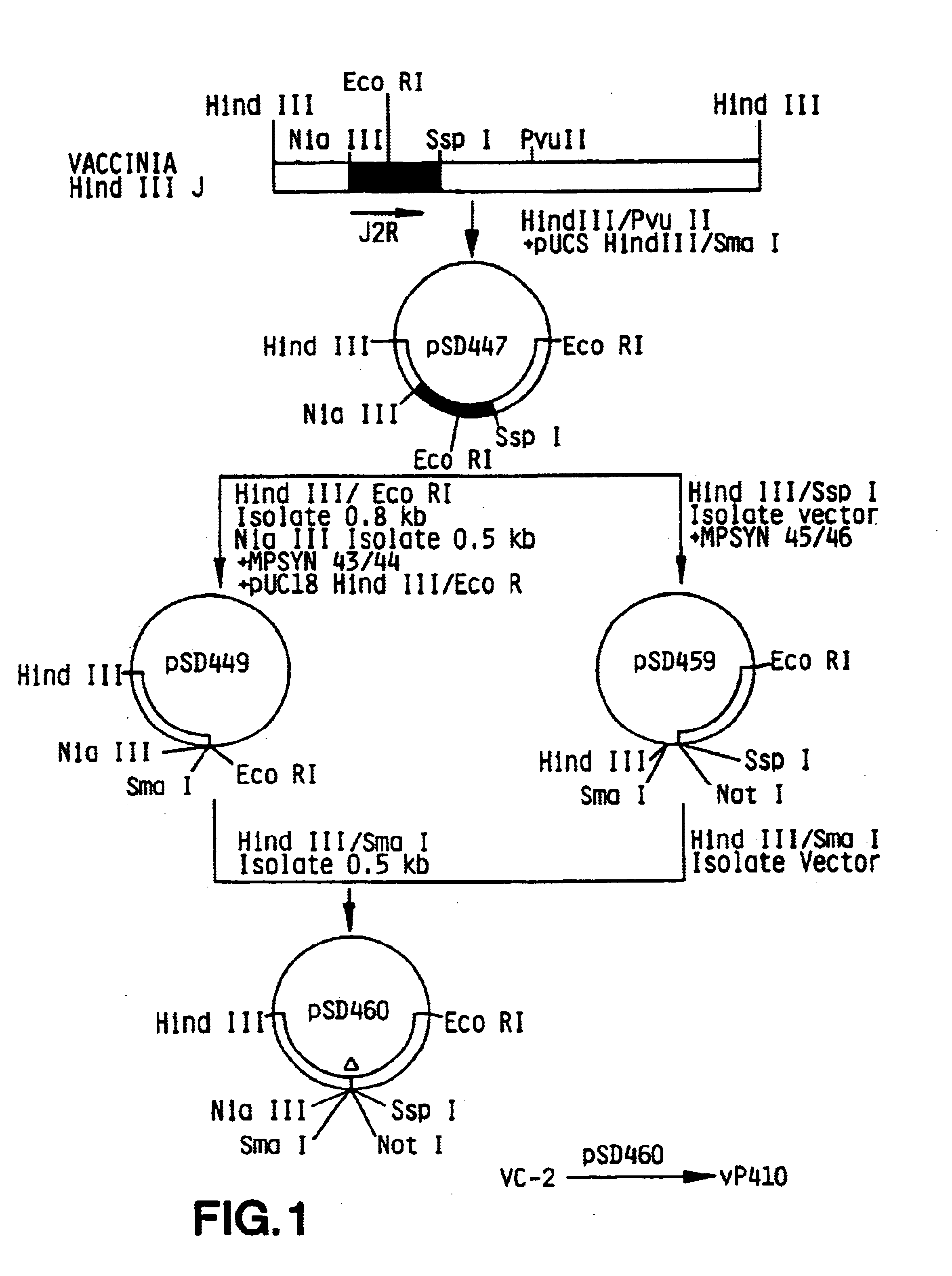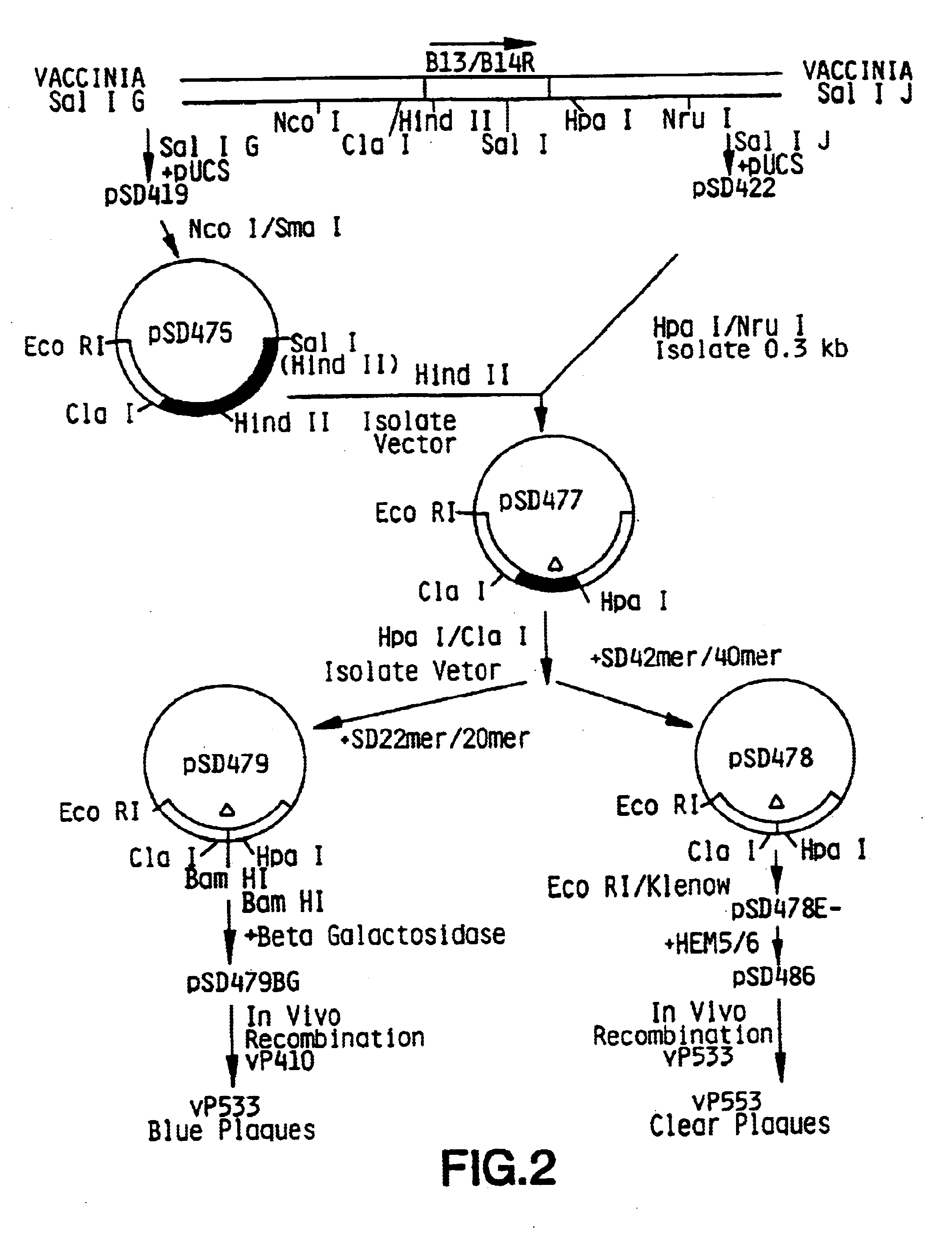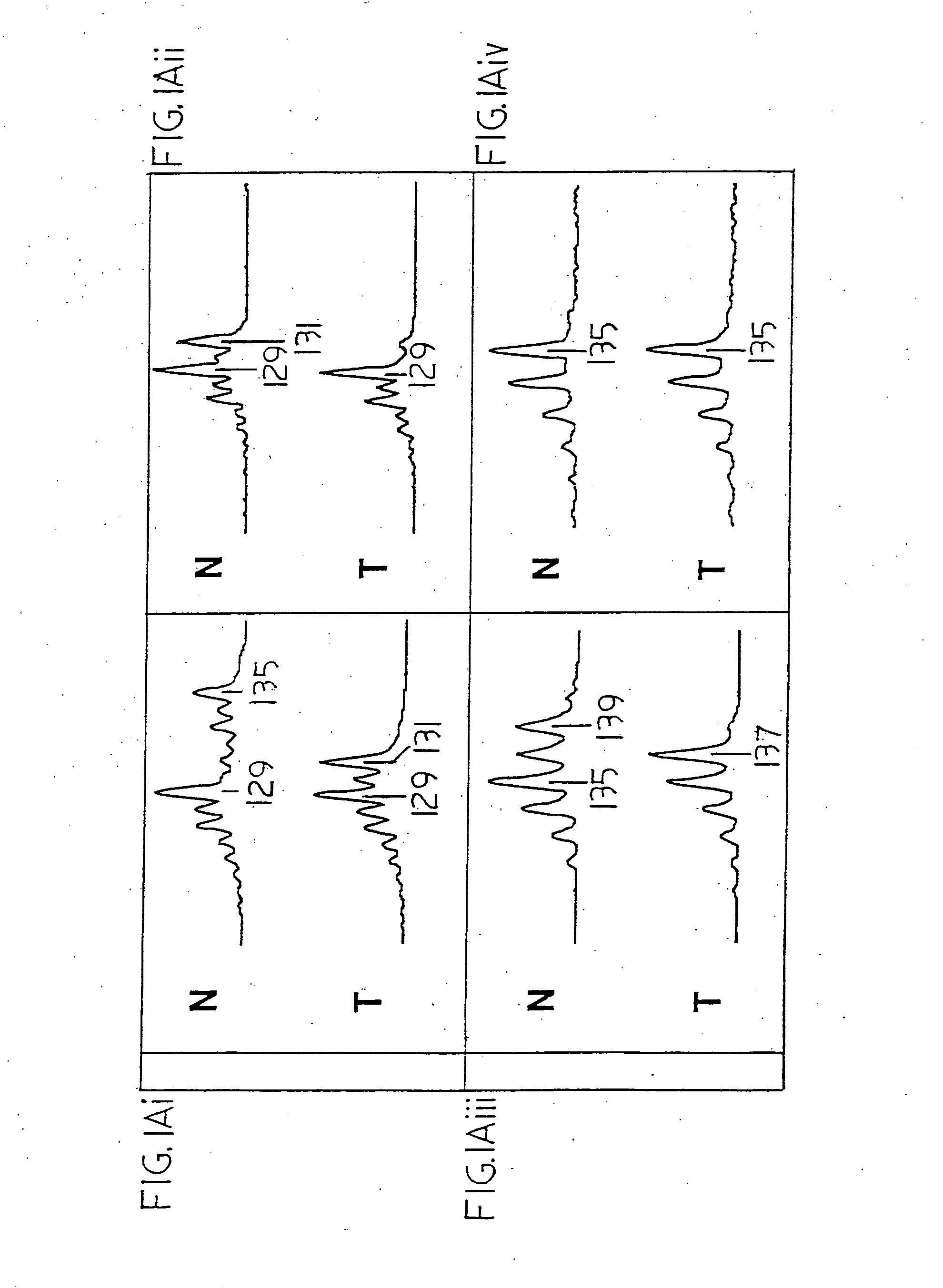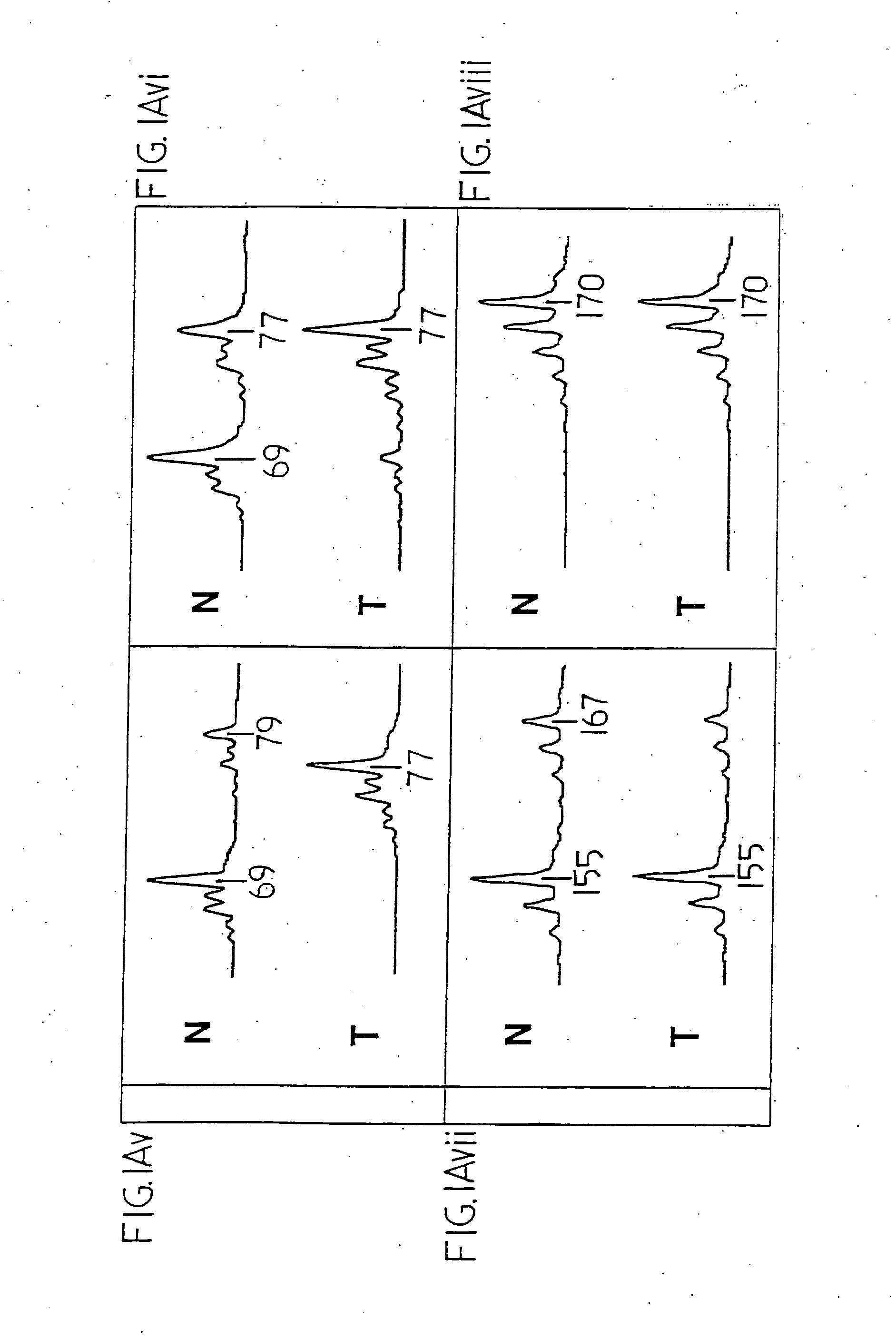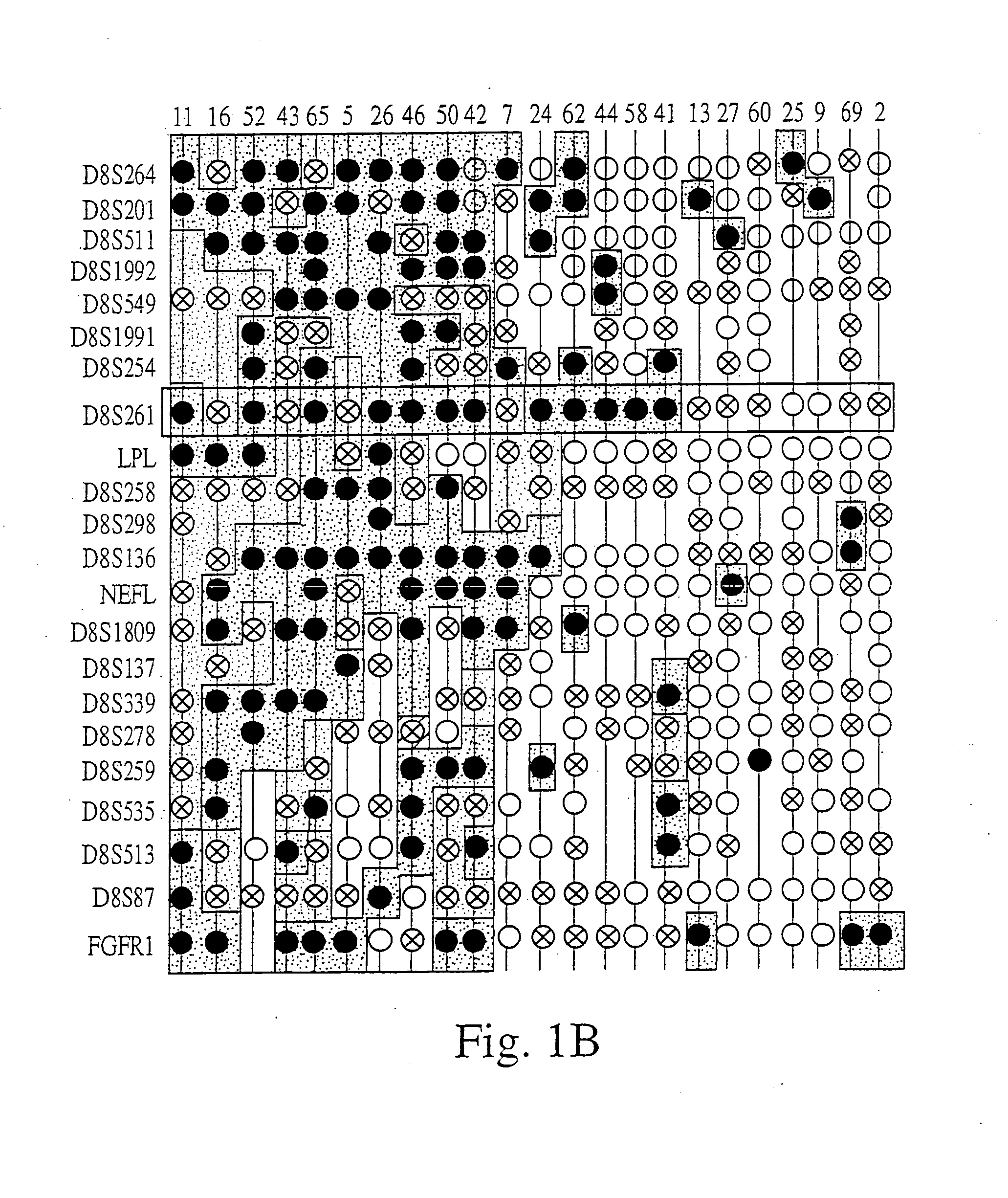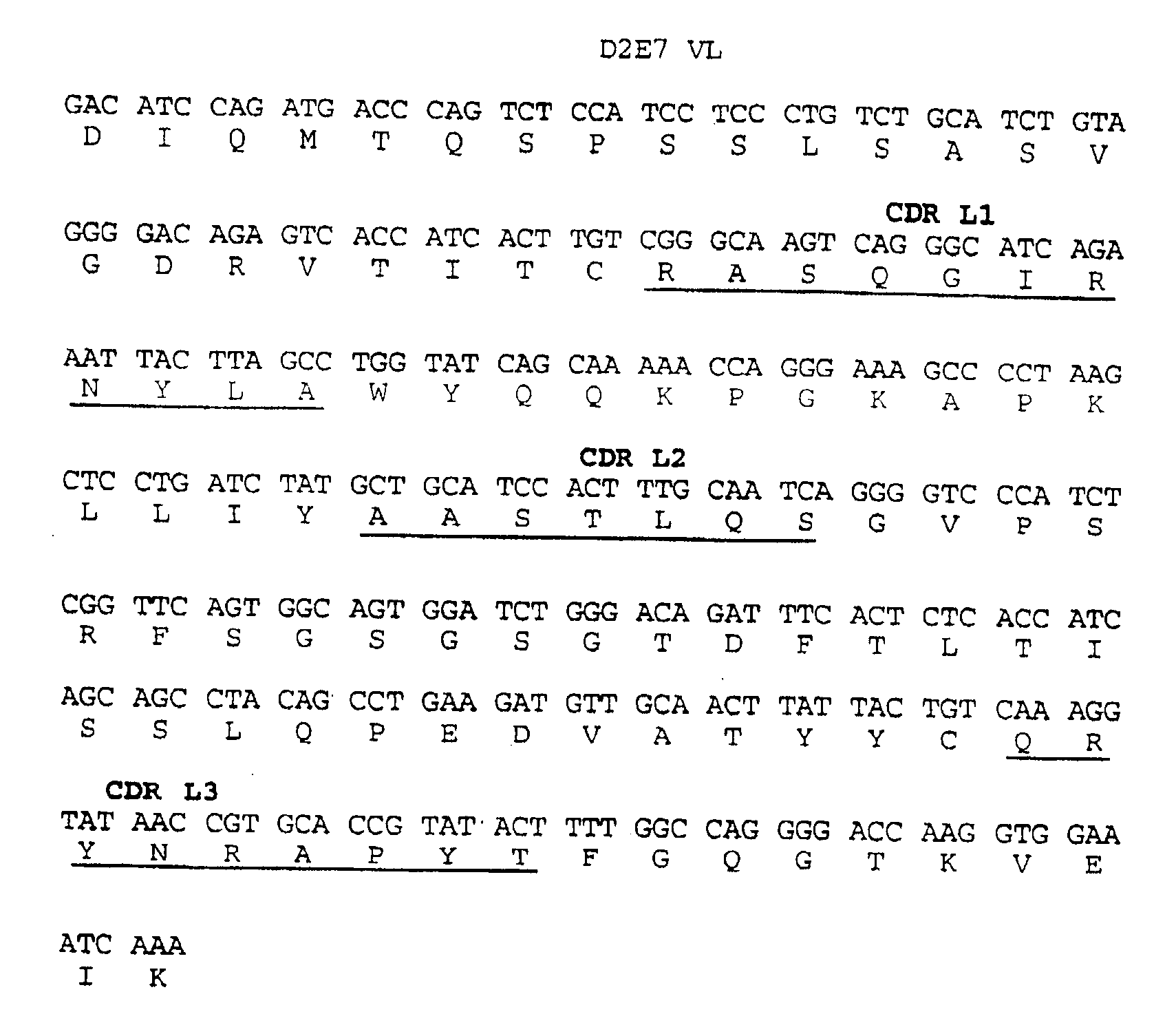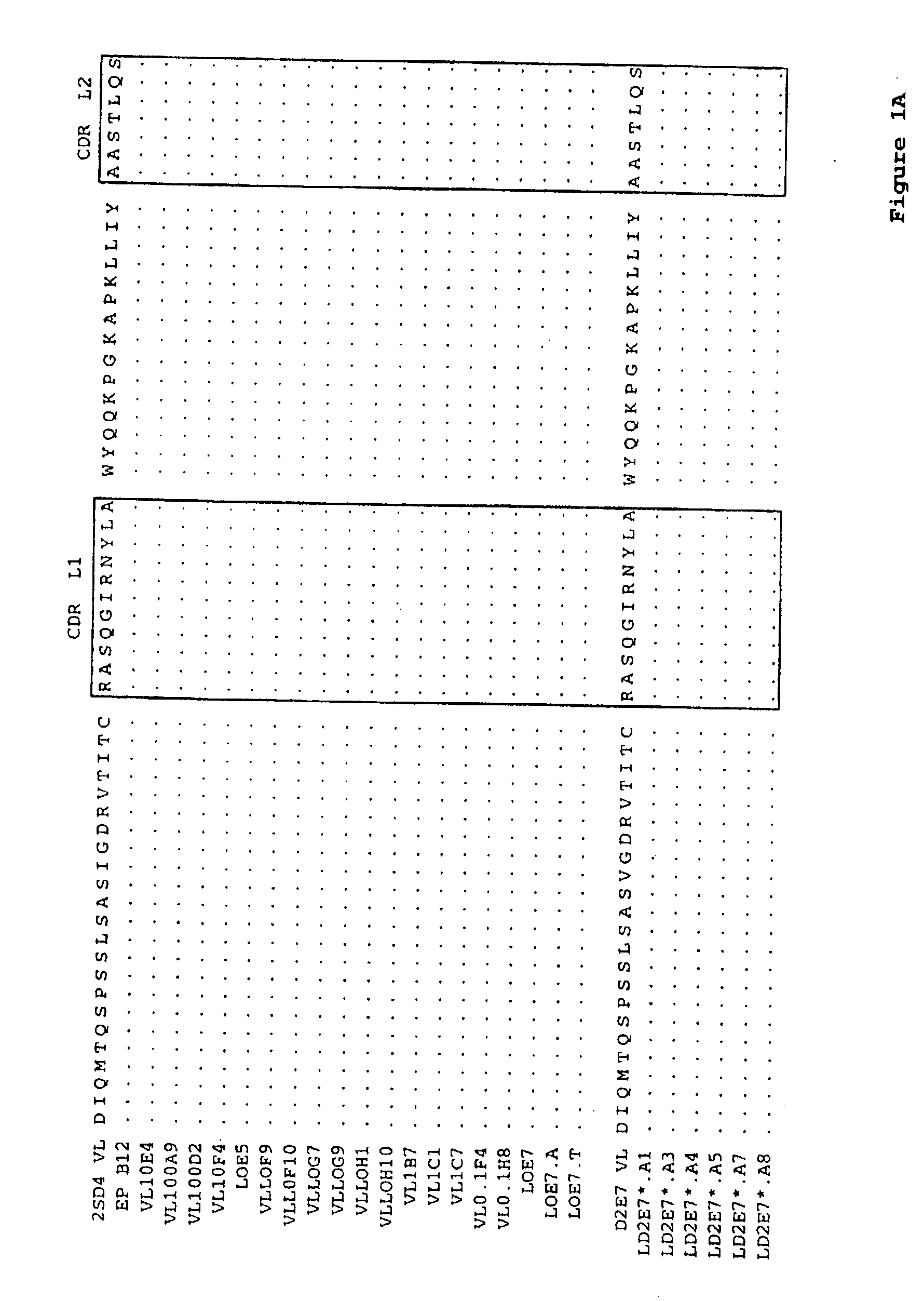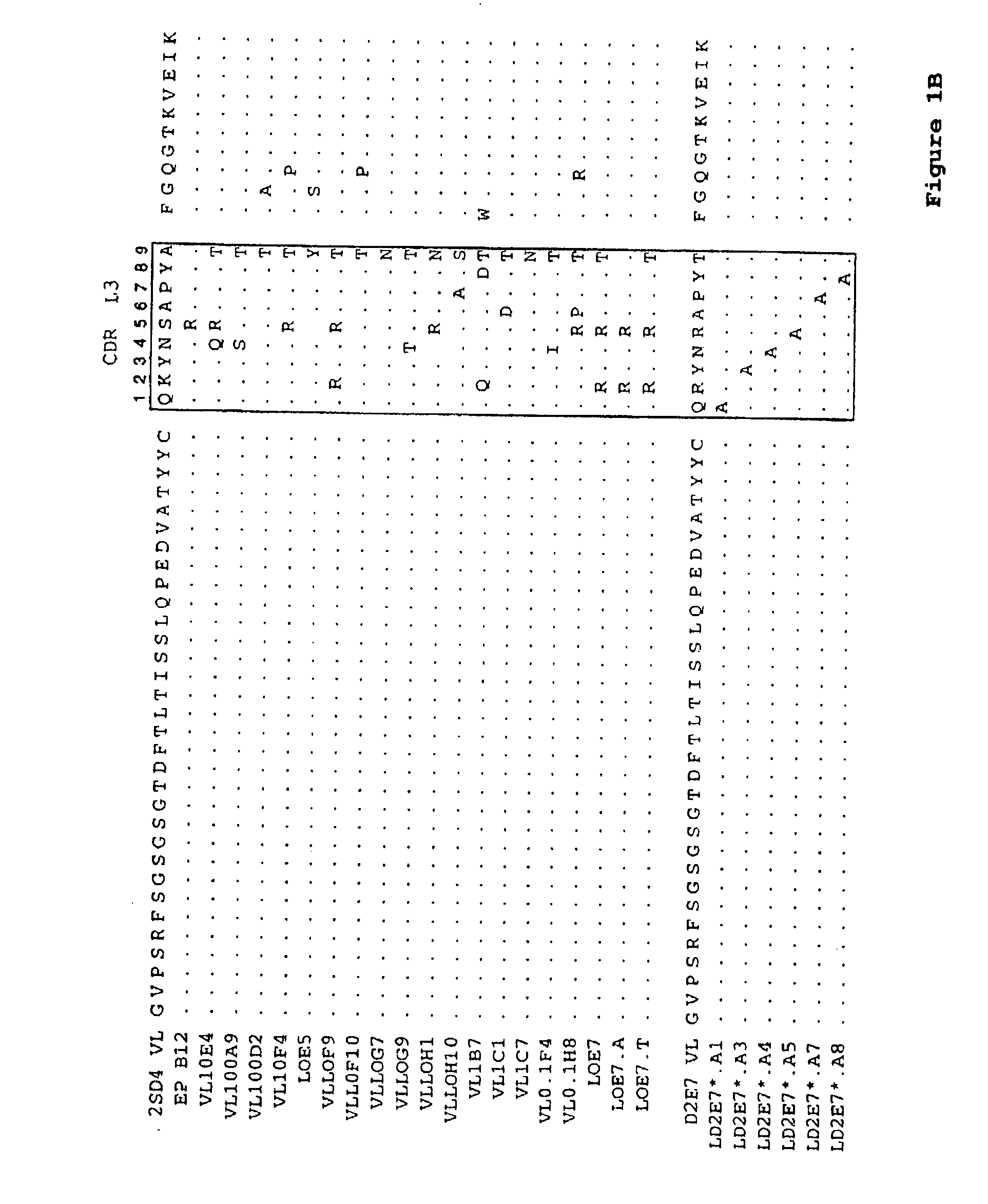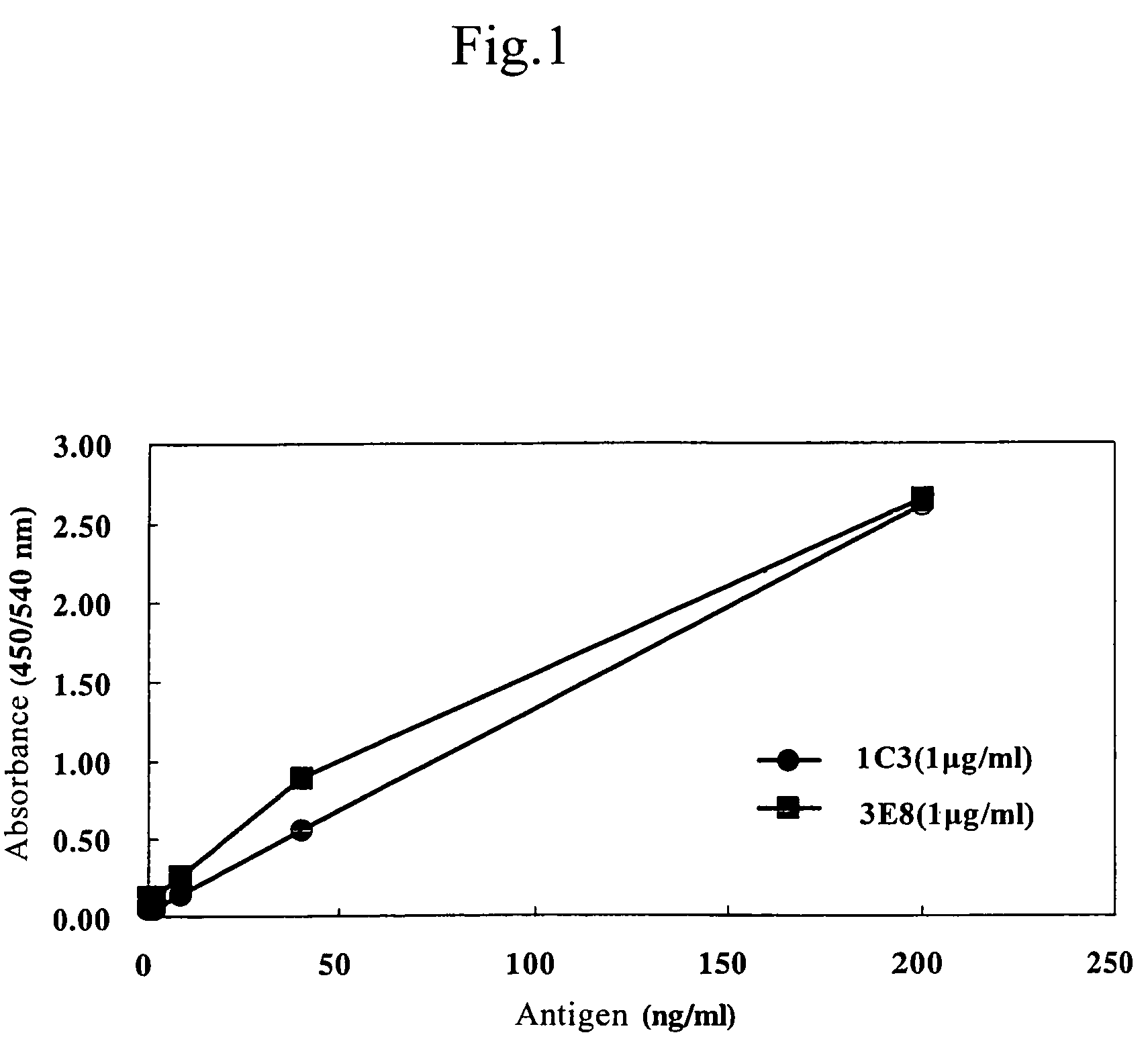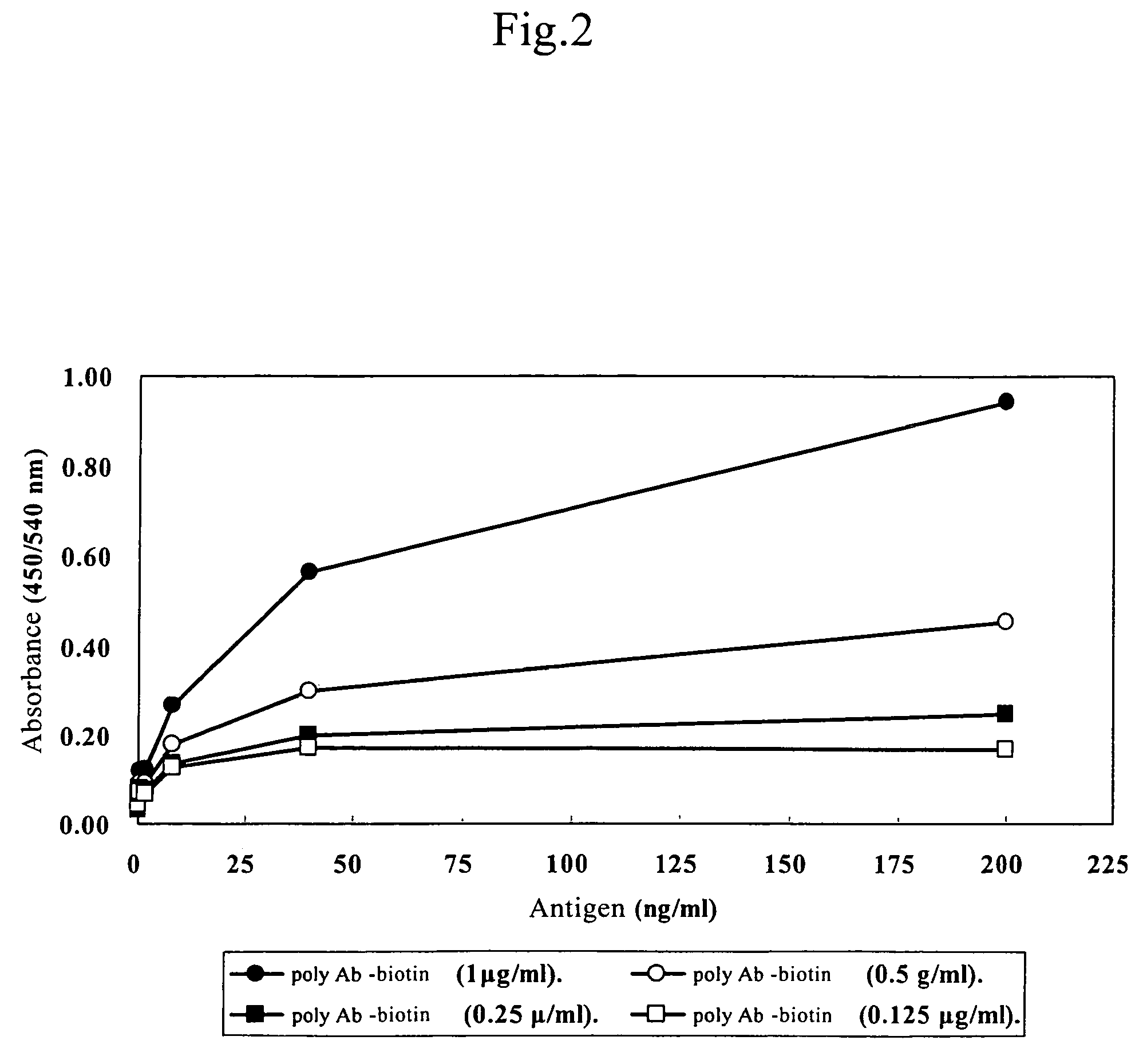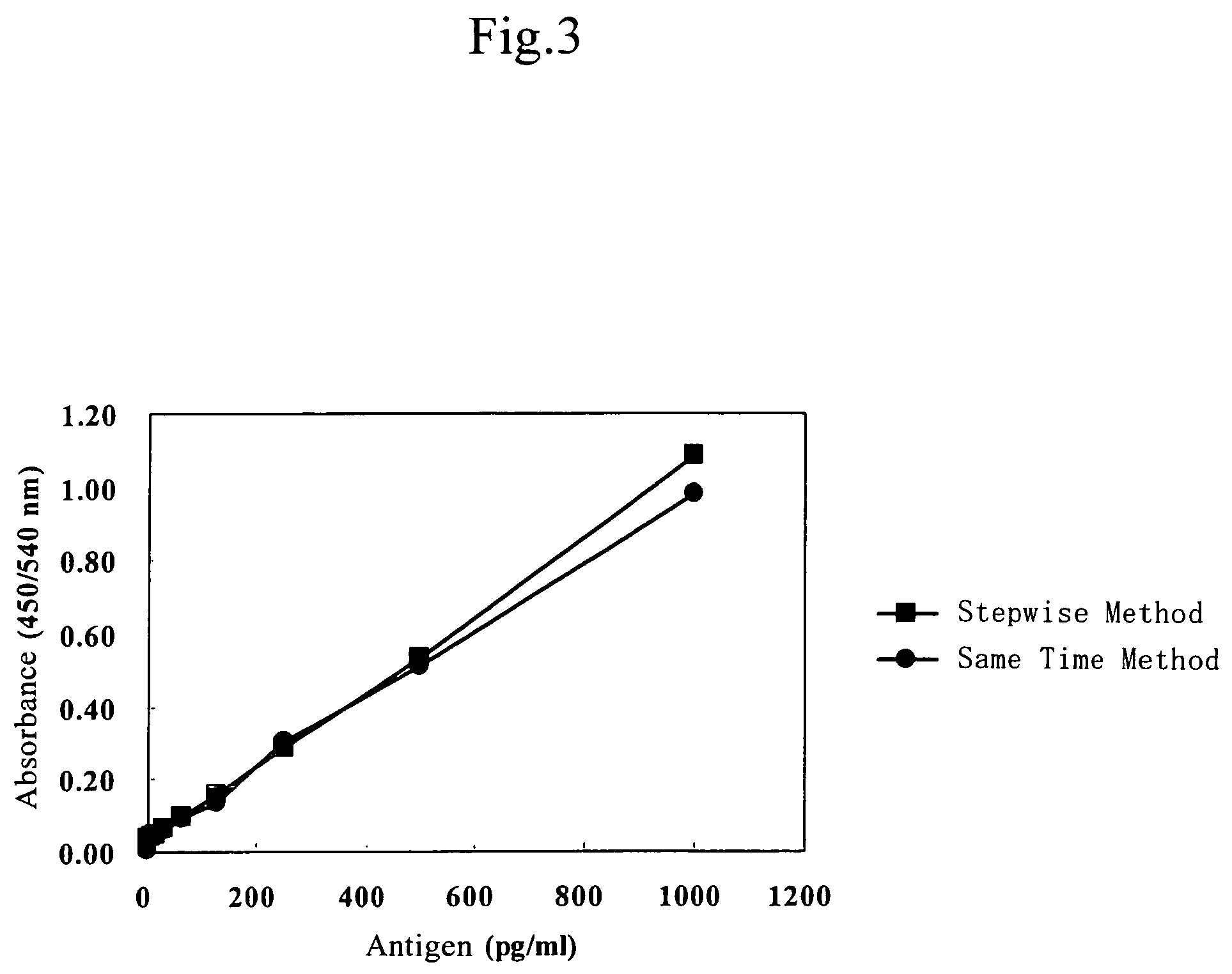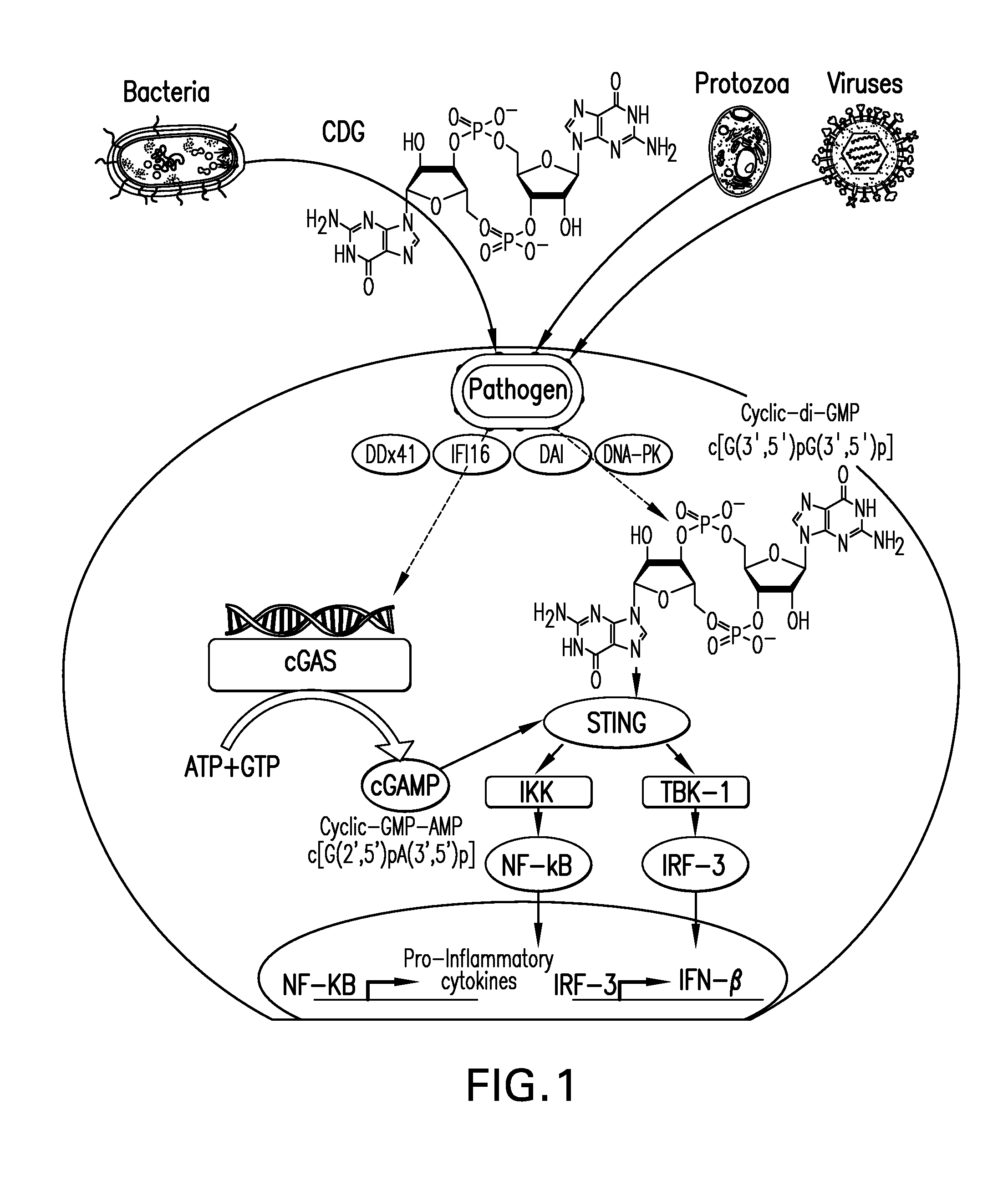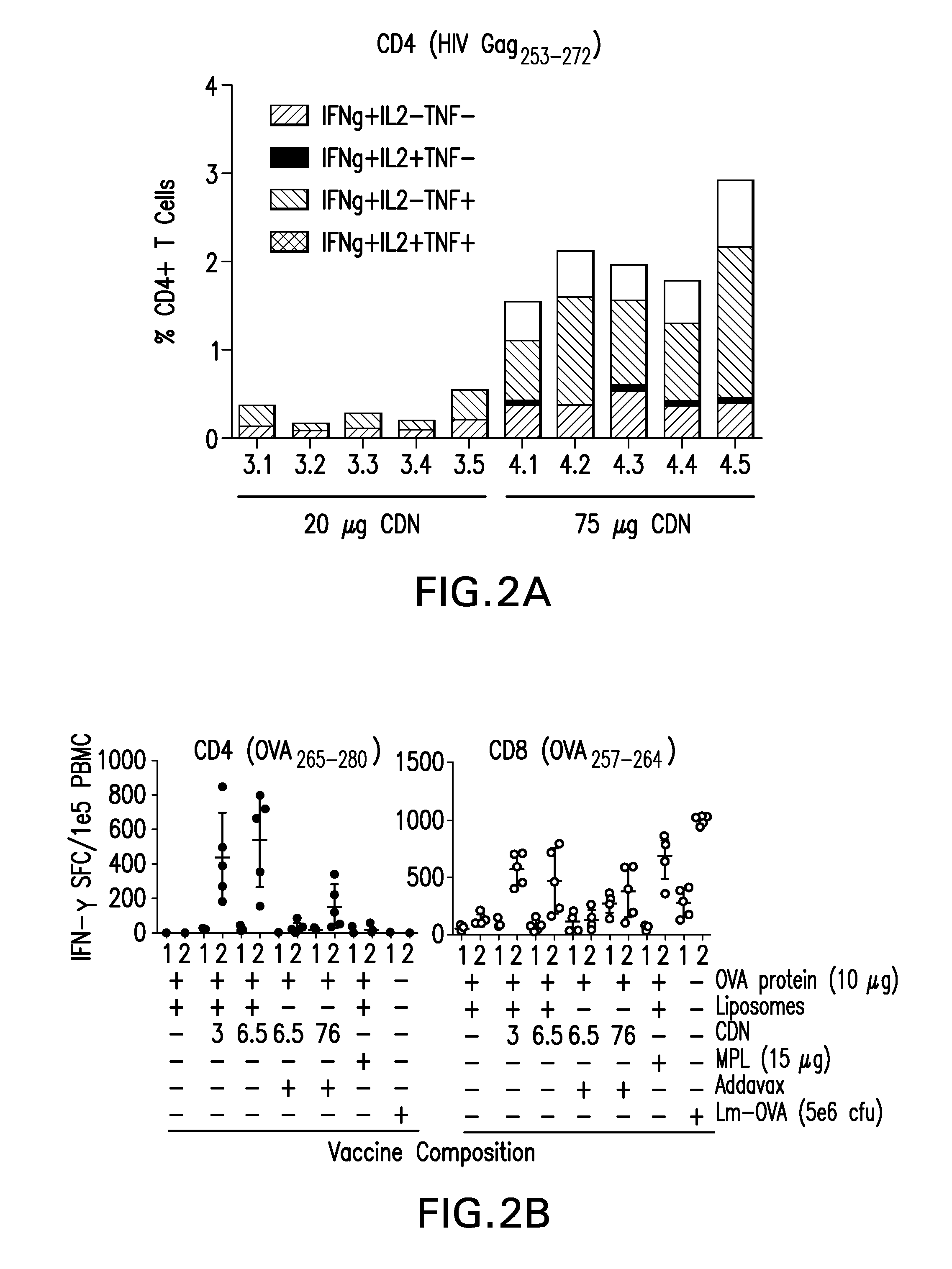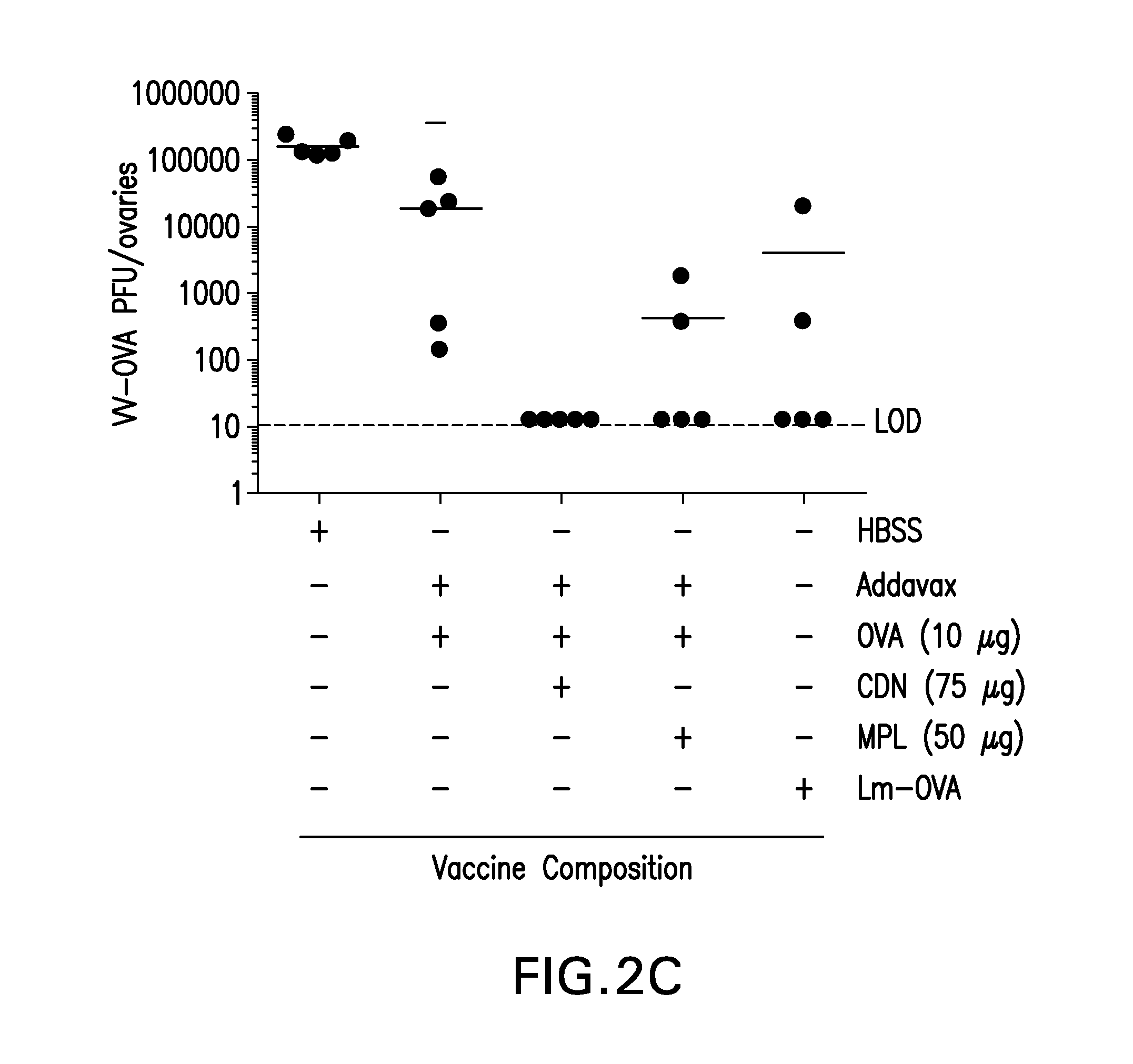Patents
Literature
714 results about "Human tumor" patented technology
Efficacy Topic
Property
Owner
Technical Advancement
Application Domain
Technology Topic
Technology Field Word
Patent Country/Region
Patent Type
Patent Status
Application Year
Inventor
A tumor (TOO-mor) is an abnormal growth of new tissue that can occur in any of the body's organs. Many people automatically associate tumors with the disease called cancer * but that is not always the case.
Cyclic single-chain trispecific antibody
The invention provides a cyclic single-chain trispecific antibody against human tumor. It comprises three parts. The first part is an anti-tumor Fab antibody, an anti-tumor single-domain antibody or an scFv. The second part is a reshaped Fab antibody against human CD3, a reshaped single-domain antibody against human CD3 or a reshaped scFv against human CD3. The third part is a reshaped Fab antibody against human CD28, a reshaped single-domain antibody against human CD28 or a reshaped scFv against human CD28. The present invention also offers the DNA sequence coding for this trispecific antibody, expression vectors containing this DNA sequence and host cells (E. coli) containing the vectors.
Owner:DONGGUAN HAOFA BIOTECH DEVAL +2
Tumour necrosis factor antibodies
InactiveUS6451983B2Enhance or inhibit TNF alpha activityInduction of endothelial procoagulant activityPeptide/protein ingredientsAntibody mimetics/scaffoldsHuman tumorSingle-Chain Antibodies
The present invention relates to ligands which bind to human tumor necrosis factor alpha (TNF) in a manner such that upon binding of these ligands to TNF the biological activity of TNF is modified. In preferred forms the ligand binds to TNF in a manner such that the induction of endothelial procoagulant activity of the TNF is inhibited; the binding of TNF to receptors on endothelial cells is inhibited; the induction of fibrin deposition in the tumor and tumor regression activities of the TNF are enhanced; and the cytotoxicity and receptor binding activities of the TNF are unaffected or enhanced on tumor cells. The ligand is preferably an antibody, F(ab) fragment, single domain antibody (dABs) single chain antibody or a serum binding protein. It is preferred, however, that the ligand is a monoclonal antibody or F(ab) fragment thereof.
Owner:CEPHALON AUSTRALIA
Anti-TNF antibodies and peptides of human tumor necrosis factor
Anti-TNF antibodies, fragments and regions thereof which are specific for human tumor necrosis factor-alpha (TNFalpha) and are useful in vivo diagnosis and therapy of a number of TNFalpha-mediated pathologies and conditions, as well as polynucleotides coding for murine and chimeric antibodies, methods of producing the antibody, methods of use of the anti-TNF antibody, or fragment, region or derivative thereof, in immunoassays and immunotherapeutic approaches are provided.
Owner:NEW YORK UNIV +1
Human antibodies that bind human TNFα
Human antibodies, preferably recombinant human antibodies, that specifically bind to human tumor necrosis factor a (hTNFα) are disclosed. These antibodies have high affinity for hTNFα (e.g., Kd=10−8 M or less), a slow off rate for hTNFα dissociation (e.g., Koff=10−3 sec−1 or less) and neutralize hTNFα activity in vitro and in vivo. An antibody of the invention can be a full-length antibody or an antigen-binding portion thereof. The antibodies, or antibody portions, of the invention are useful for detecting hTNFα and for inhibiting hTNFα activity, e.g., in a human subject suffering from a disorder in which hTNFα activity is detrimental. Nucleic acids, vectors and host cells for expressing the recombinant human antibodies of the invention, and methods of synthesizing the recombinant human antibodies, are also encompassed by the invention.
Owner:ABBVIE BIOTECHNOLOGY LTD
Pox virus containing DNA encoding a cytokine and/or a tumor associated antigen
InactiveUS6265189B1Improve securityImprove security levelVirusesPeptide/protein ingredientsHuman tumorWild type
Attenuated recombinant viruses containing DNA coding for a cytokine and / or a tumor associated antigen, as well as methods and compositions employing the viruses, are disclosed and claimed. The recombinant viruses can be NYVAC or ALVAC recombinant viruses. The DNA can code for at least on of: human tumor necrosis factor; nuclear phosphoprotein p53, wildtype or mutant; human melanoma-associated antigen; IL-2; IFNgamma; IL-4; GNCSF; IL-12; B7; erb-B-2 and carcinoembryonic antigen. The recombinant viruses and gene products therefrom are useful for cancer therapy.
Owner:VIROGENETICS
Human antibodies that bind human TNFalpha
Owner:ABBVIE BIOTECHNOLOGY LTD
Anti-TNF antibodies and peptides of human tumor necrosis factor
Anti-TNF antibodies, fragments and regions thereof which are specific for human tumor necrosis factor-α (TNFα) and are useful in vivo diagnosis and therapy of a number of TNFα-mediated pathologies and conditions, as well as polynucleotides coding for murine and chimeric antibodies, methods of producing the antibody, methods of use of the anti-TNF antibody, or fragment, region or derivative thereof, in immunoassays and immunotherapeutic approaches are provided.
Owner:CENTOCOR
Methods of treating ankylosing spondylitis using anti-TNF antibodies and peptides of human tumor necrosis factor
InactiveUS20050249735A1Antibody mimetics/scaffoldsImmunoglobulins against cytokines/lymphokines/interferonsHuman tumorAnkylosing spondylitis
Anti-TNF antibodies, fragments and regions thereof which are specific for human tumor necrosis factor-α (TNFα) and are useful in vivo diagnosis and therapy of a number of TNFα-mediated pathologies and conditions, including ankylosing spondylitis, as well as polynucleotides coding for murine and chimeric antibodies, methods of producing the antibody, methods of use of the anti-TNF antibody, or fragment, region or derivative thereof, in immunoassays and immunotherapeutic approaches are provided.
Owner:NEW YORK UNIV +1
Methods of treating ankylosing spondylitis using anti-TNF antibodies and peptides of human tumor necrosis factor
InactiveUS20080025976A1Antibody mimetics/scaffoldsImmunoglobulins against cytokines/lymphokines/interferonsHuman tumorAnkylosing spondylitis
Anti-TNF antibodies, fragments and regions thereof which are specific for human tumor necrosis factor-α (TNFα) and are useful in vivo diagnosis and therapy of a number of TNFα-mediated pathologies and conditions, including ankylosing spondylitis, as well as polynucleotides coding for murine and chimeric antibodies, methods of producing the antibody, methods of use of the anti-TNF antibody, or fragment, region or derivative thereof, in immunoassays and immunotherapeutic approaches are provided.
Owner:LE JUNMING +6
Anti-TNF antibodies and peptides of human tumor necrosis factor
InactiveUS20060018907A1Antibody mimetics/scaffoldsImmunoglobulins against cytokines/lymphokines/interferonsHuman tumorAnkylosing spondylitis
Anti-TNF antibodies, fragments and regions thereof which are specific for human tumor necrosis factor-α (TNFα) and are useful in vivo diagnosis and therapy of a number of TNFα-mediated pathologies and conditions, including ankylosing spondylitis, as well as polynucleotides coding for murine and chimeric antibodies, methods of producing the antibody, methods of use of the anti-TNF antibody, or fragment, region or derivative thereof, in immunoassays and immunotherapeutic approaches are provided.
Owner:NEW YORK UNIV +1
Methods of treating seronegative arthropathy with anti-TNF antibodies
InactiveUS20070298040A1Inhibit biological activityHigh affinityAntibody ingredientsImmunoglobulinsSeronegative arthropathyHuman tumor
Anti-TNF antibodies, fragments and regions thereof which are specific for human tumor necrosis factor-α (TNFα) and are useful in vivo diagnosis and therapy of a number of TNFαx-mediated pathologies and conditions, as well as polynucleotides coding for murine and chimeric antibodies, methods of producing the antibody, methods of use of the anti-TNF antibody, or fragment, region or derivative thereof, in immunoassays and immunotherapeutic approaches are provided.
Owner:NEW YORK UNIV
Antibody fragment-polymer conjugates and uses of same
Described are conjugates formed by an antibody fragment covalently attached to a non-proteinaceous polymer, wherein the apparent size of the conjugate is at least about 500 kD. The conjugates exhibit substantially improved half-life, mean residence time, and / or clearance rate in circulation as compared to the underivatized parental antibody fragment. Also described are conjugates directed against human vascular endothelial growth factor (VEGF), human p185 receptor-like tyrosine kinase (HER2), human CD20, human CD18, human CD11a, human IgE, human apoptosis receptor-2 (Apo-2), human tumor necrosis factor-α (TNF-α), human tissue factor (TF), human α4β7 integrin, human GPIIb-IIIa integrin, human epidermal growth factor receptor (EGFR), human CD3, and human interleukin-2 receptor α-chain (TAC) for diagnostic and therapeutic applications.
Owner:GENENTECH INC
Anti-TNF antibodies and peptides of human tumor necrosis factor
InactiveUS20070196373A1Antibody mimetics/scaffoldsImmunoglobulins against cytokines/lymphokines/interferonsHuman tumorAnkylosing spondylitis
Anti-TNF antibodies, fragments and regions thereof which are specific for human tumor necrosis factor-α (TNFα) and are useful in vivo diagnosis and therapy of a number of TNFα-mediated pathologies and conditions, including ankylosing spondylitis, as well as polynucleotides coding for murine and chimeric antibodies, methods of producing the antibody, methods of use of the anti-TNF antibody, or fragment, region or derivative thereof, in immunoassays and immunotherapeutic approaches are provided.
Owner:LE JUNMING +6
Tumour-associated peptides binding to human leukocyte antigen (HLA) class i or ii molecules and related Anti-cancer vaccine
InactiveUS20090274714A1Organic active ingredientsPeptide/protein ingredientsHla class iiAdditive ingredient
The present invention relates to immunotherapeutic methods, and molecules and cells for use in immunotherapeutic methods. In particular, the present invention relates to the immunotherapy of cancer. The present invention furthermore relates to tumour-associated T-helper cell peptide epitopes, alone or in combination with other tumour-associated peptides, that serve as active pharmaceutical ingredients of vaccine compositions which stimulate anti-tumour immune responses. In particular, the present invention relates to two novel peptide sequences derived from HLA class II molecules of human tumour cell lines, which can be used in vaccine compositions for eliciting anti-tumour immune responses.
Owner:IMMATICS BIOTECHNOLOGIES GMBH
Human antibodies that bind human TNFalpha
InactiveUS20060024293A1High affinitySlow dissociation kineticsAntibacterial agentsOrganic active ingredientsHuman tumorAntigen binding
Human antibodies, preferably recombinant human antibodies, that specifically bind to human tumor necrosis factor α (hTNFα) are disclosed. These antibodies have high affinity for hTNFα (e.g., Kd=10−8 M or less), a slow off rate for hTNFα dissociation (e.g., Koff=10−3 sec−1 or less) and neutralize hTNFα activity in vitro and in vivo. An antibody of the invention can be a full-length antibody or an antigen-binding portion thereof. The antibodies, or antibody portions, of the invention are useful for detecting hTNFα and for inhibiting hTNFα activity, e.g., in a human subject suffering from a disorder in which hTNFα activity is detrimental. Nucleic acids, vectors and host cells for expressing the recombinant human antibodies of the invention, and methods of synthesizing the recombinant human antibodies, are also encompassed by the invention.
Owner:ABBVIE BIOTECHNOLOGY LTD
Vaccina virus comprising cytokine and/or tumor associated antigen genes
InactiveUS6537594B1Improve securityImprove security levelVirusesPeptide/protein ingredientsHuman tumorWild type
Owner:VIROGENETICS
METHODS OF ADMINISTERING ANTI-TNFalpha ANTIBODIES
InactiveUS20120177596A1Reduce in quantityPatient compliance is goodSenses disorderNervous disorderHuman tumorFactor ii
Methods of treating disorders in which TFNα activity is detrimental via biweekly, subcutaneous administration of human antibodies, preferably recombinant human antibodies, that specifically bind to human tumor necrosis factor α (hTNFα) are disclosed. The antibody may be administered with or without methotrexate. These antibodies have high affinity for hTNFα (e.g., Kd=10−8 M or less), a slow off rate for hTNFα dissociation (e.g., Koff=10−3 sec−1 or less) and neutralize hTNFα activity in vitro and in vivo. An antibody of the invention can be a full-length antibody or an antigen-binding portion thereof. Kits containing a pharmaceutical composition and instructions for dosing, and preloaded syringes containing pharmaceutical compositions are also encompassed by the invention.
Owner:ABBVIE BIOTECHNOLOGY LTD
A and C macrocyclic oxidation substituted pentacyclic triterpanoids and preparation method and use thereof
InactiveCN101117348AStrong inhibitory activityOrganic active ingredientsMetabolism disorderDiseaseProstate cancer cell
The present invention relates to a pentacyclic triterpanoid derivative of multiple-oxide substitution of the A ring and the C ring and the medicine salt or solvate of the derivative, and the present invention also relates to the preparation method, the drug combination, and medical use of the derivative. The compound of the present invention has the functions of inhibiting the activity of six human tumor cell strains in vitro, such as human prostate cancer cell (PC-3), nasopharyngeal carcinoma cells (CNE), oral squamous carcinoma cell(KB), human lung cancer cell (A549), human hepatoma cell (BEL-7404), and human cervix cancer cell (Hela), and the function of the invention is at the same magnitude of the positive control of cisplatin, thereby the compound can be used as expected antitumor drug. The compound of the present invention also inhibits the alpha glucosidase strongly, and the inhibiting effect is greater than the positive control of acarbose, thereby the compound can be used as expected medicine for preventing and treating diabetes and the treatment of the virus diseases.
Owner:ZHEJIANG HISUN PHARMA CO LTD
METHODS OF ADMINISTERING ANTI-TNFalpha ANTIBODIES
InactiveUS20130004507A1Reduce in quantityLess frequentSenses disorderNervous disorderHuman tumorAntigen binding
Methods of treating disorders in which TFNα activity is detrimental via biweekly, subcutaneous administration of human antibodies, preferably recombinant human antibodies, that specifically bind to human tumor necrosis factor α (hTNFα) are disclosed. The antibody may be administered with or without methotrexate. These antibodies have high affinity for hTNFα (e.g., Kd=10−8 M or less), a slow off rate for hTNFα dissociation (e.g., Koff=10−3 sec−1 or less) and neutralize hTNFα activity in vitro and in vivo. An antibody of the invention can be a full-length antibody or an antigen-binding portion thereof. Kits containing a pharmaceutical composition and instructions for dosing, and preloaded syringes containing pharmaceutical compositions are also encompassed by the invention.
Owner:ABBOTT BIOTECHNOLOGY LTD
Treatment of human tumors with radiation and inhibitors of growth factor receptor tyrosine kinases
InactiveUS20040057950A1Inhibit tumor growthPeptide/protein ingredientsImmunoglobulins against cell receptors/antigens/surface-determinantsAbnormal tissue growthHuman tumor
Owner:WAKSAL HARLAN W +3
Novel immunogenic epitope for immunotherapy
ActiveUS20090136528A1Organic active ingredientsPeptide/protein ingredientsAdditive ingredientWilms' tumor
The present invention relates to peptides, nucleic acids and cells for use in immunotherapeutic methods. In particular, the present invention relates to the immunotherapy of cancer. The present invention furthermore relates to tumour-associated T-helper cell peptide epitopes, alone or in combination with other tumour-associated peptides that serve as active pharmaceutical ingredients of vaccine compositions which stimulate anti-tumour immune responses. The present invention relates to novel peptide sequences and their variants derived from HLA class I and class II molecules of human tumour cells which can be used in vaccine compositions for eliciting anti-tumour immune responses.
Owner:IMMATICS BIOTECHNOLOGIES GMBH
Treatment of refractory human tumors with epidermal growth factor receptor and HER1 mitogenic ligand (EGFRML) antagonists
InactiveUS20030202973A1Reduce HAMA responseMinimize side effectsImmunoglobulins against cell receptors/antigens/surface-determinantsAntibody ingredientsHuman tumorHuman epidermal growth factor receptor
A method of inhibiting the growth of refractory tumors that are stimulated by mitogenic ligands of epidermal growth factor receptor in human patients, comprising treating the human patients with an effective amount of a mitogenic ligand antagonist.
Owner:DR GEORGE PIECZENIK
Human tumor necrosis factor-immunoglobulin(TNFR1-IgG1) chimera composition
The present invention relates to novel process for the preparation of glycoproteins by mammalian cell culture wherein the sialic acid content of the glycoprotein produced is controlled over a broad range of values by manipulating the cell culture environment. The invention provides for processes in which the sialic acid content of the glycoprotein is modified by changes in cell culture parameters which affect cell specific productivity. Preferred embodiments of the invention include cell culture processes in the osmolality of the cell culture is controlled as well as the concentration of a transcription enhancer during the production phase of the cell culture. The invention further provides for novel preparations of soluble type 1 tumor necrosis factor immunoglobulin G1 and their uses in the treatment of inflammatory or immune related disorders.
Owner:GENENTECH INC
Pox virus comprising DNA sequences encoding CEA and B7 antigen
Attenutated recombinant viruses containing DNA coding for a cytokine and / or a tumor associated antigen, as well as methods and compositions employing the viruses, are disclosed and claimed. The recombinant viruses can be NYVAC or ALVAC recombinant viruses. The DNA can code for at least one of: human tumor necrosis factor; nuclear phosphoprotein p53, wiltype or mutant; human melanoma-associated antigen; IL-2; IFNgamma; IL-4; GMCSF; IL-12; B7; erb-B-2 and carcinoembryonic antigen. The recombinant viruses and gene products therefrom are useful for cancer therapy.
Owner:AVENTIS PASTEUR LTD
Compositions, kits, and methods relating to the human FEZ1 gene, a novel tumor suppressor gene
InactiveUS20070072230A1Increase stringencyInhibiting tumorigenesisSugar derivativesPeptide/protein ingredientsTumour suppressor geneHuman tumor
Owner:THOMAS JEFFERSON UNIV
Compositions and methods for the diagnosis, prevention and treatment of tumor progression
The present invention relates to methods and compositions for the diagnosis, prevention, and treatment of tumor progression in cells involved in human tumors such as melanomas, breast, gastrointestinal, lung, and bone tumors, various types of skin cancers, and other neoplastic conditions such as leukemias and lymphomas. Genes are identified that are differentially expressed in benign (e.g., non-malignant) tumor cells relative to malignant tumor cells exhibiting a high metastatic potential. Genes are also identified via the ability of their gene products to interact with gene products involved in the progression to, and / or aggressiveness of, neoplastic tumor disease states. The genes and gene products identified can be used diagnostically or for therapeutic intervention.
Owner:MILLENNIUM PHARMA INC
Compositions and methods for the diagnosis prevention and treatment of tumor progression
The present invention relates to methods and compositions for the diagnosis, prevention, and treatment of tumor progression in cells involved in human tumors such as melanomas, breast, gastrointestinal, lung, and bone tumors, various types of skin cancers, and other neoplastic conditions such as leukemias and lymphomas. Genes are identified that are differentially expressed in benign (e.g., non-malignant) tumor cells relative to malignant tumor cells exhibiting a high metastatic potential. Genes are also identified via the ability of their gene products to interact with gene products involved in the progression to, and / or aggressiveness of, neoplastic tumor disease states. The genes and gene products identified can be used diagnostically or for therapeutic intervention.
Owner:MILLENNIUM PHARMA INC
Human antibodies that bind human TNFa
Human antibodies, preferably recombinant human antibodies, that specifically bind to human tumor necrosis factor α (hTNFα) are disclosed. These antibodies have high affinity for hTNFα (e.g., Kd=10−8 M or less), a slow off rate for hTNFα dissociation (e.g., Koff=10−3 sec−1 or less) and neutralize hTNFα activity in vitro and in vivo. An antibody of the invention can be a full-length antibody or an antigen-binding portion thereof. The antibodies, or antibody portions, of the invention are useful for detecting hTNFα and for inhibiting hTNFα activity, e.g., in a human subject suffering from a disorder in which hTNFα activity is detrimental. Nucleic acids, vectors and host cells for expressing the recombinant human antibodies of the invention, and methods of synthesizing the recombinant human antibodies, are also encompassed by the invention.
Owner:ABBVIE BIOTECHNOLOGY LTD
Monoclonal antibody and hybridoma producing the same
InactiveUS7435590B2Simple and highly sensitive detection methodSimple methodAnimal cellsImmunoglobulins against cytokines/lymphokines/interferonsEpiregulinHuman tumor
Owner:TAISHO PHARMACEUTICAL CO LTD
Compositions and methods for cancer immunotherapy
ActiveUS20150010613A1Improve propertiesHigh activityOrganic active ingredientsPeptide/protein ingredientsAntigenHuman tumor
The present invention provides a combination therapy which relies on a small molecule immune stimulator—cyclic-di-nucleotide (CDN)—that activates DCs via a recently discovered cytoplasmic receptor known as STING (Stimulator of Interferon Genes) formulated with allogeneic human tumor cell lines engineered to secrete high amounts of GM-CSF. This combination therapy can provide an ideal synergy of multiple tumor associated antigens, DC recruitment and proliferation, coupled with a potent DC activation stimulus.
Owner:ADURO BIOTECH +2
Features
- R&D
- Intellectual Property
- Life Sciences
- Materials
- Tech Scout
Why Patsnap Eureka
- Unparalleled Data Quality
- Higher Quality Content
- 60% Fewer Hallucinations
Social media
Patsnap Eureka Blog
Learn More Browse by: Latest US Patents, China's latest patents, Technical Efficacy Thesaurus, Application Domain, Technology Topic, Popular Technical Reports.
© 2025 PatSnap. All rights reserved.Legal|Privacy policy|Modern Slavery Act Transparency Statement|Sitemap|About US| Contact US: help@patsnap.com
